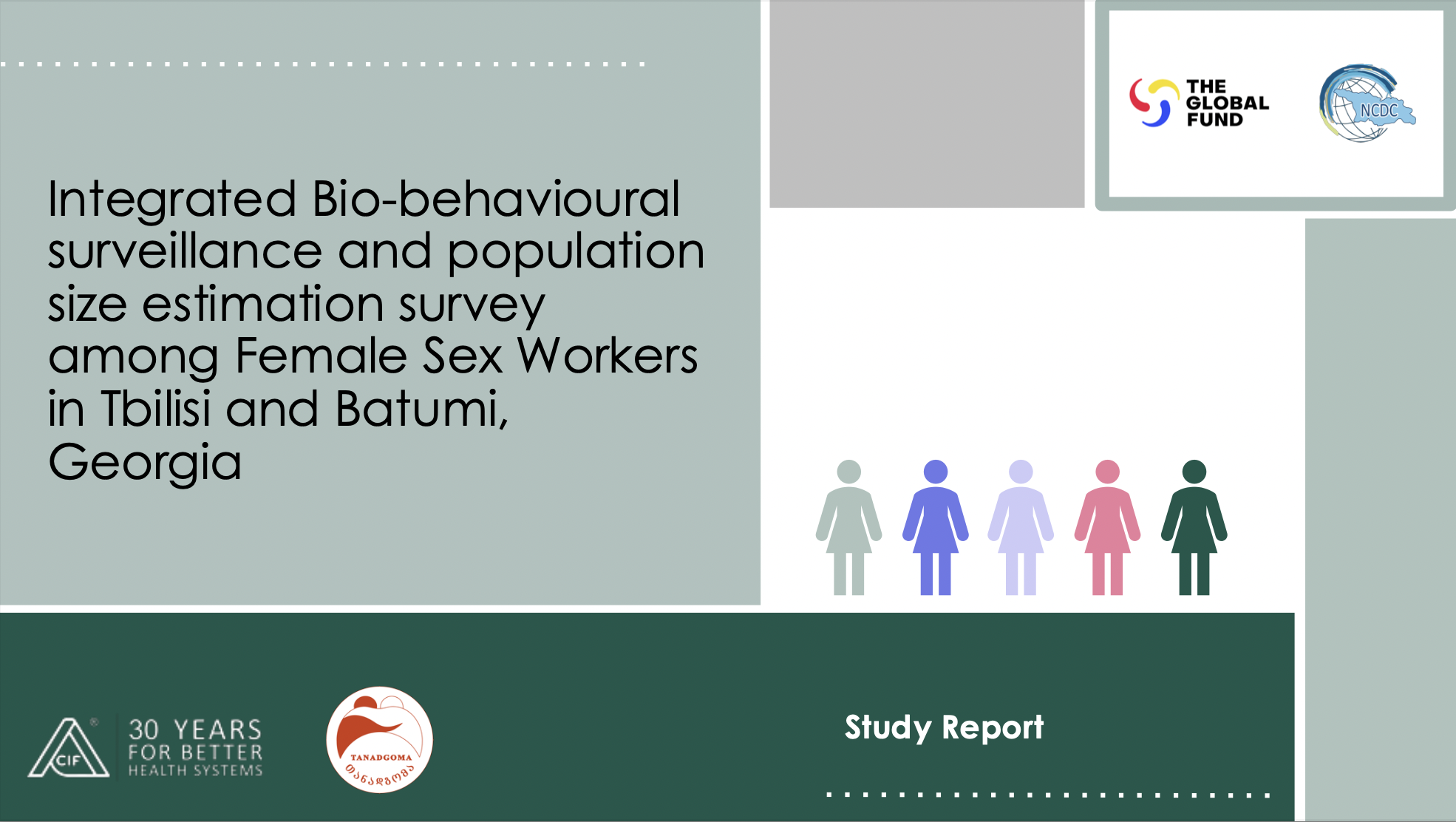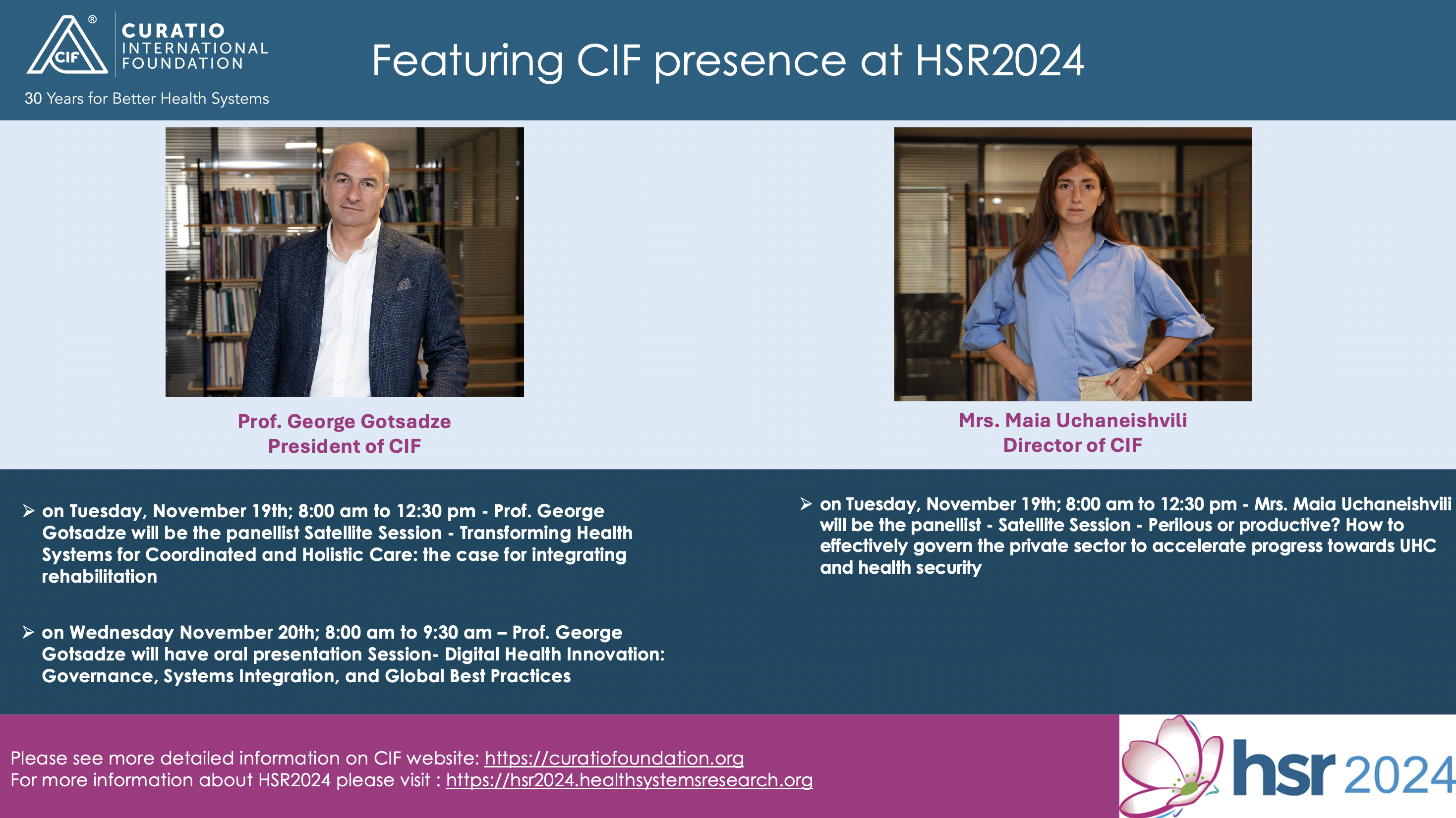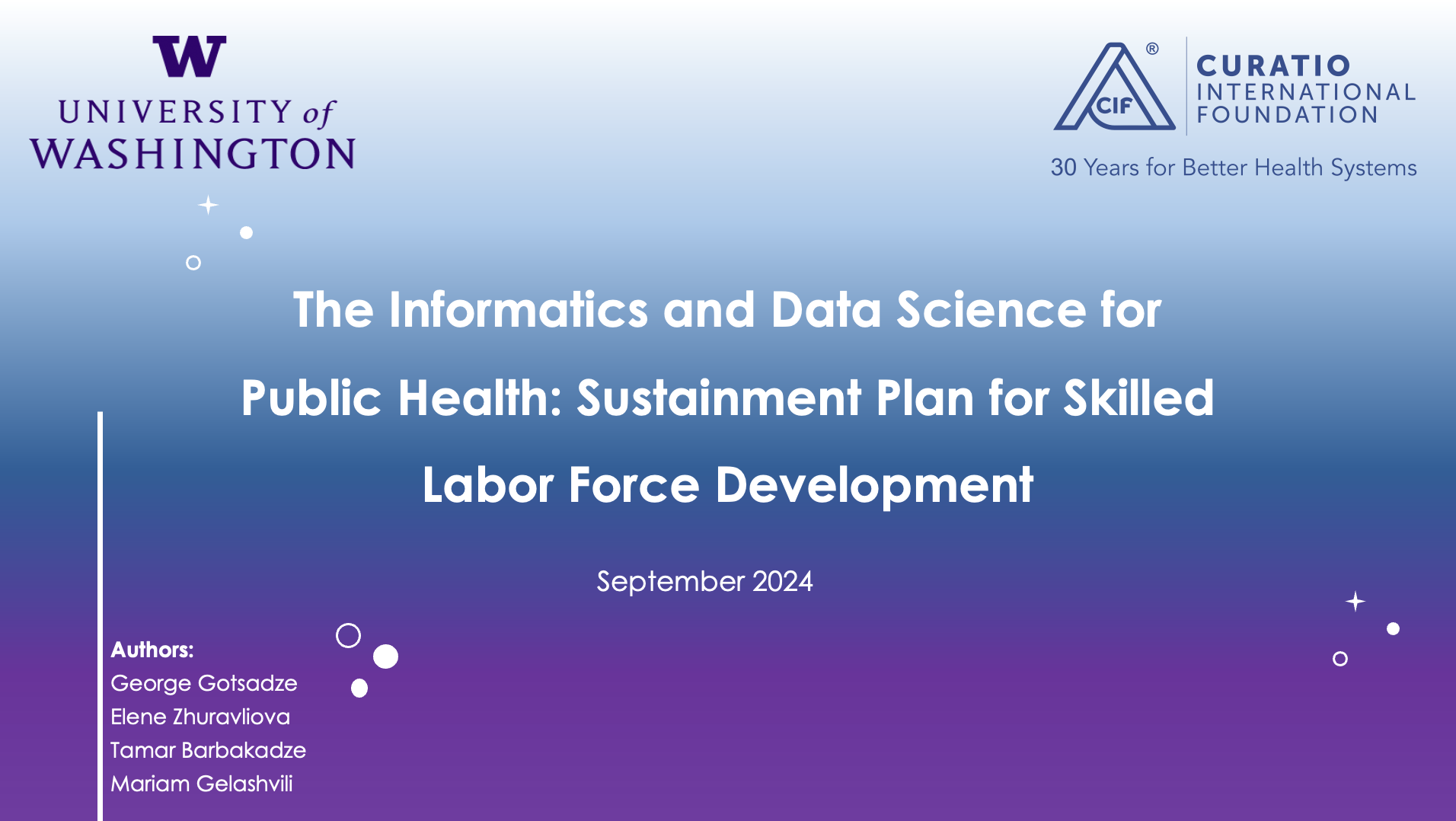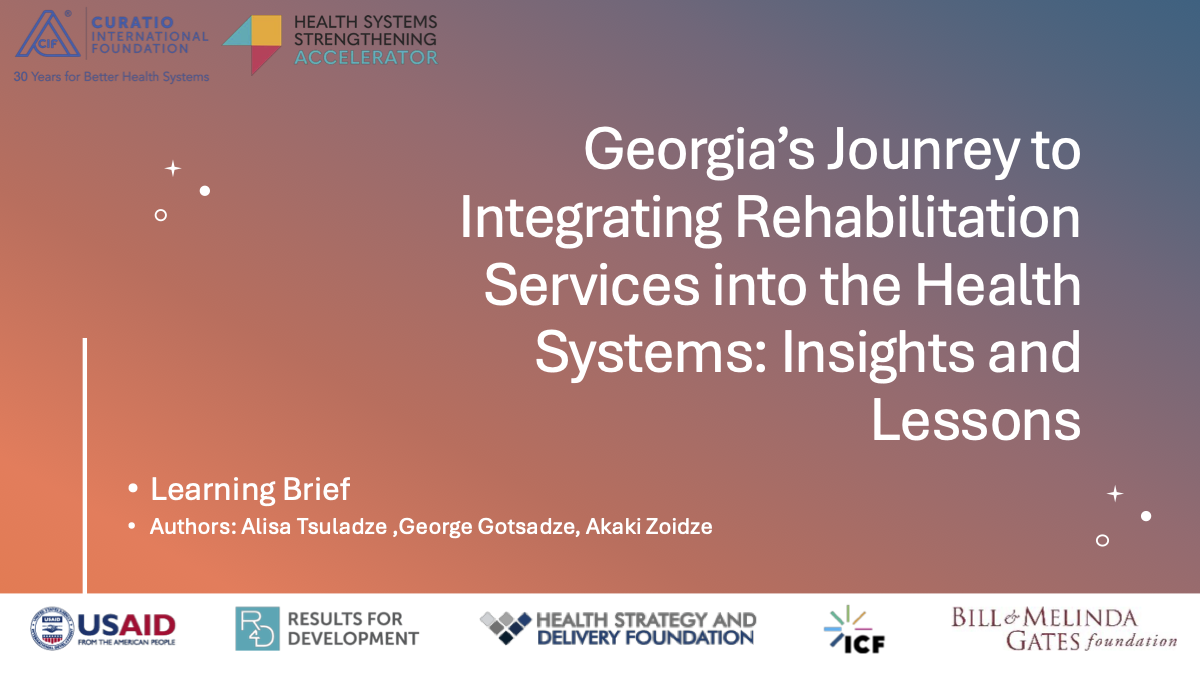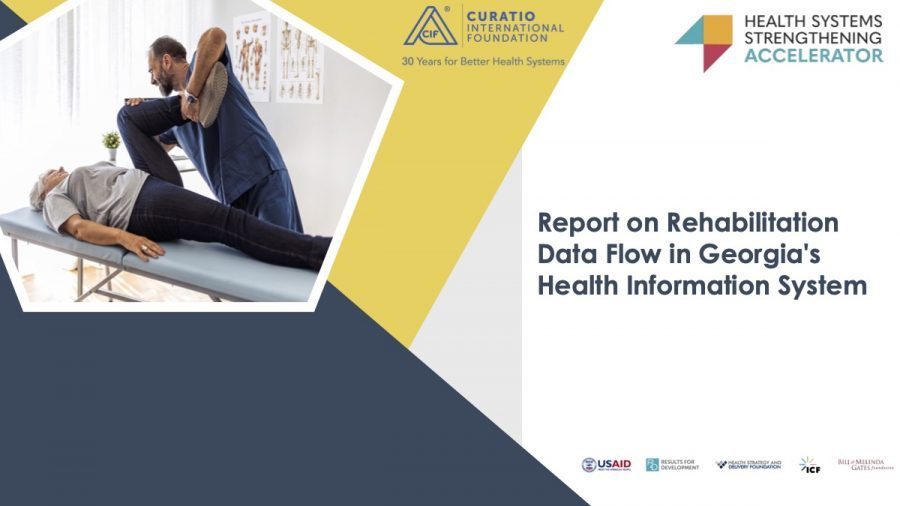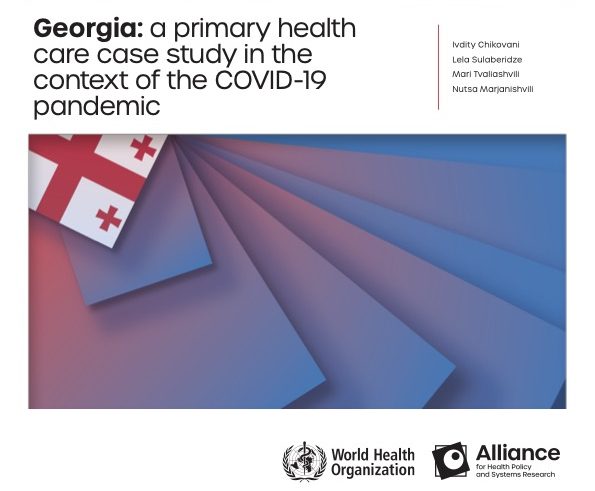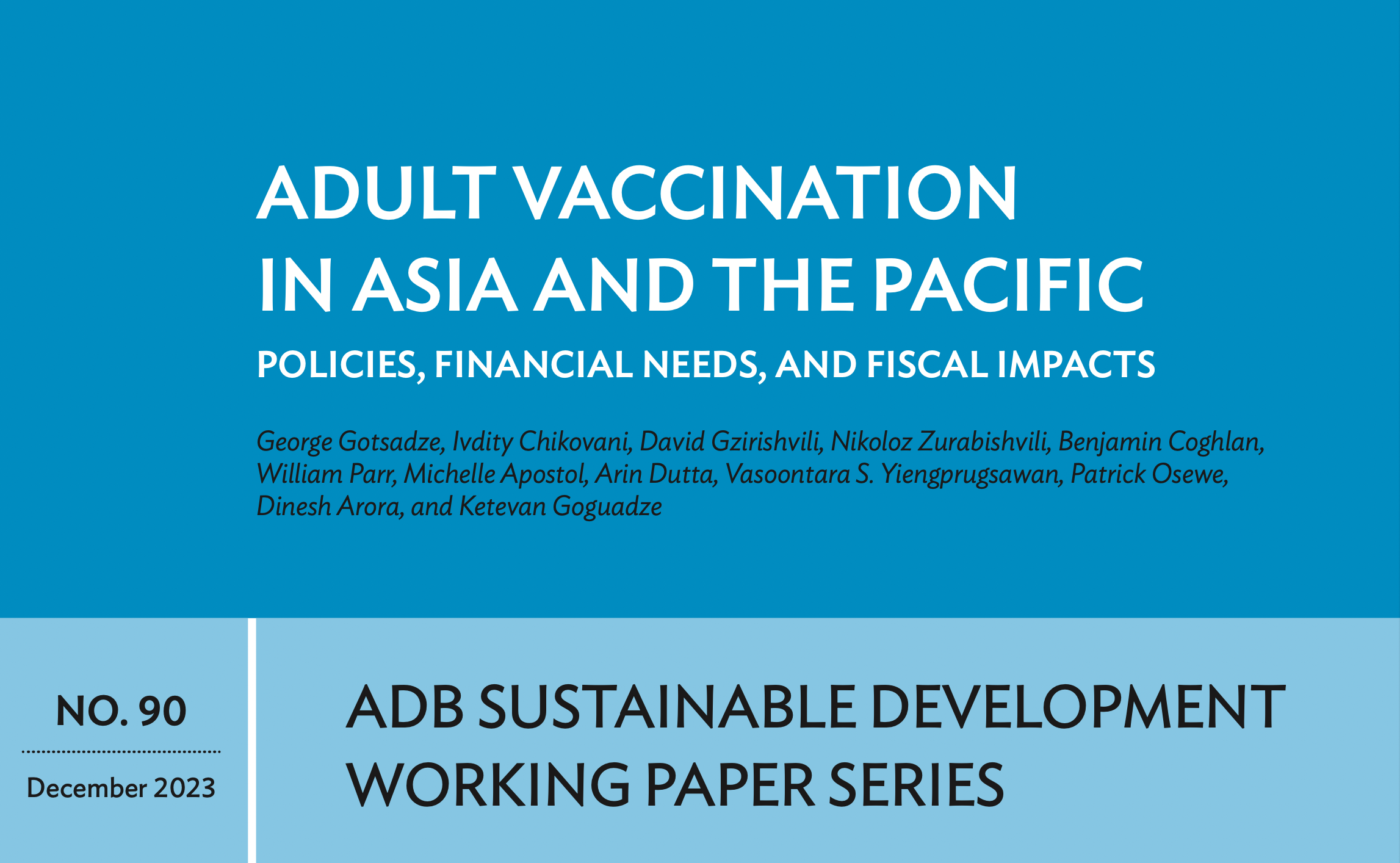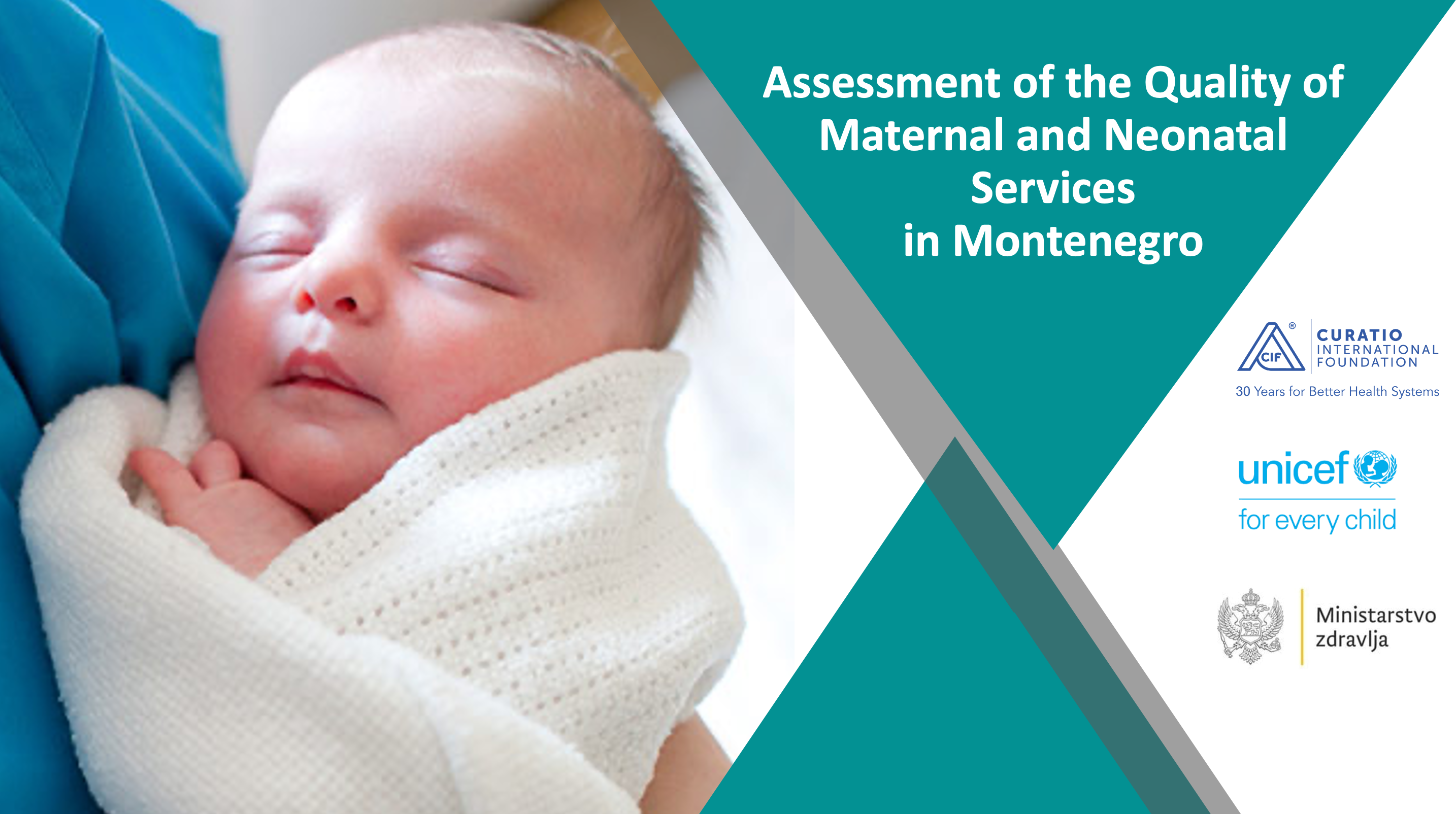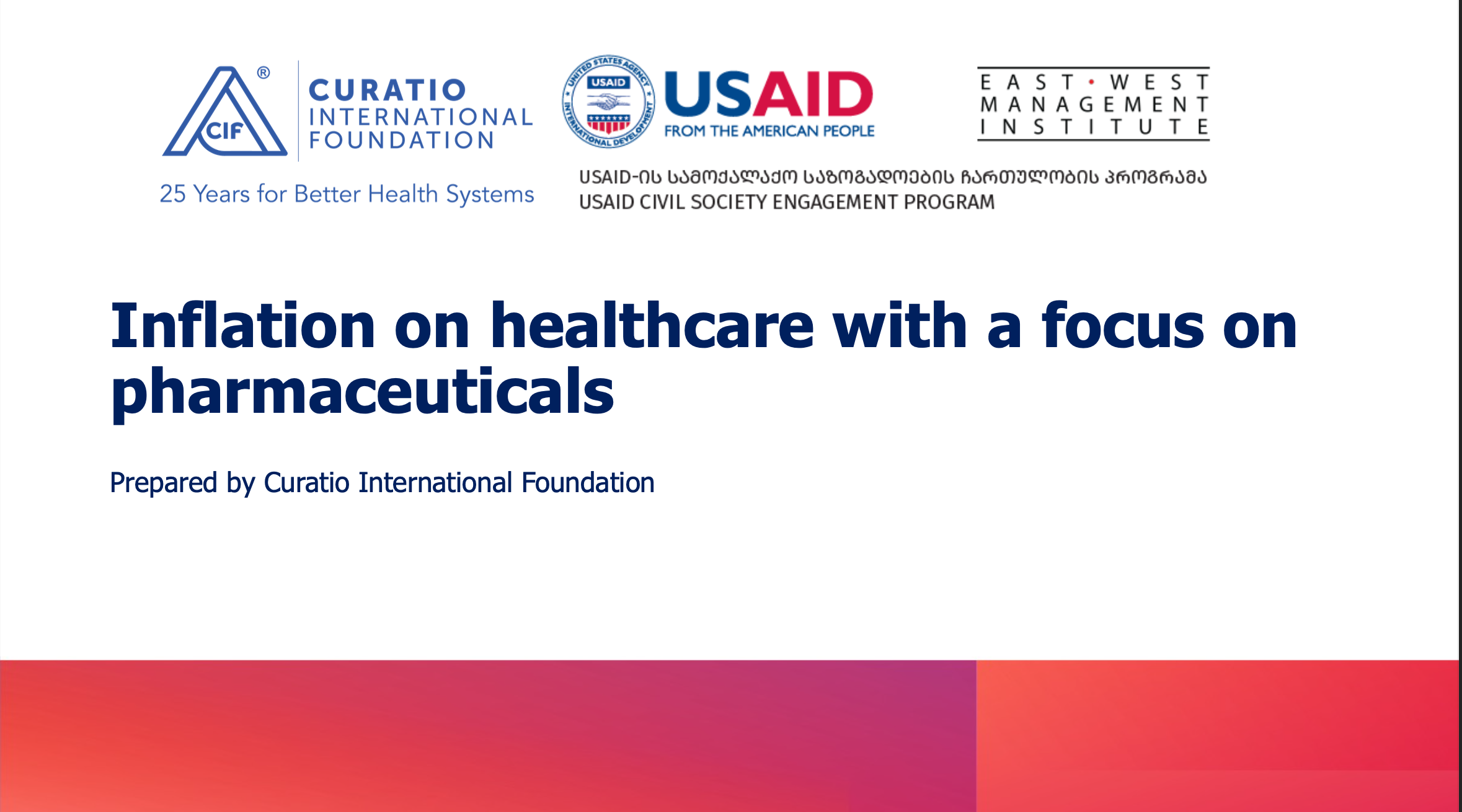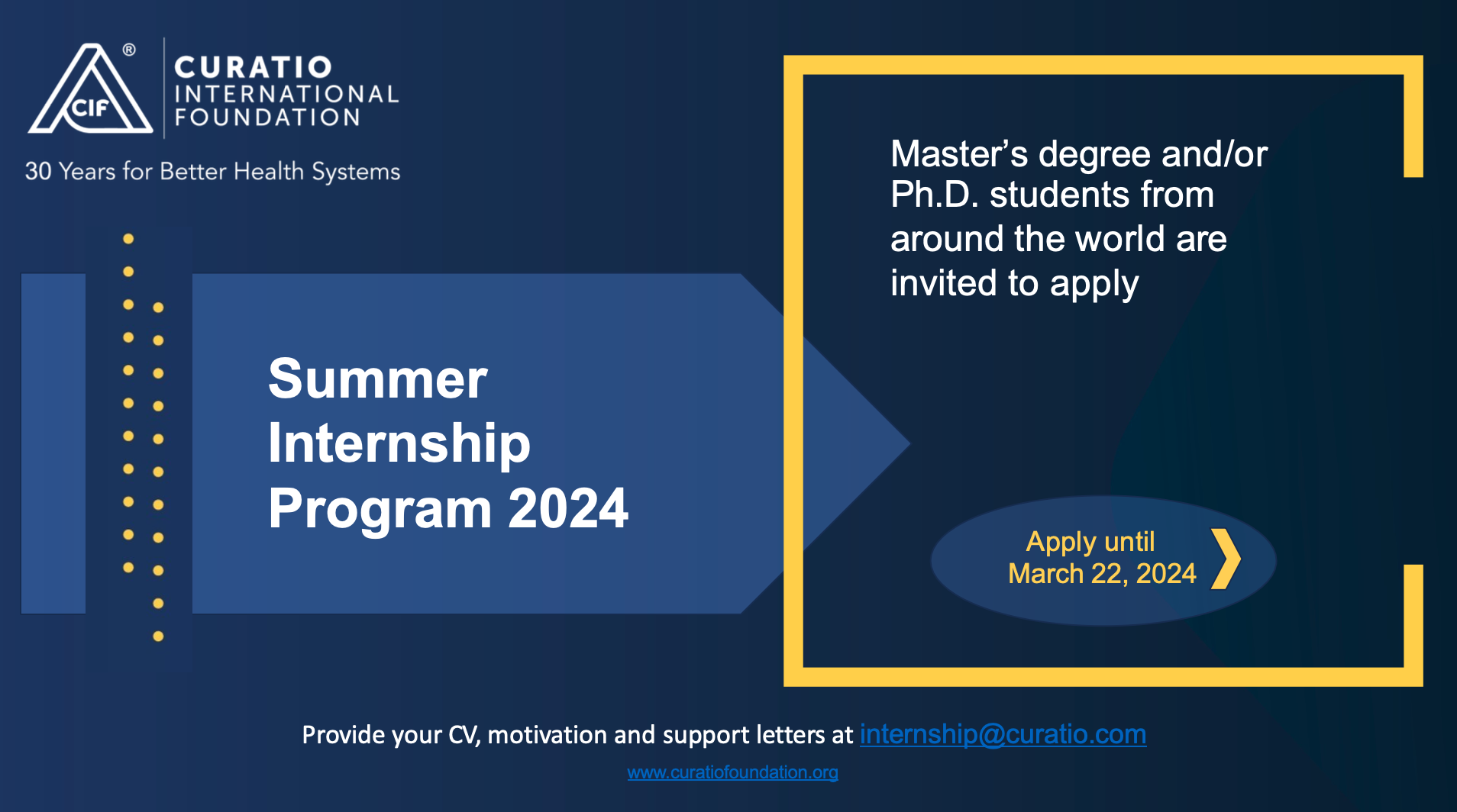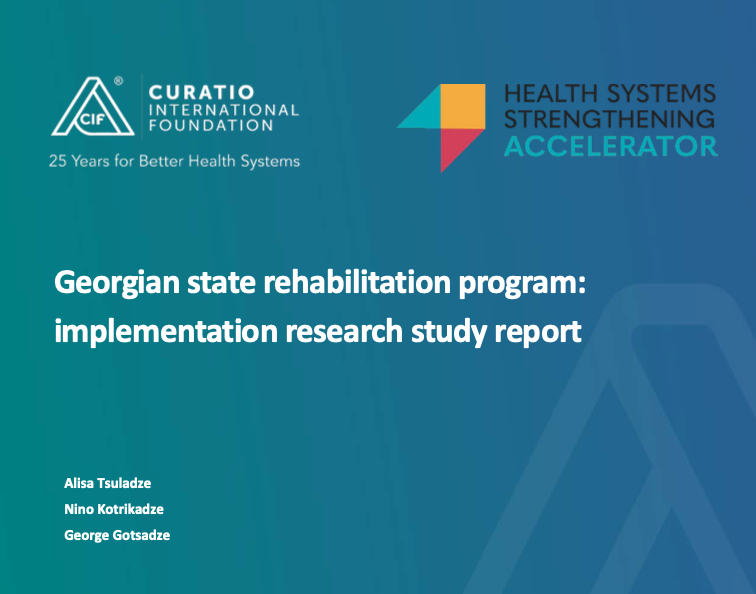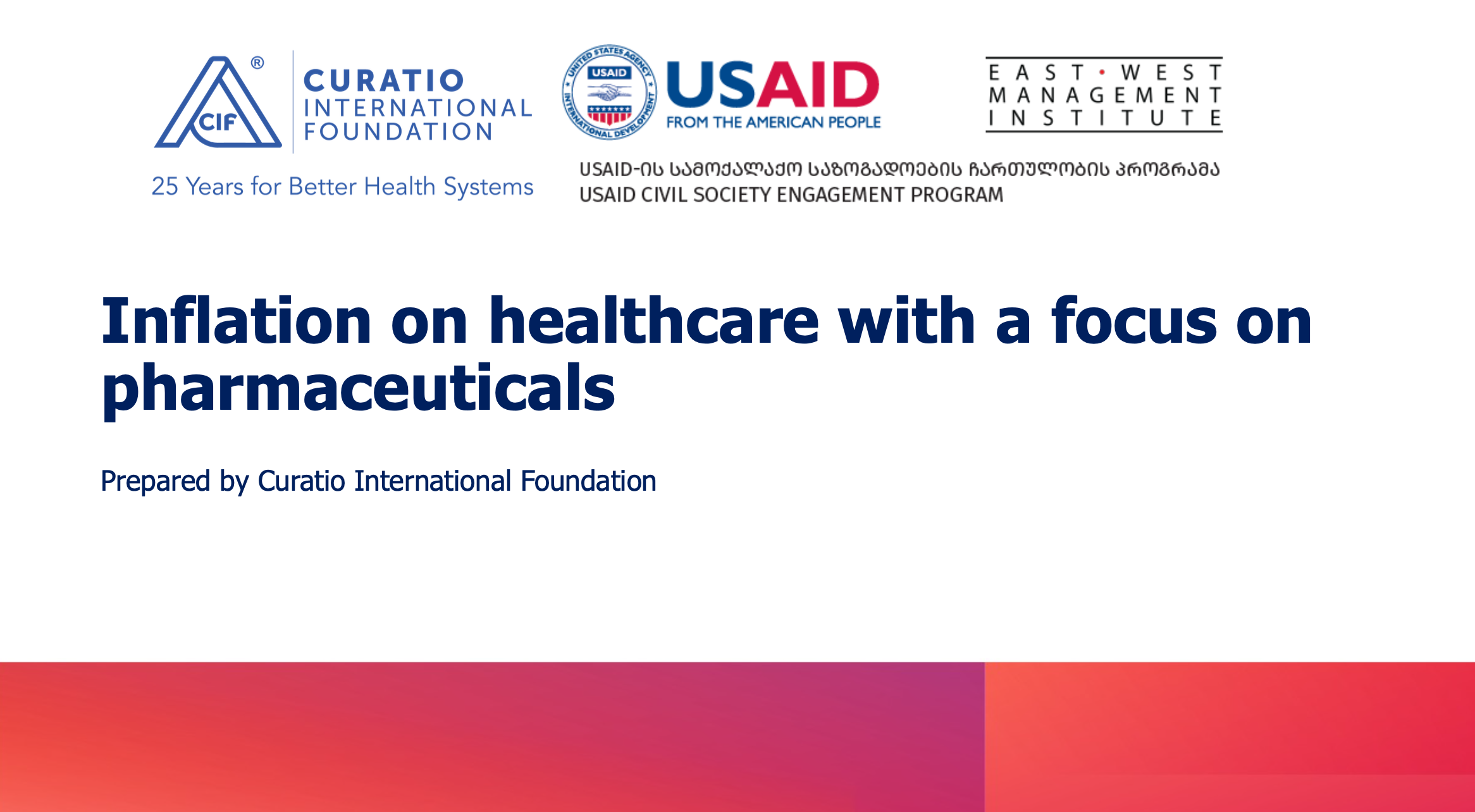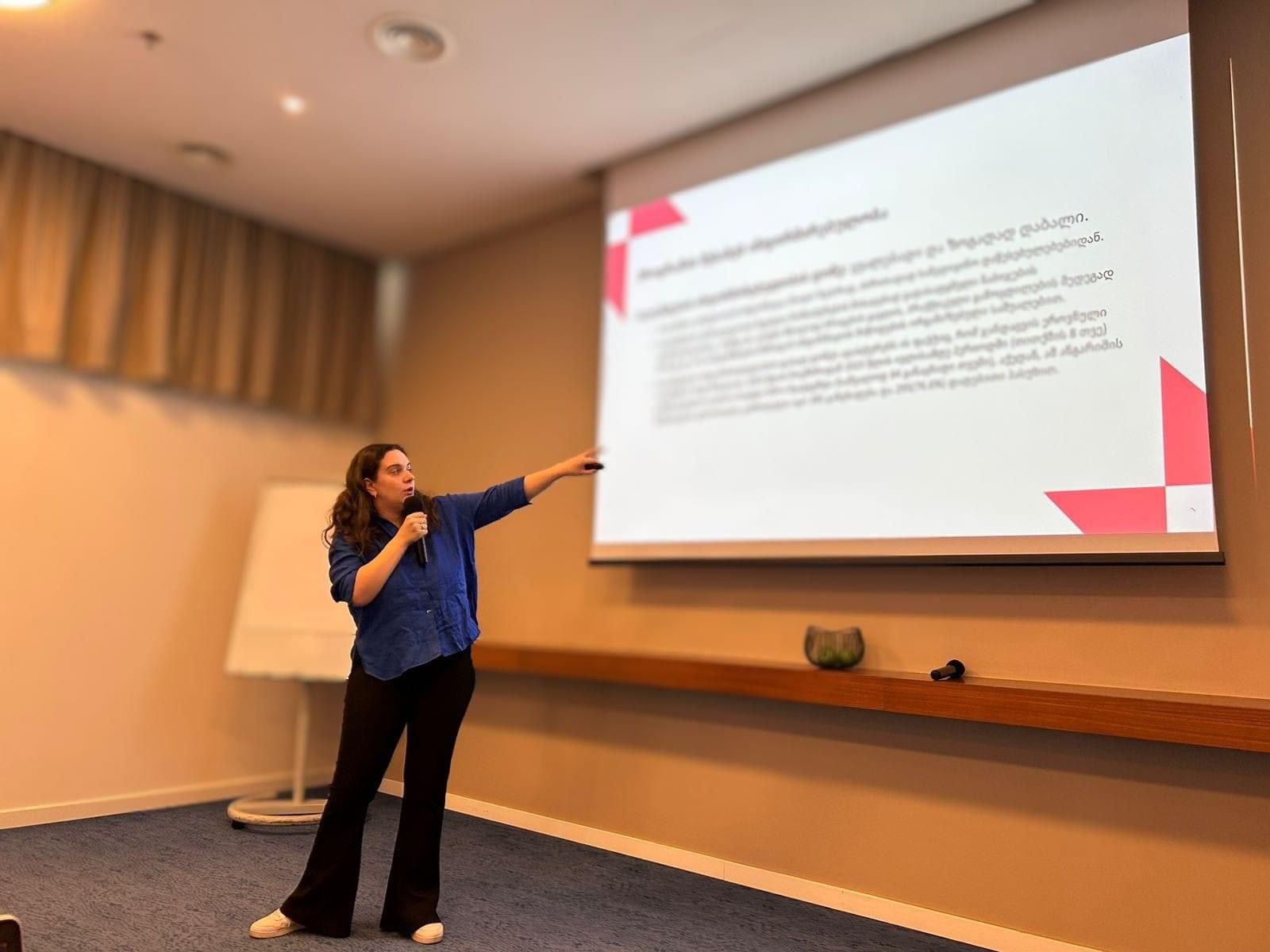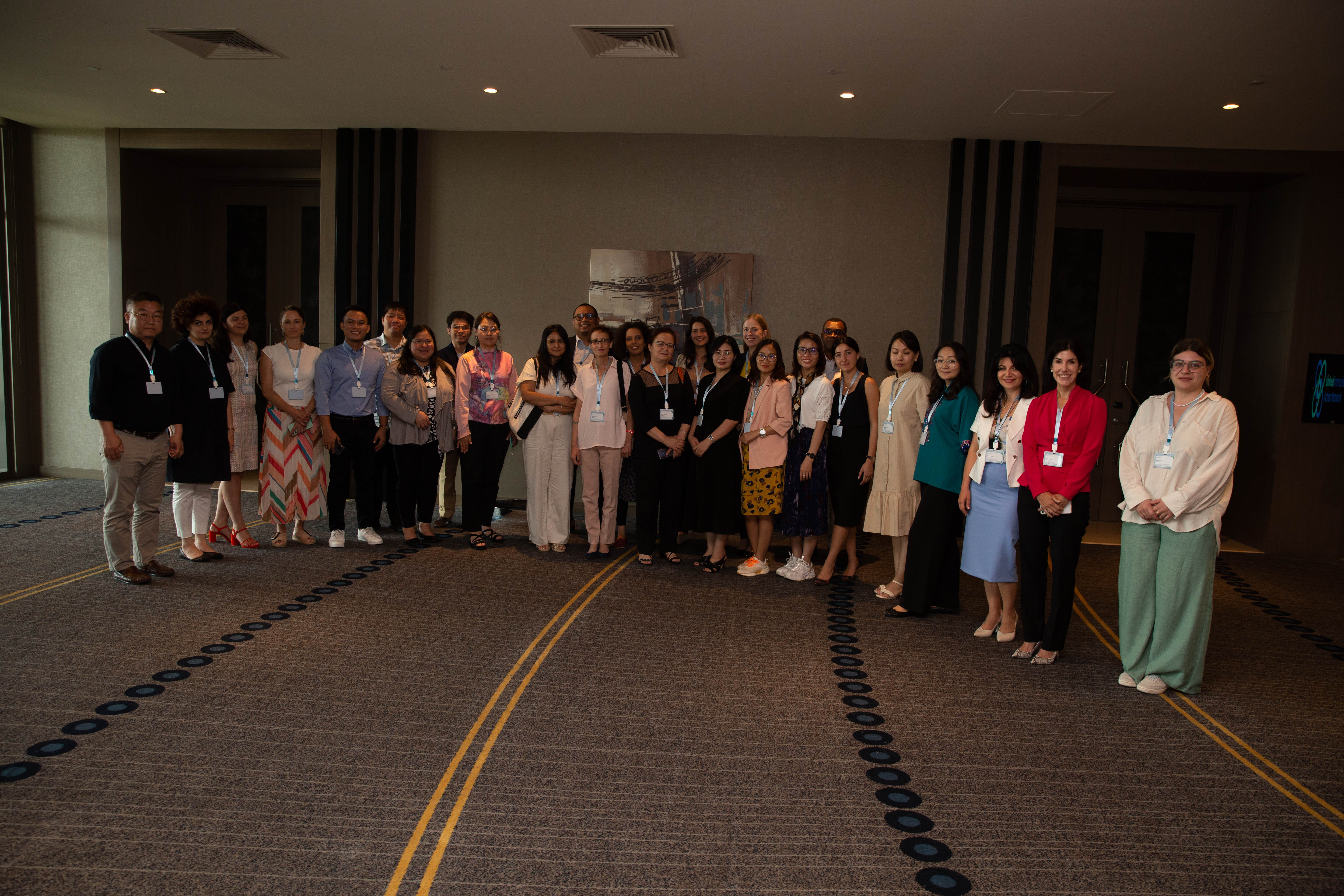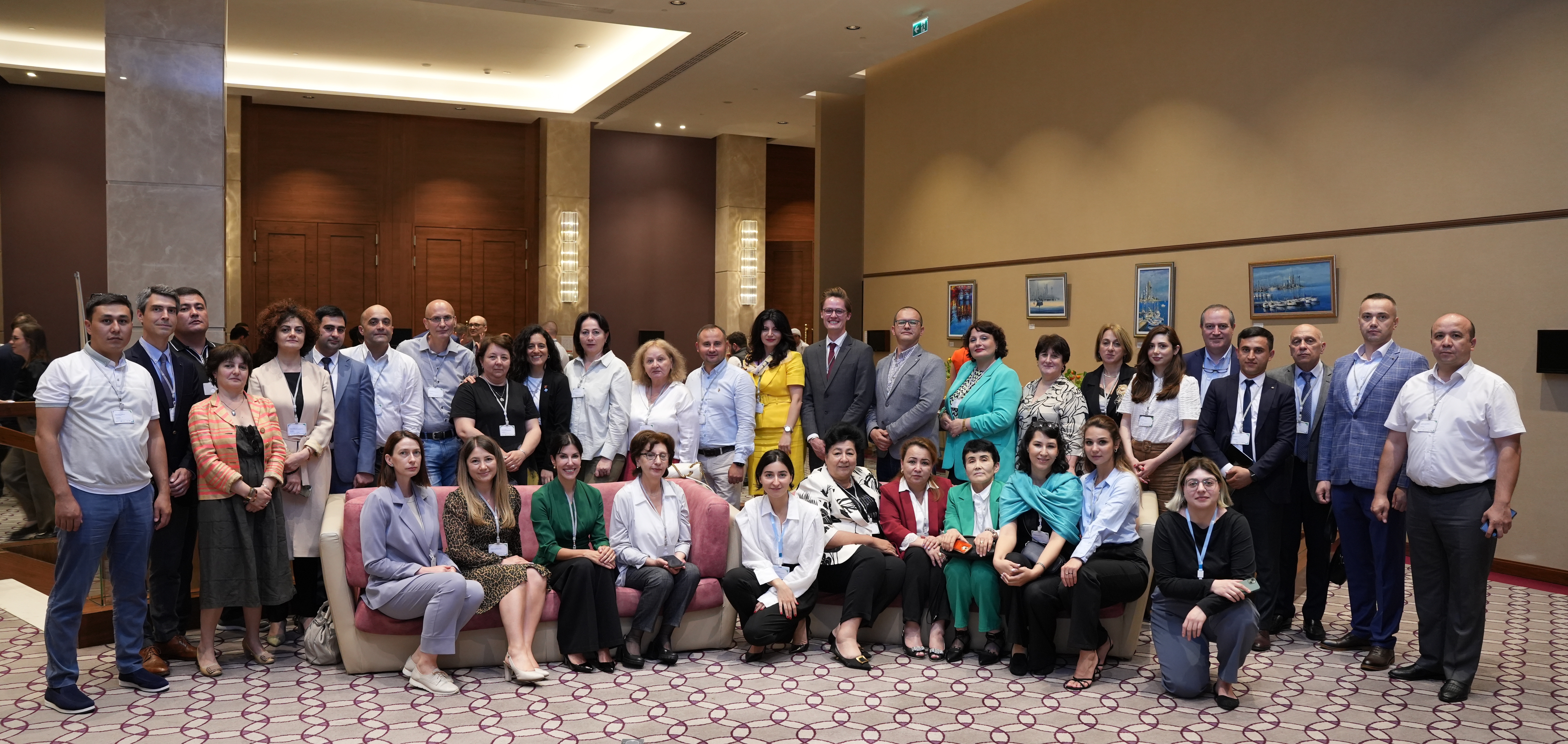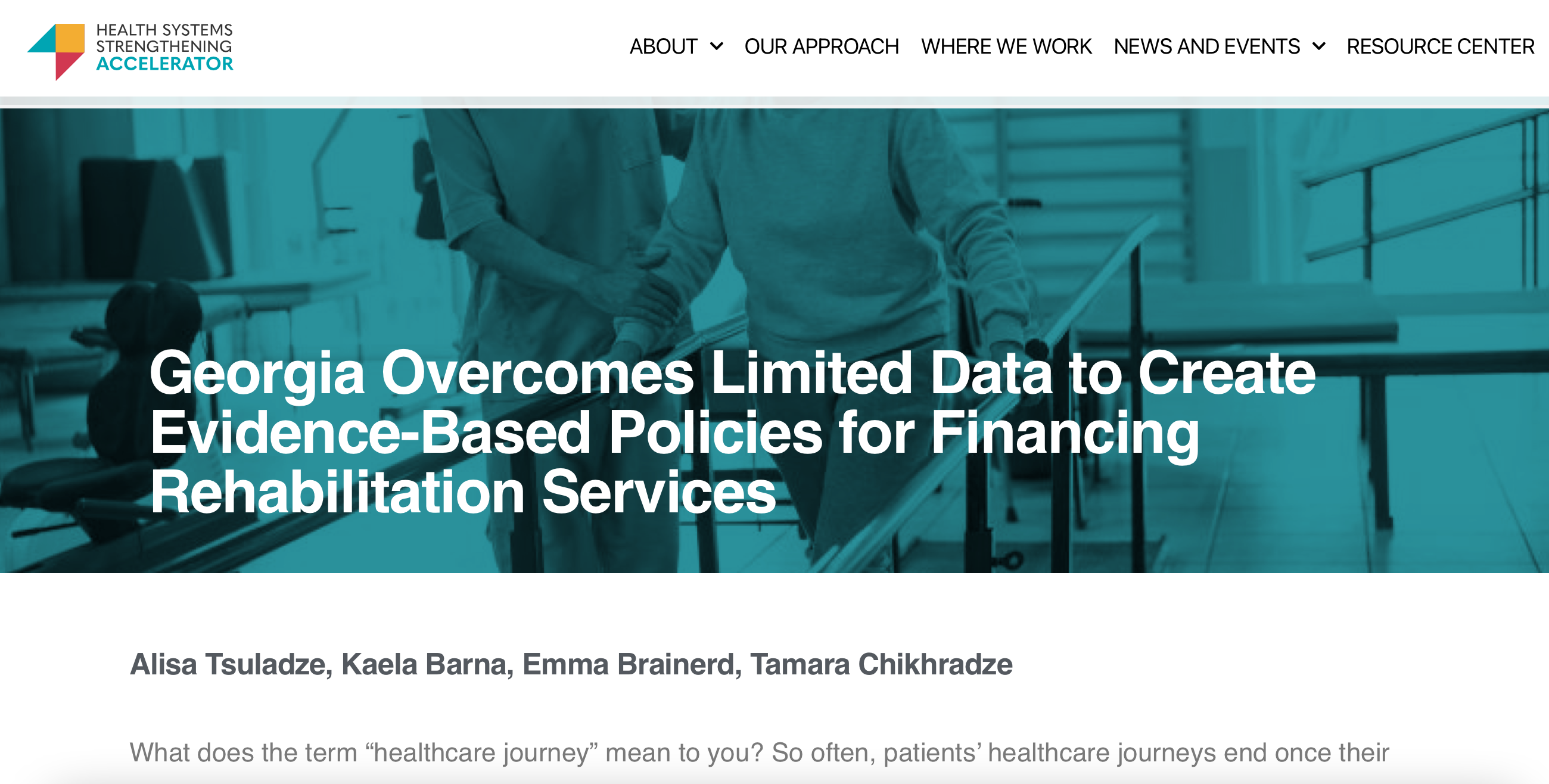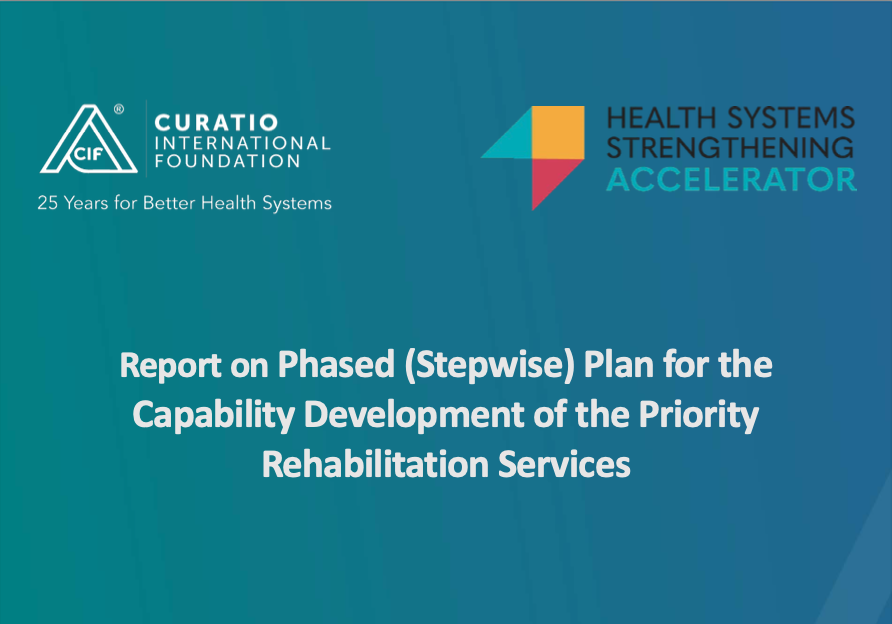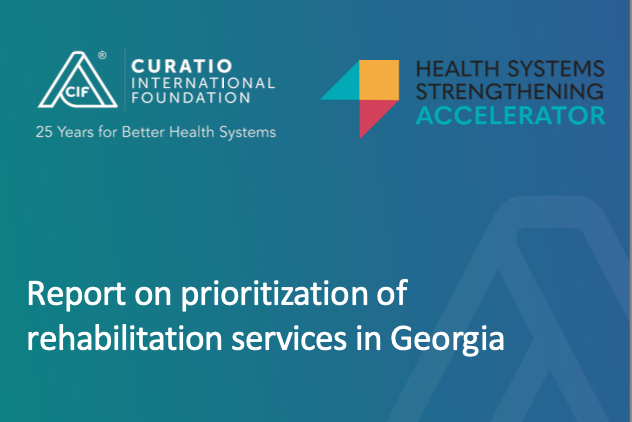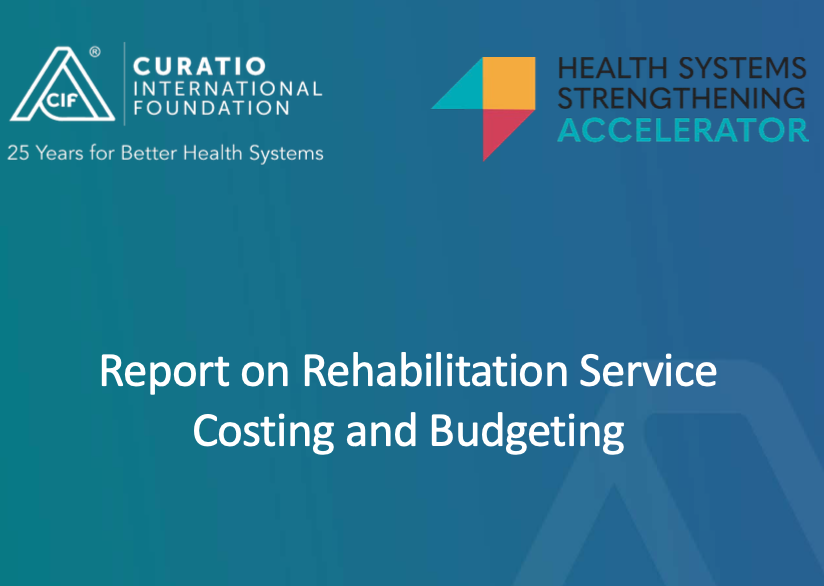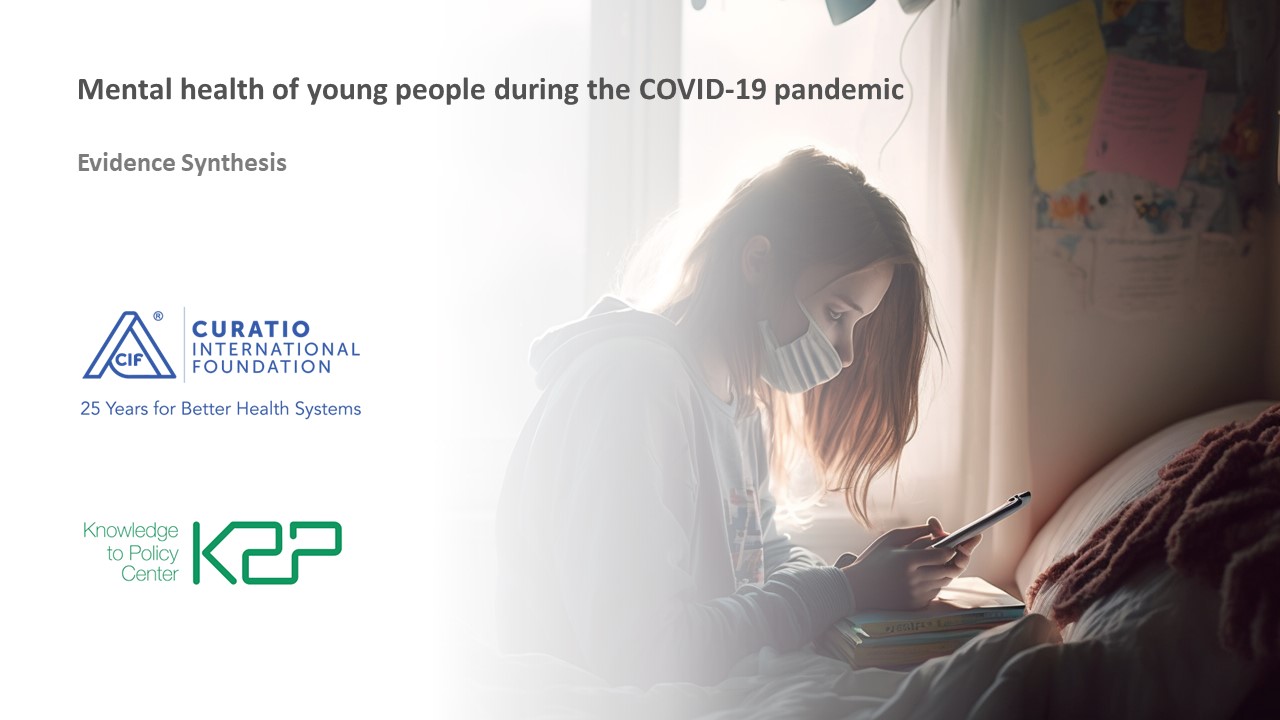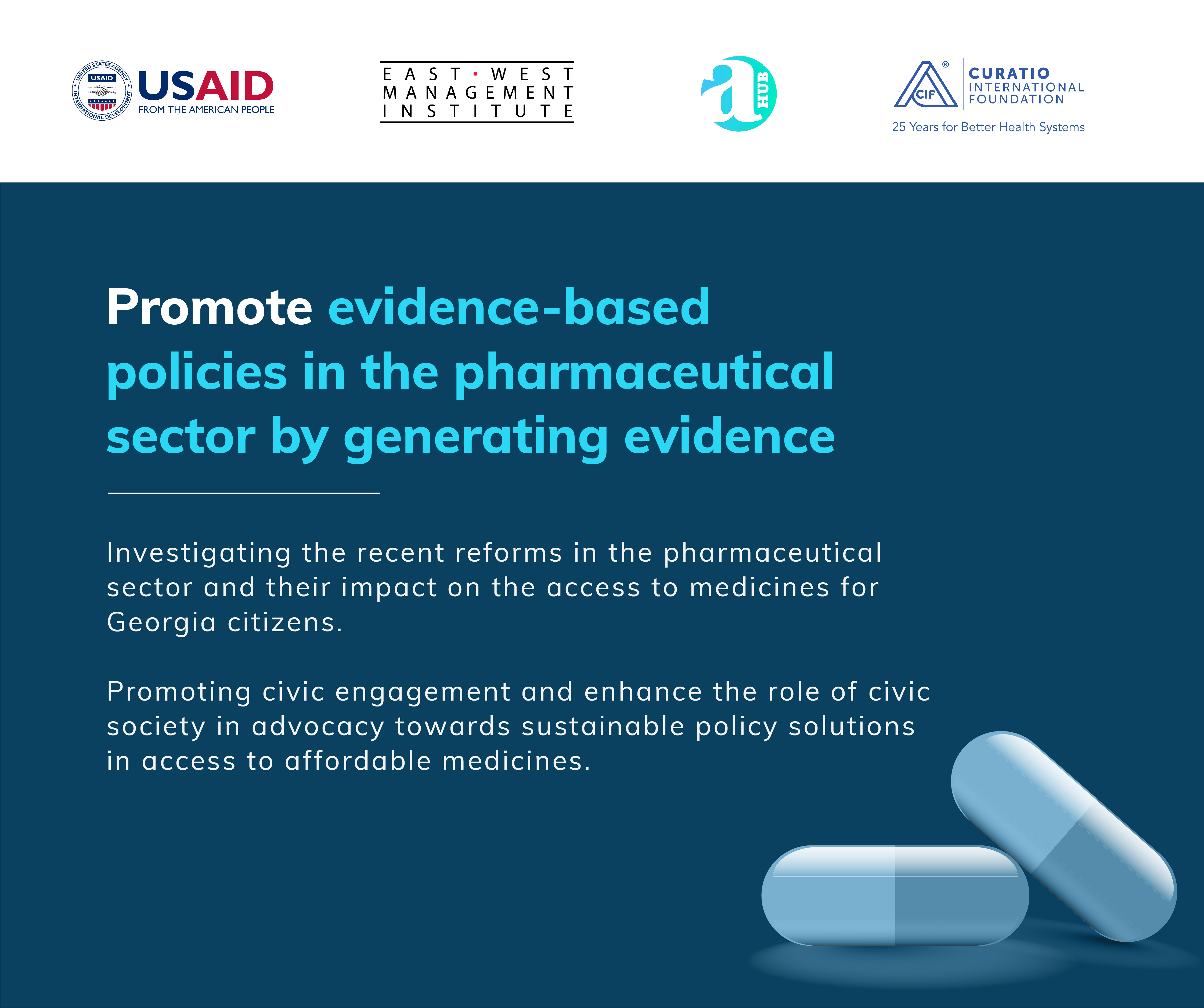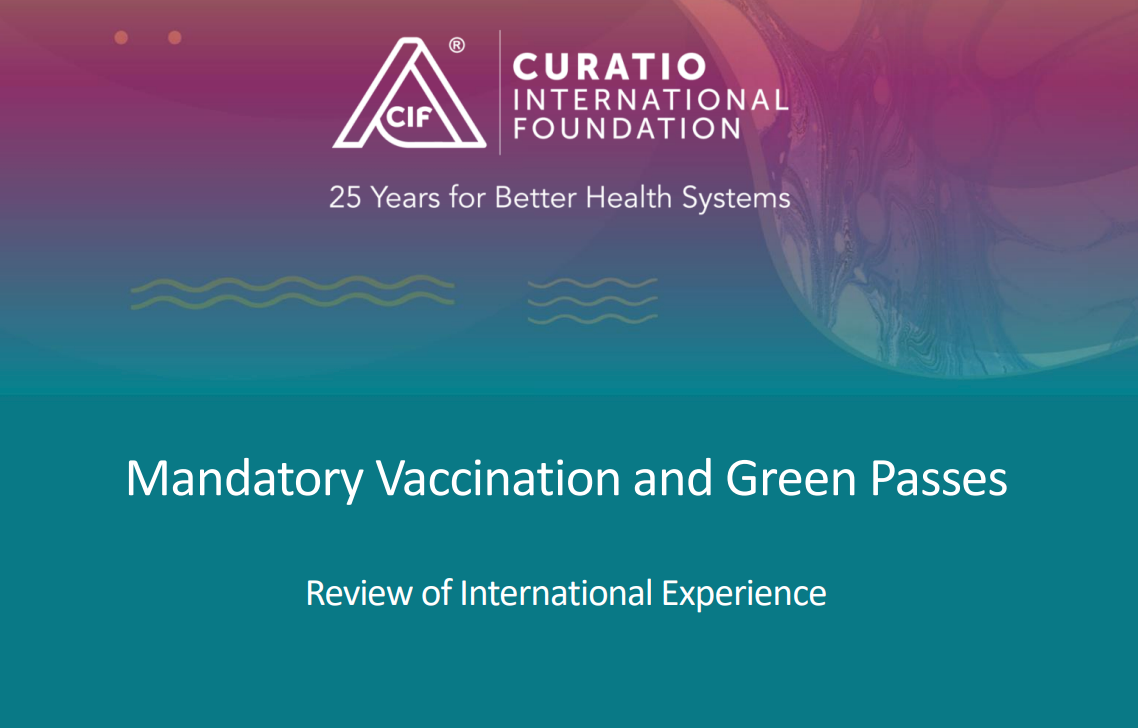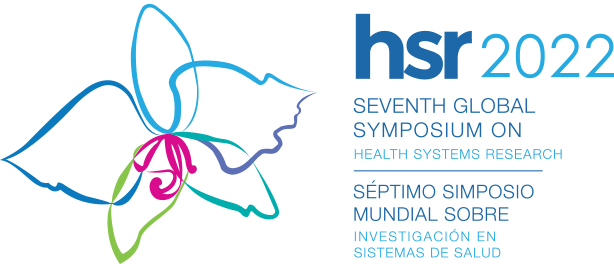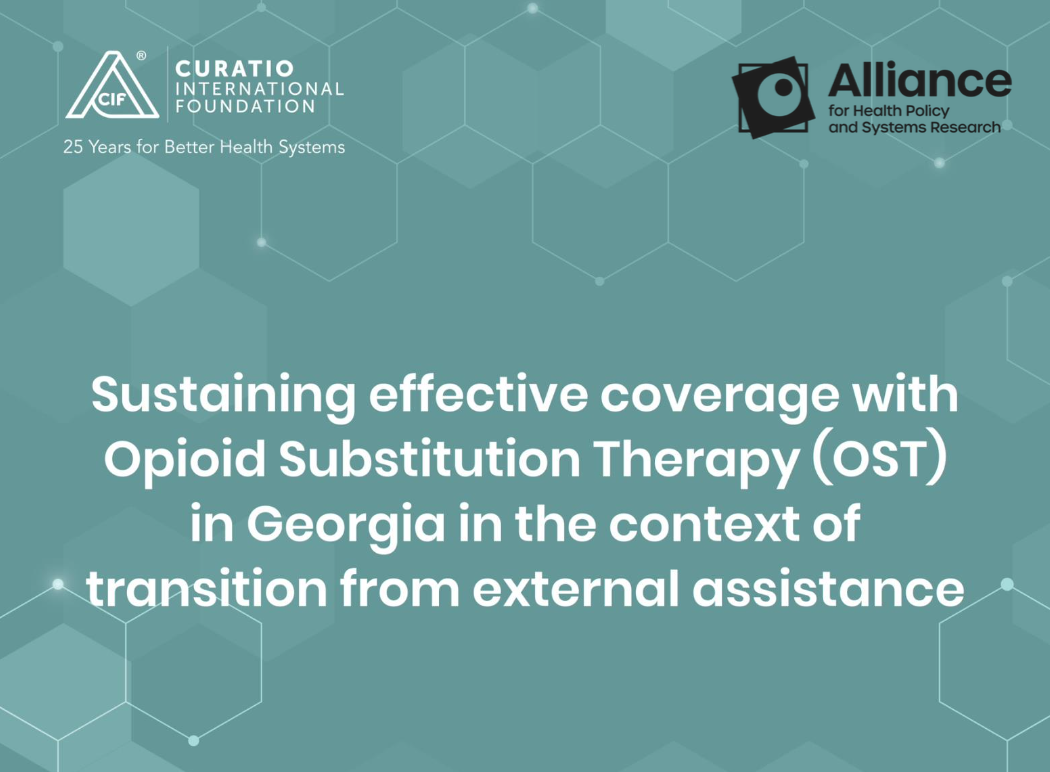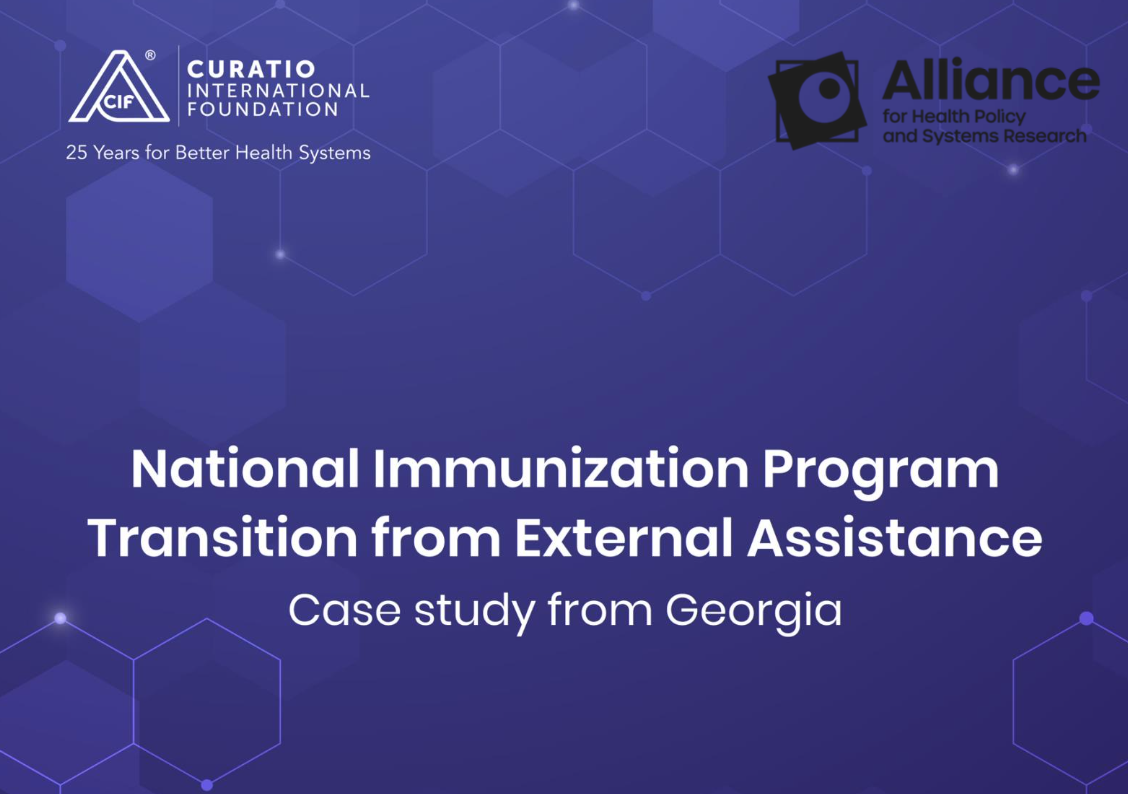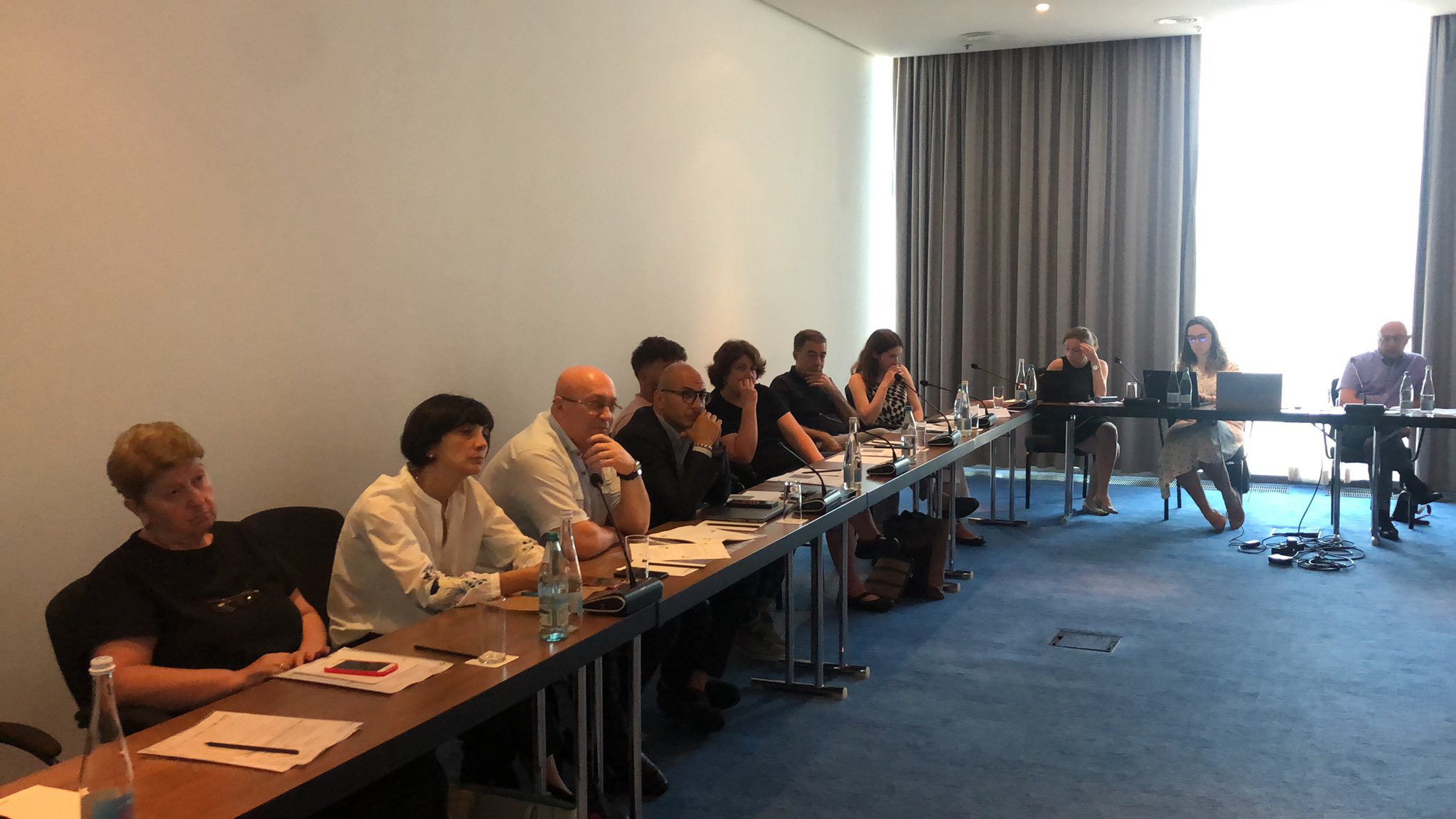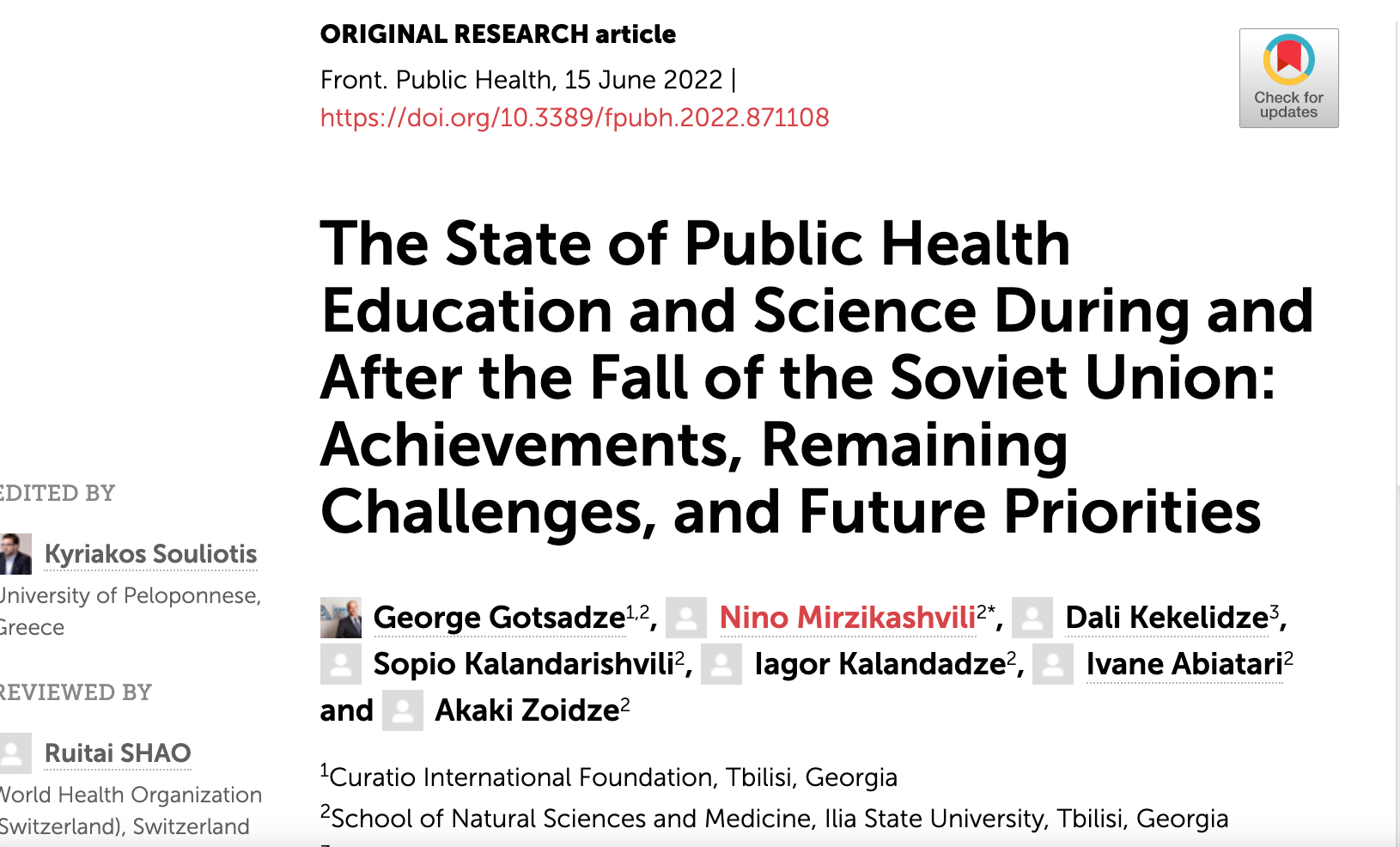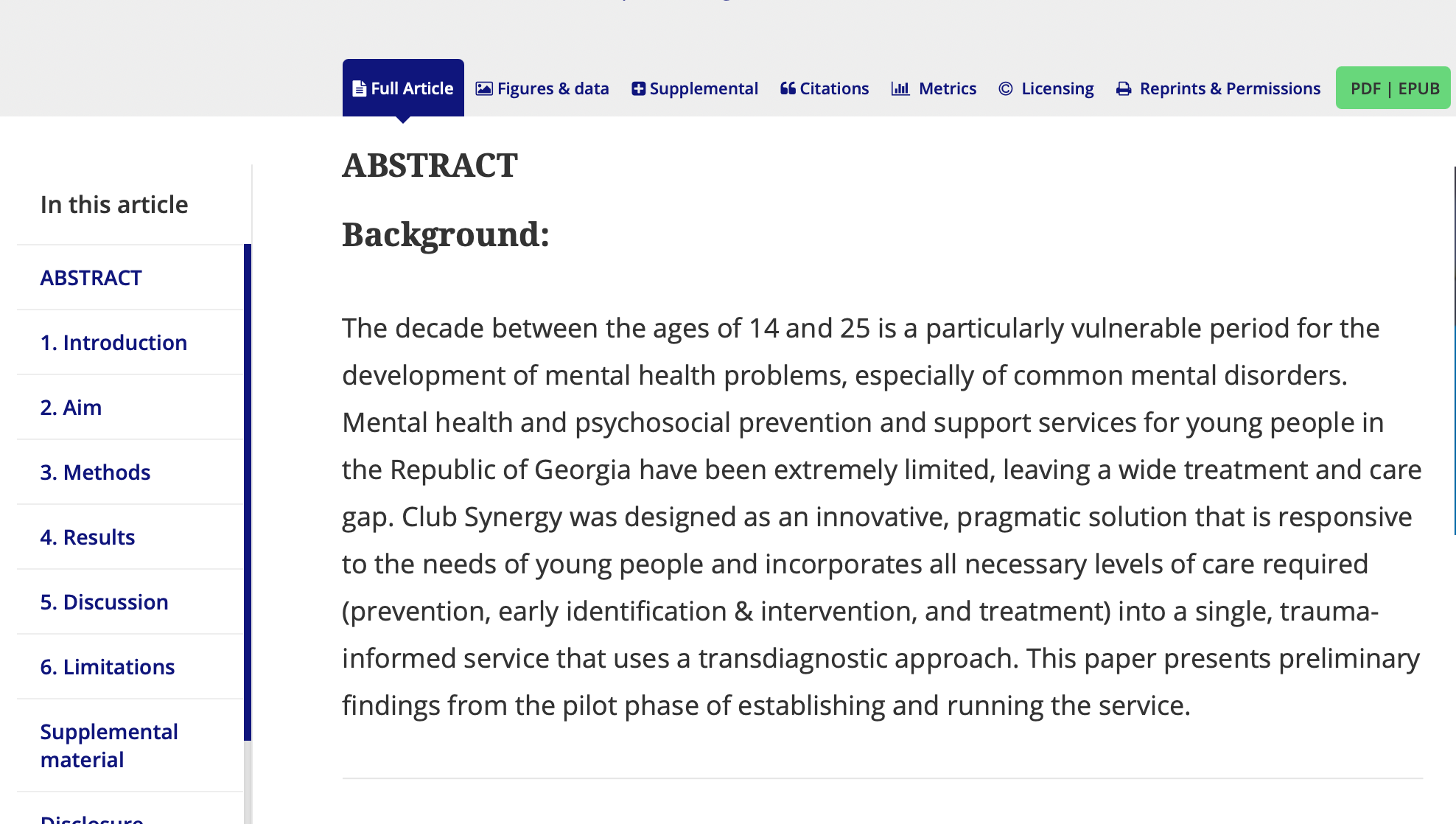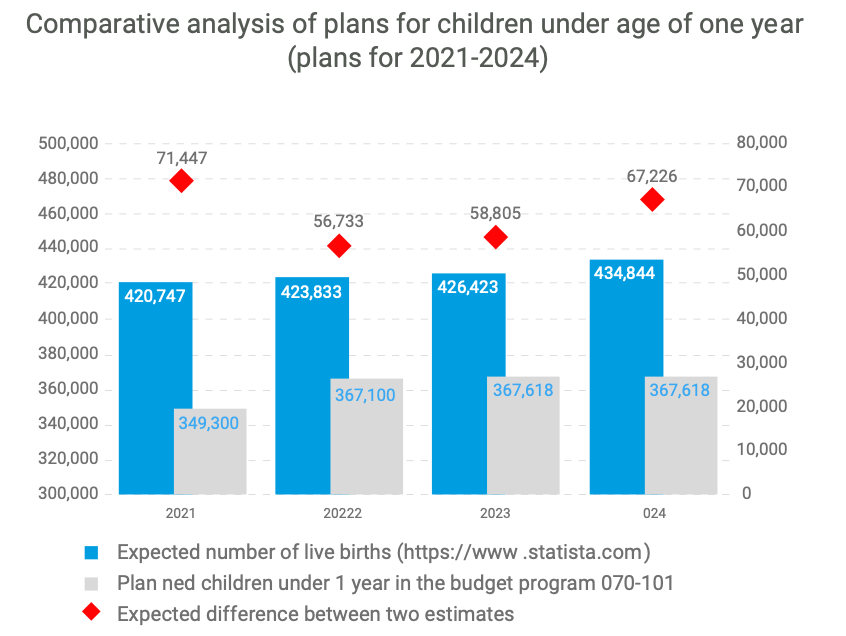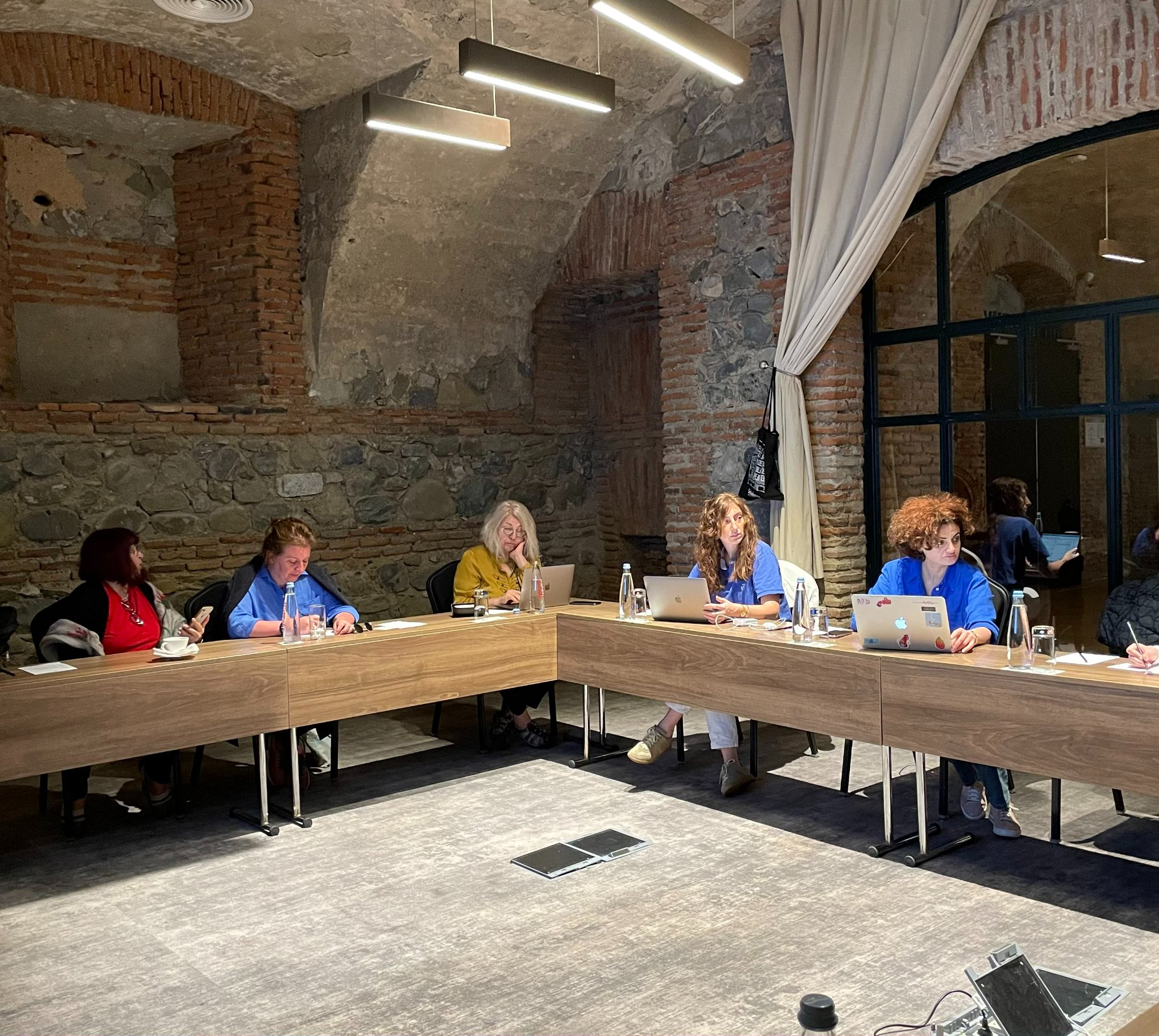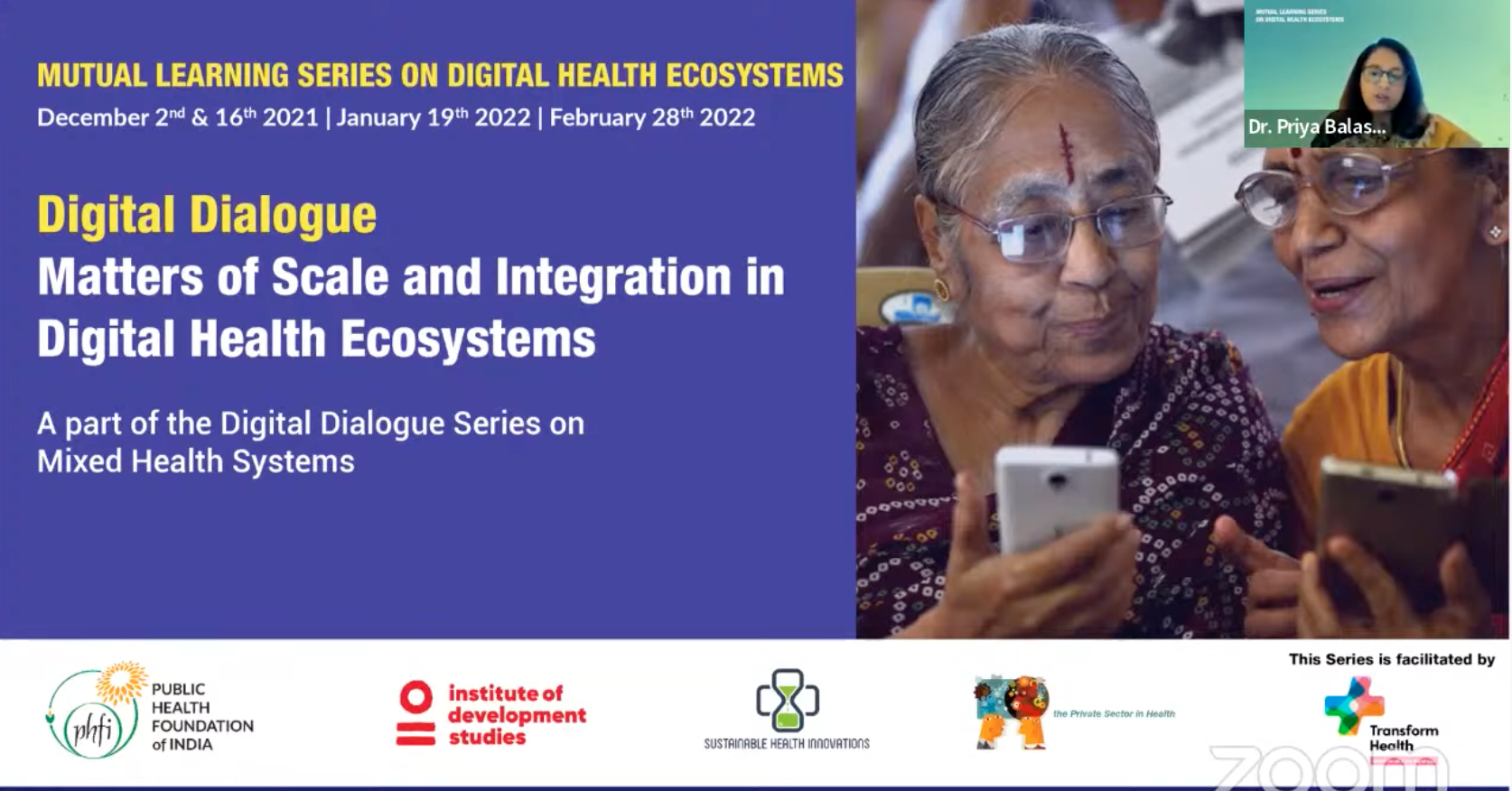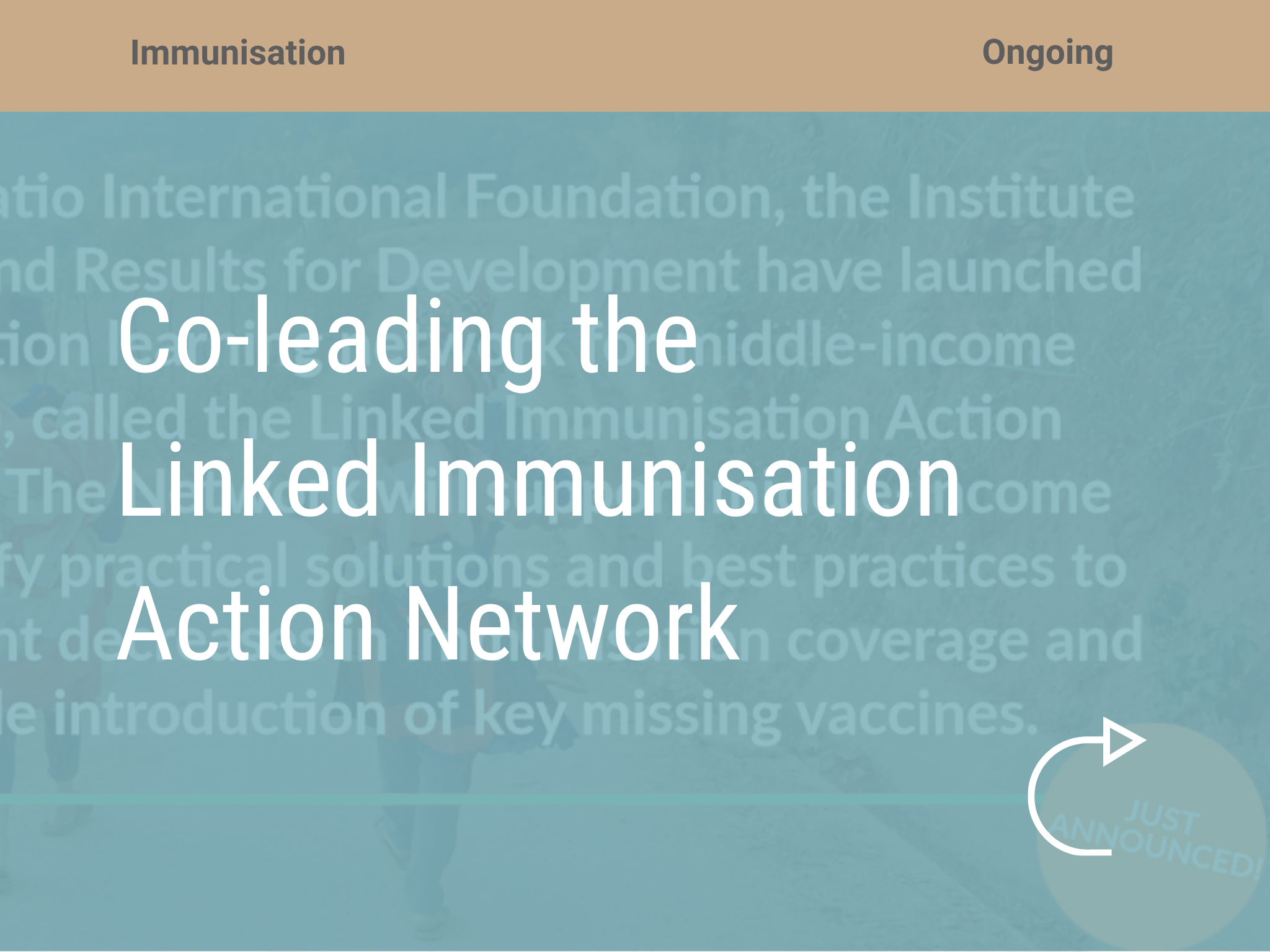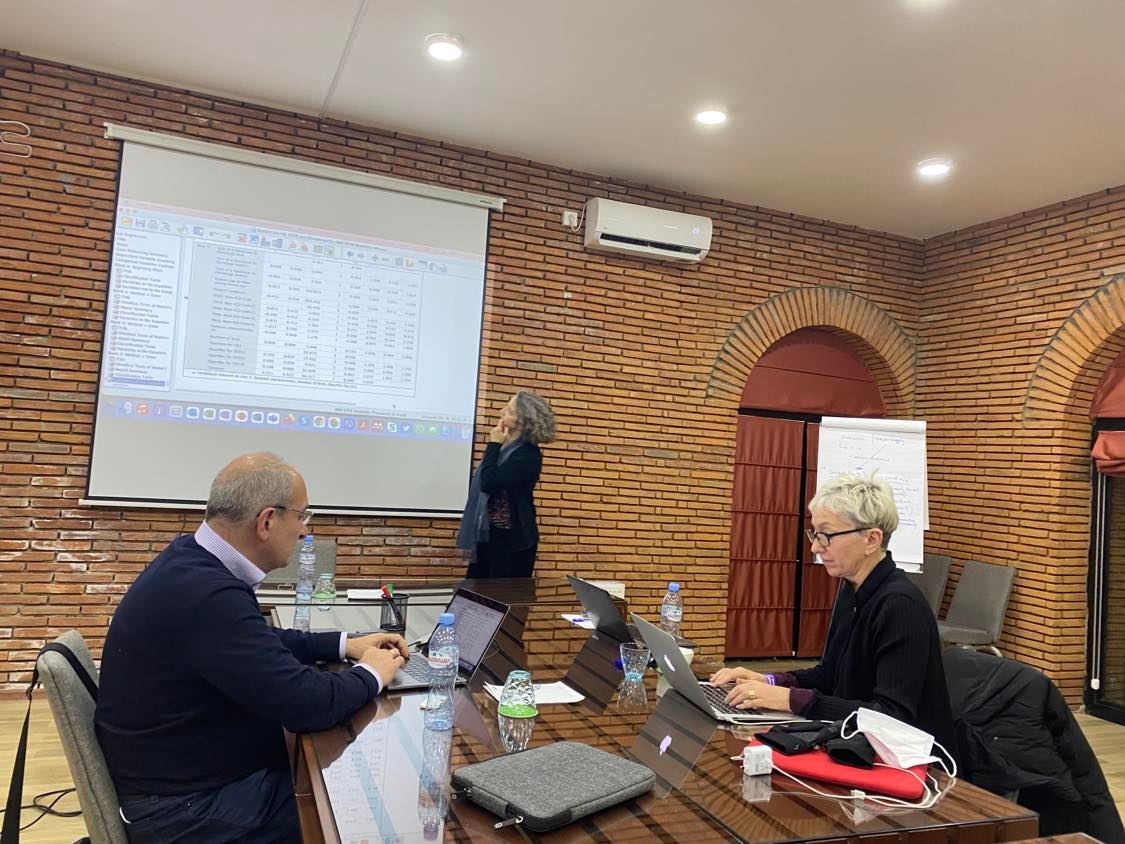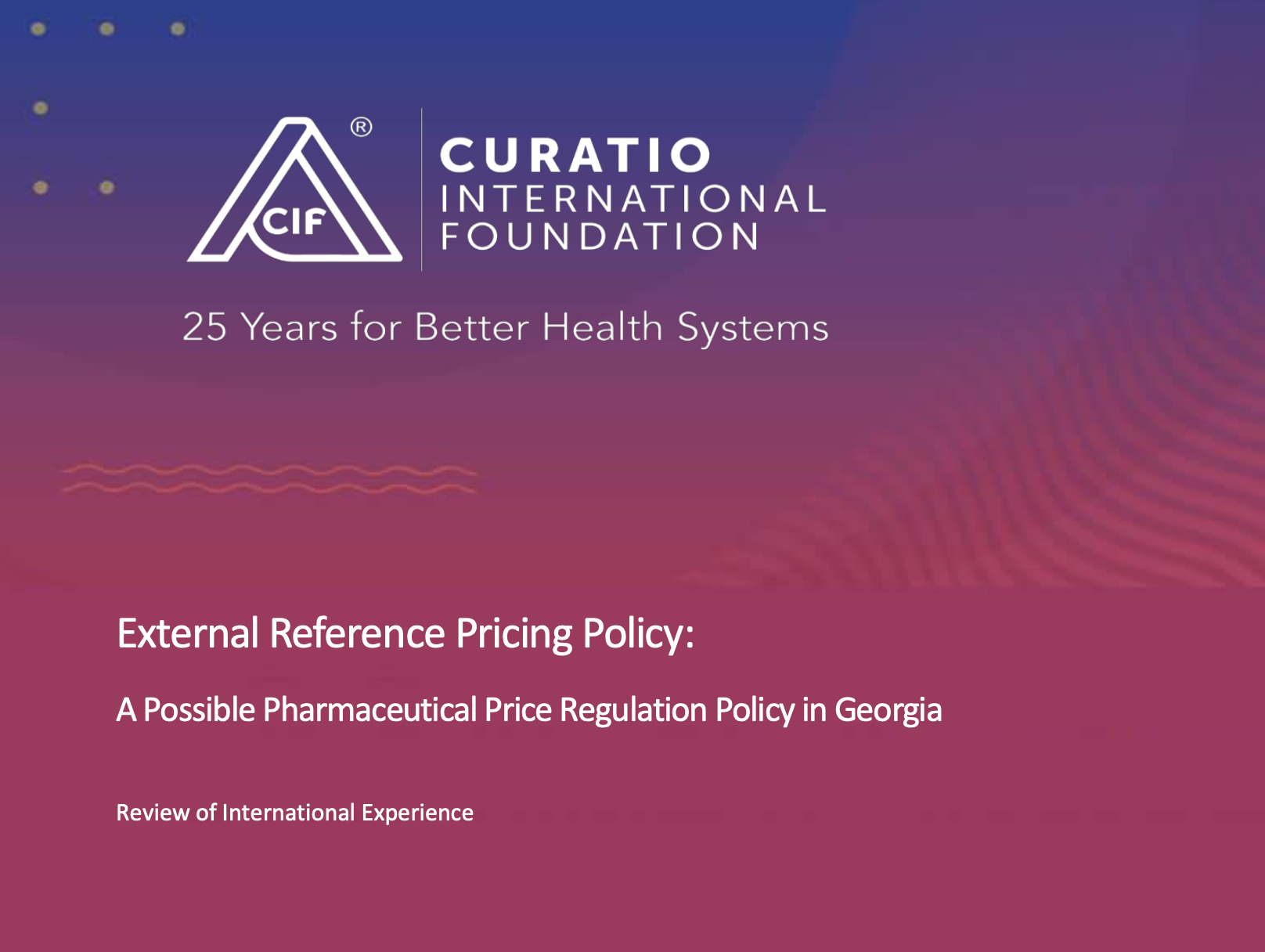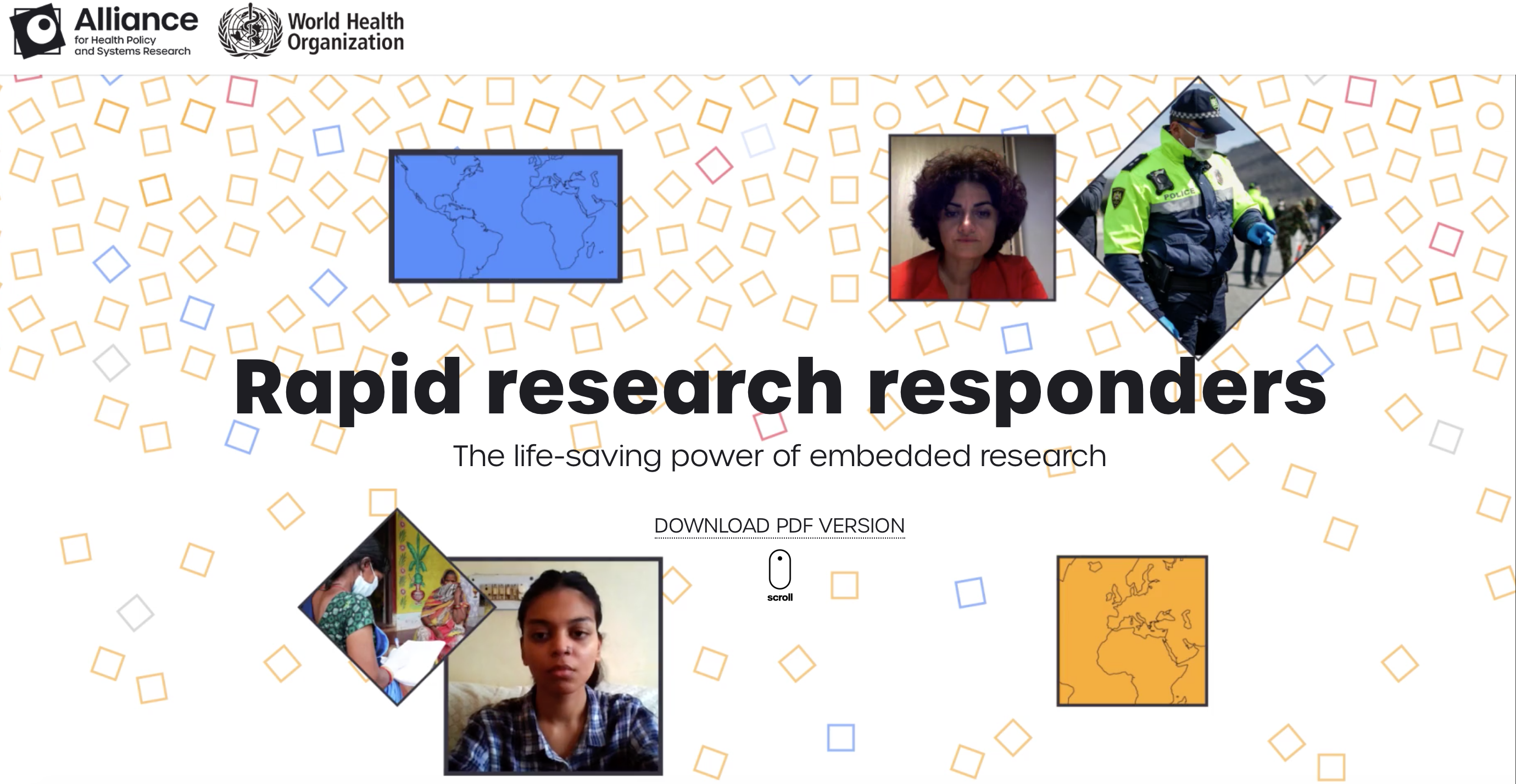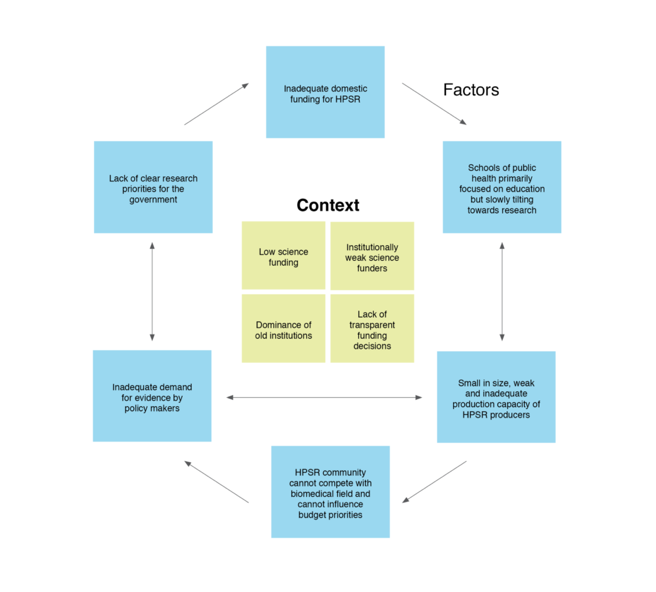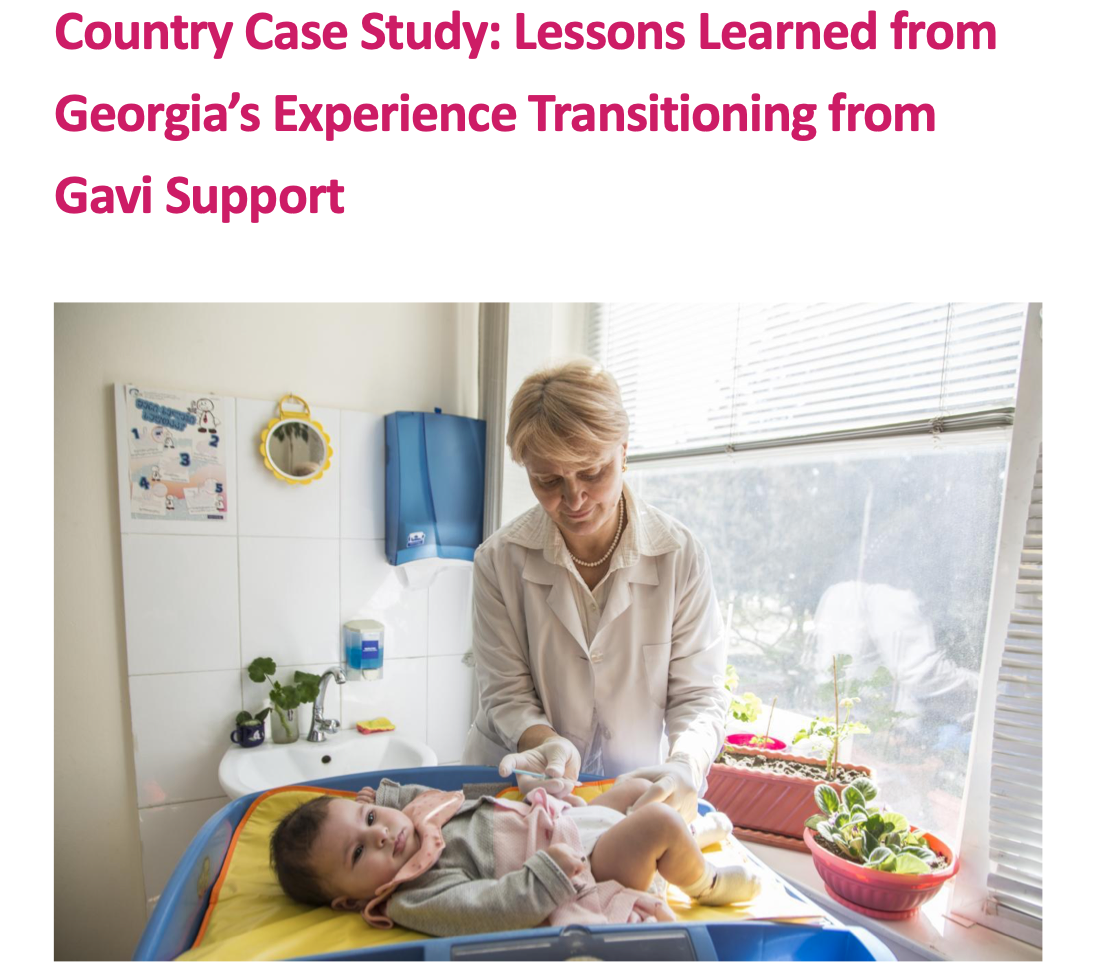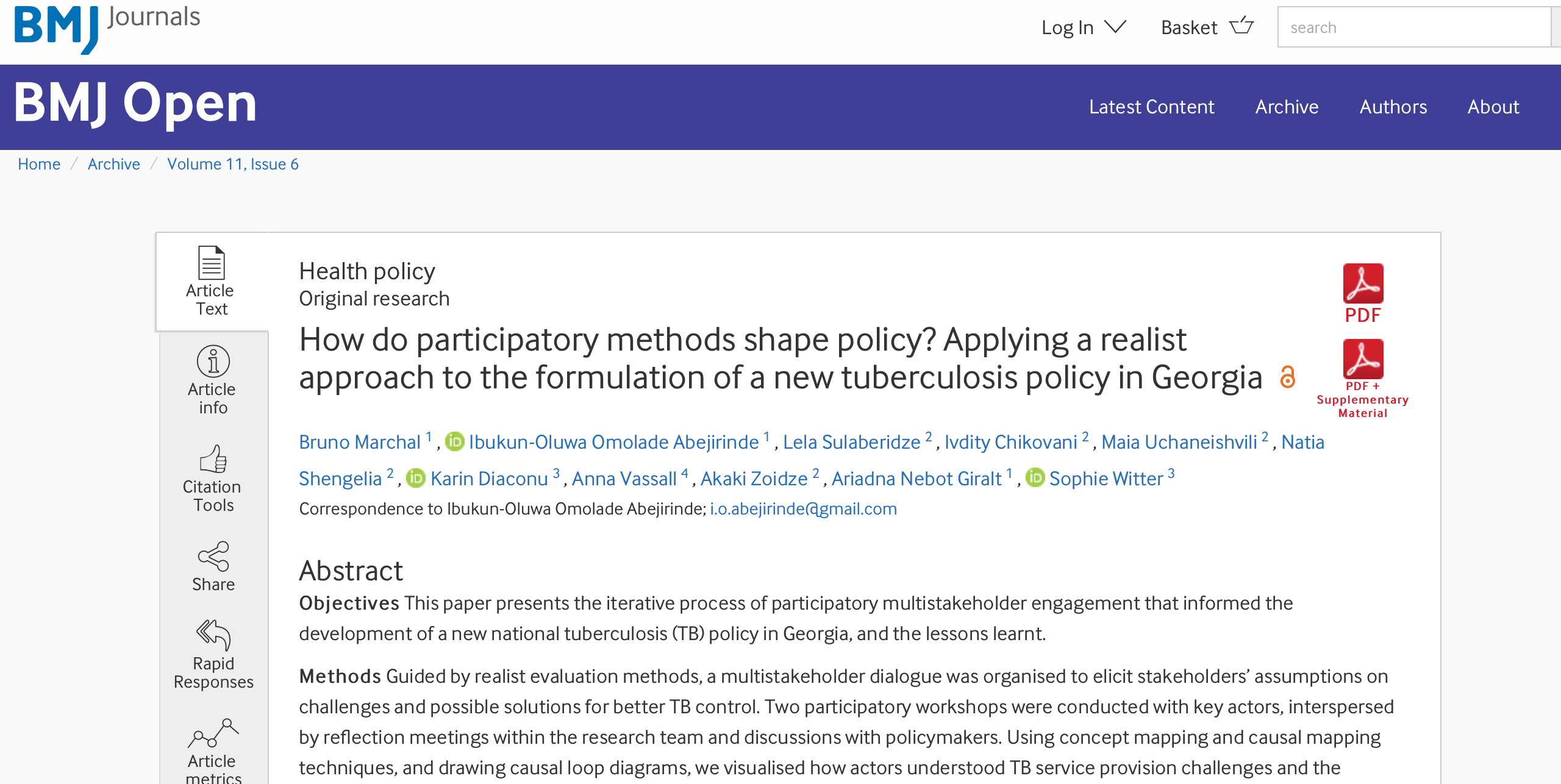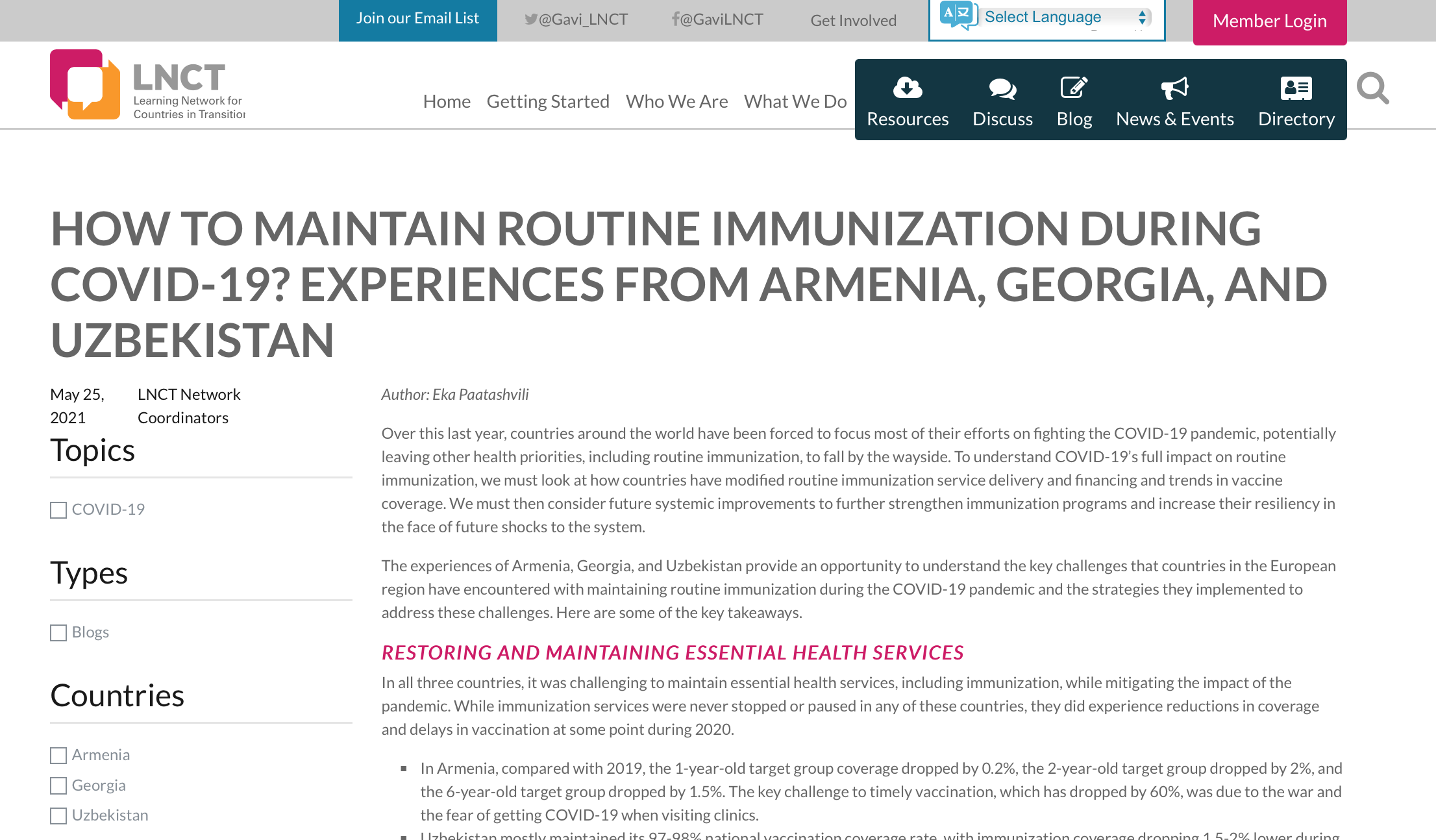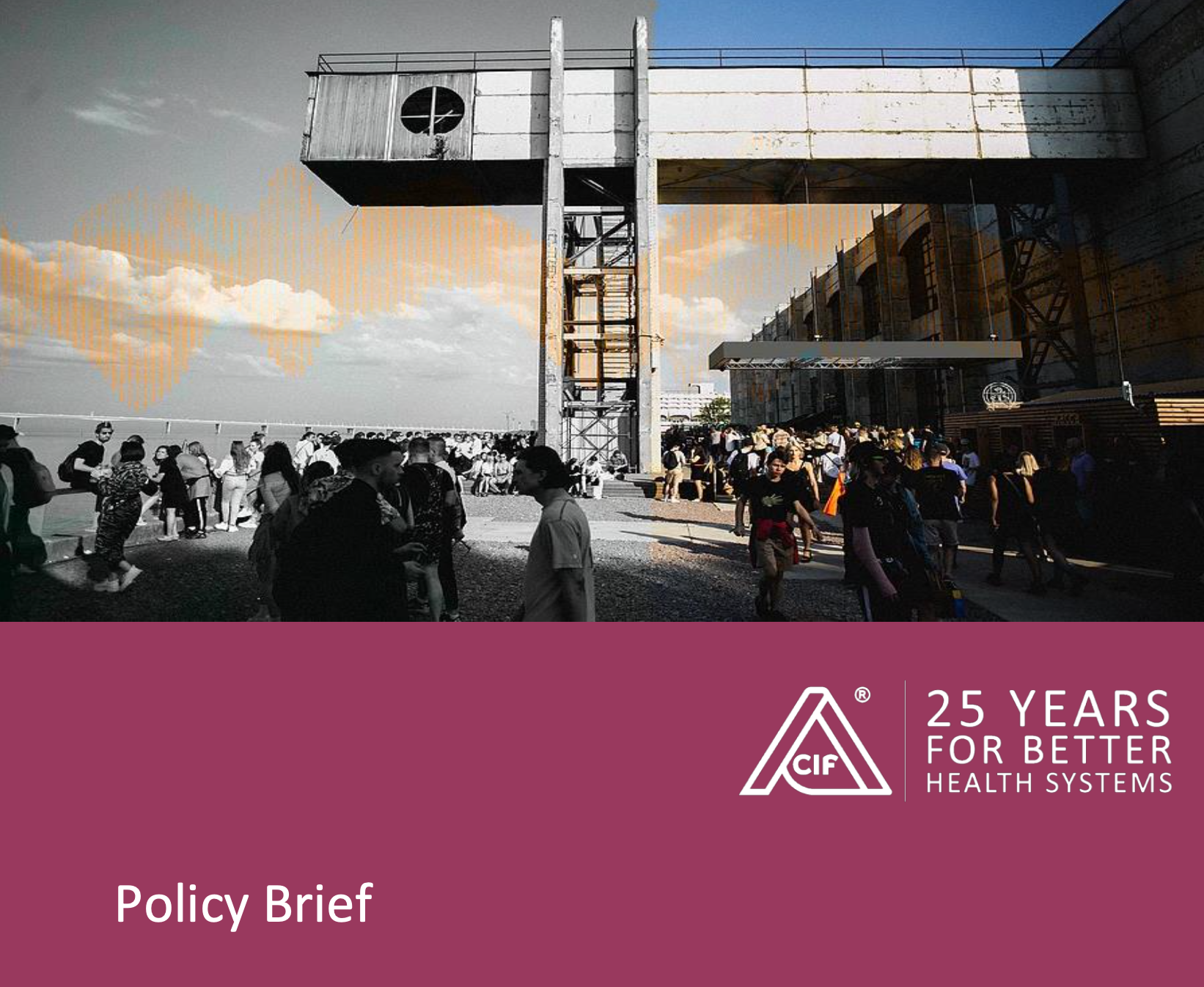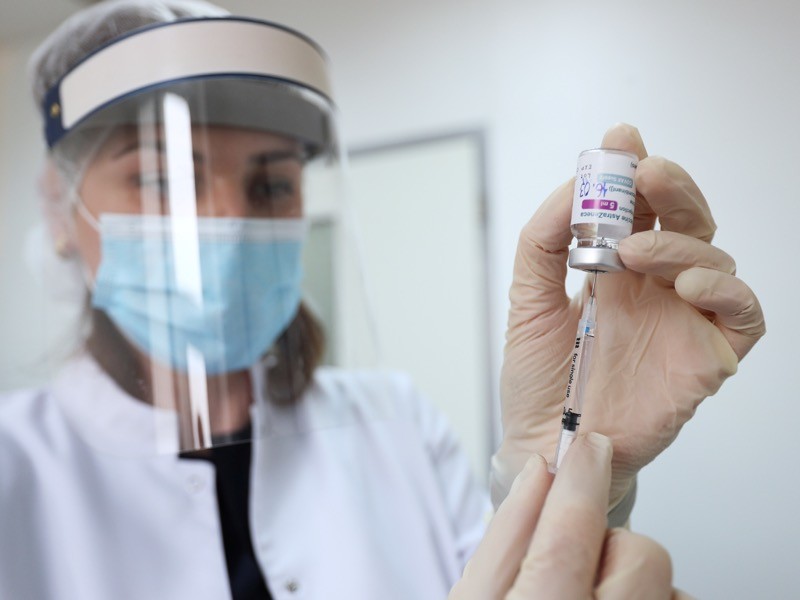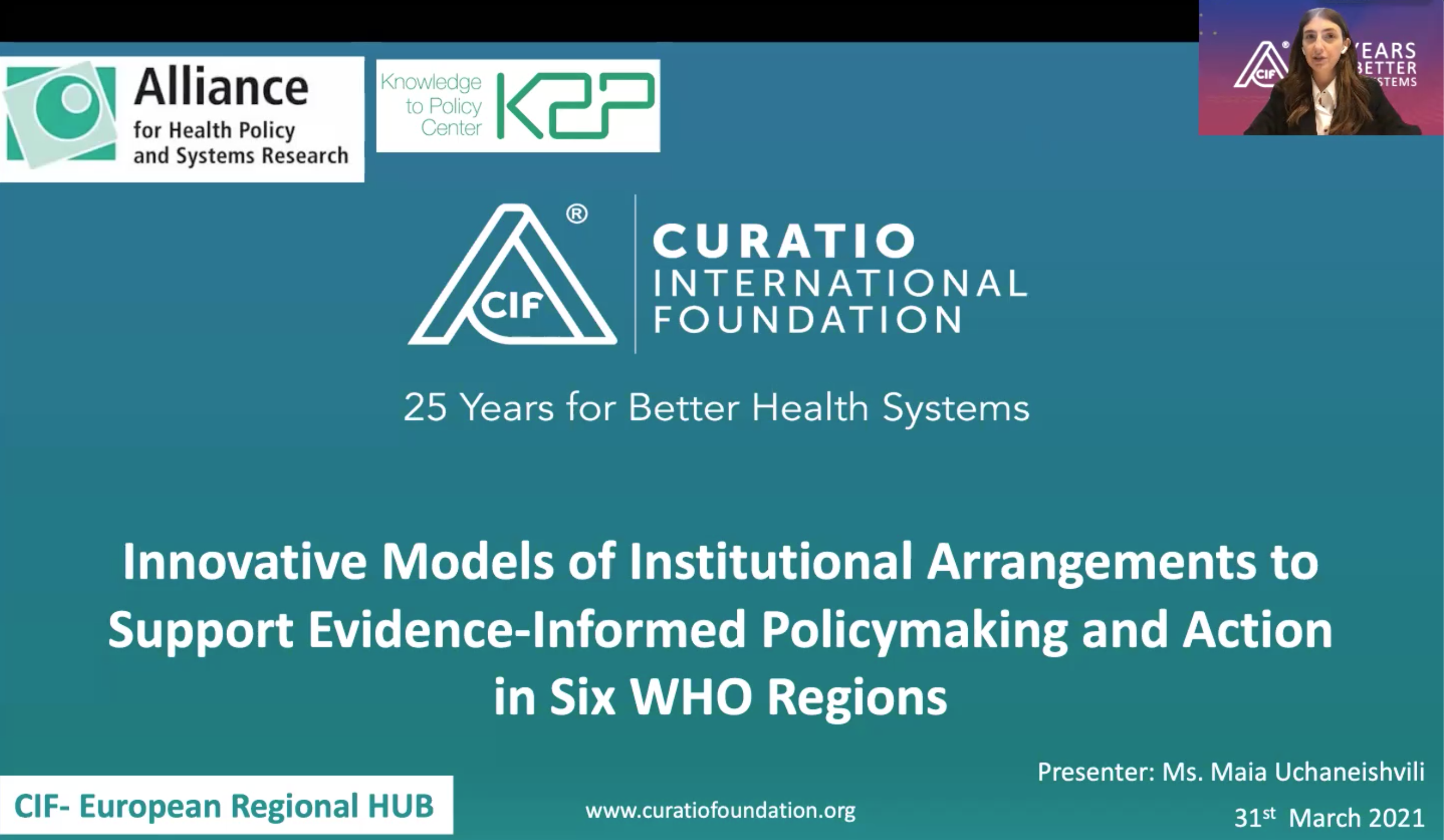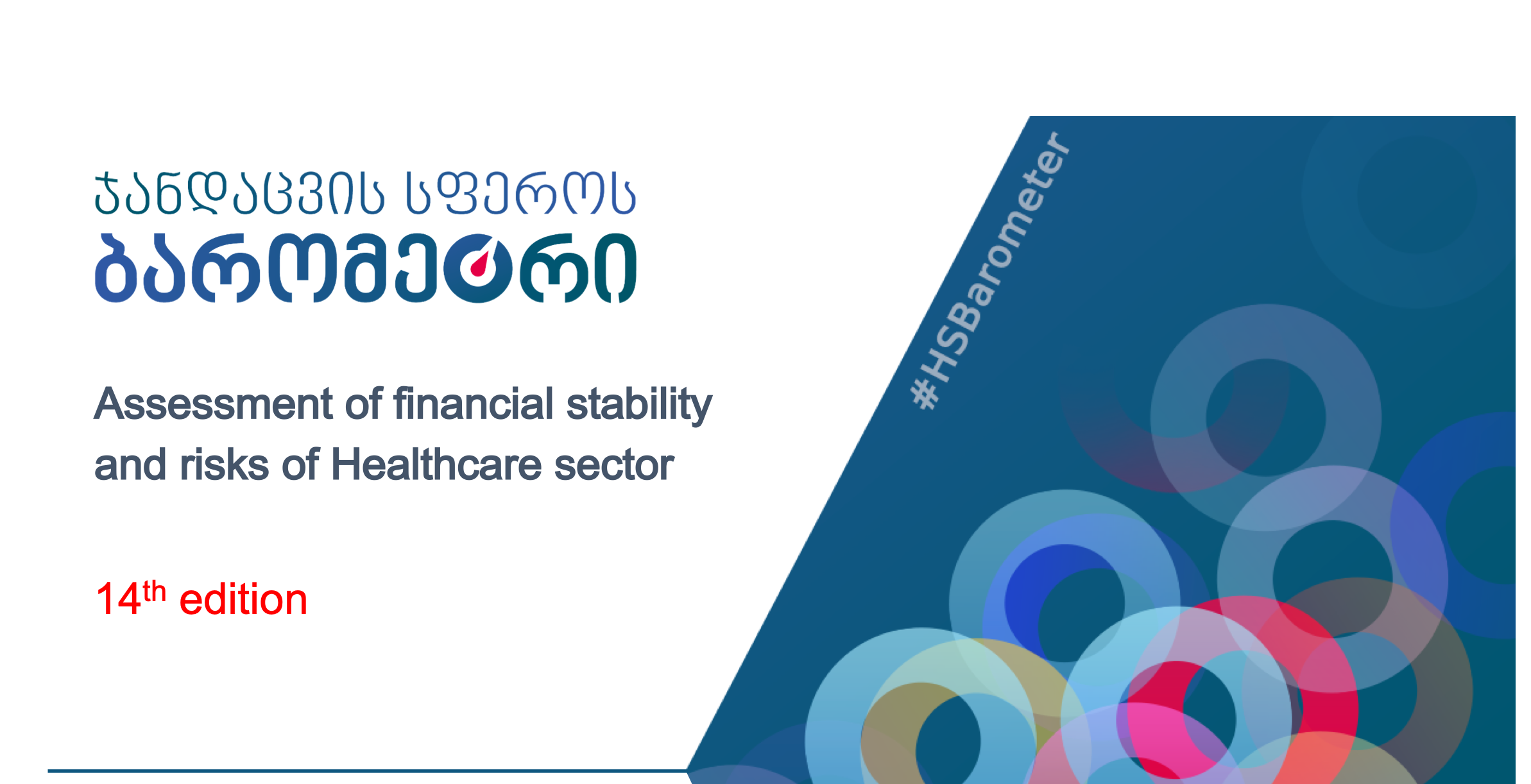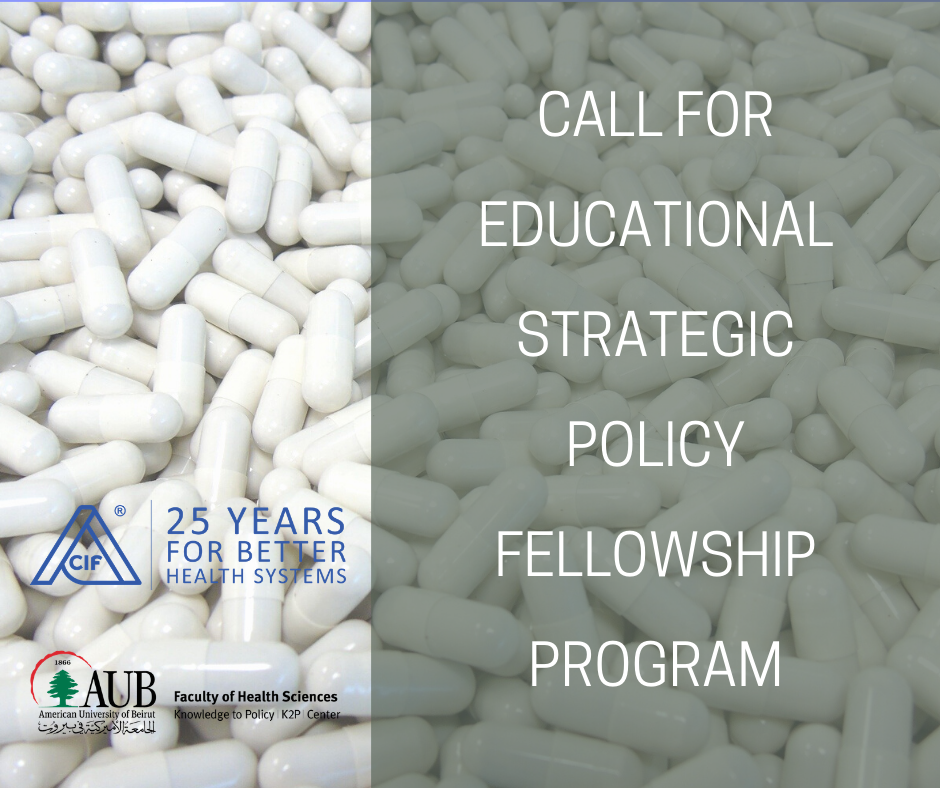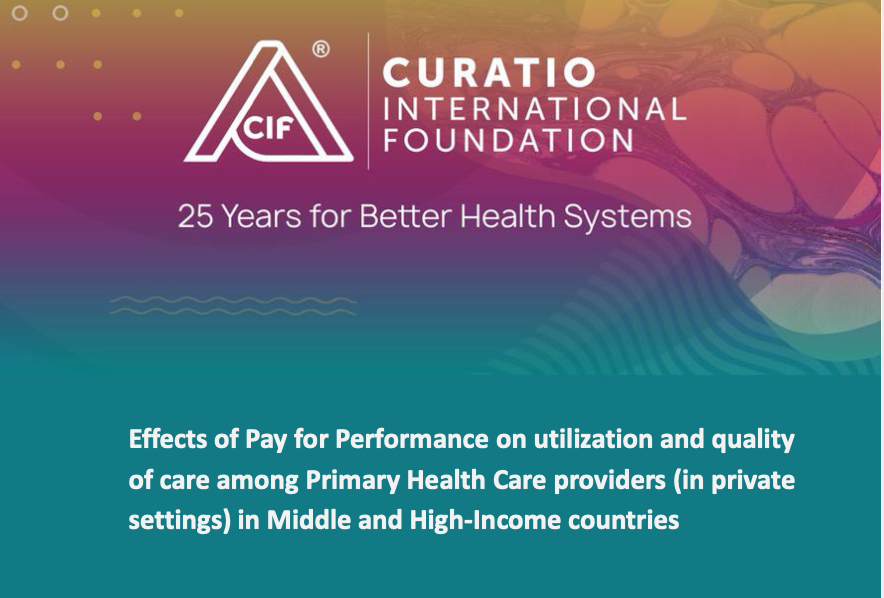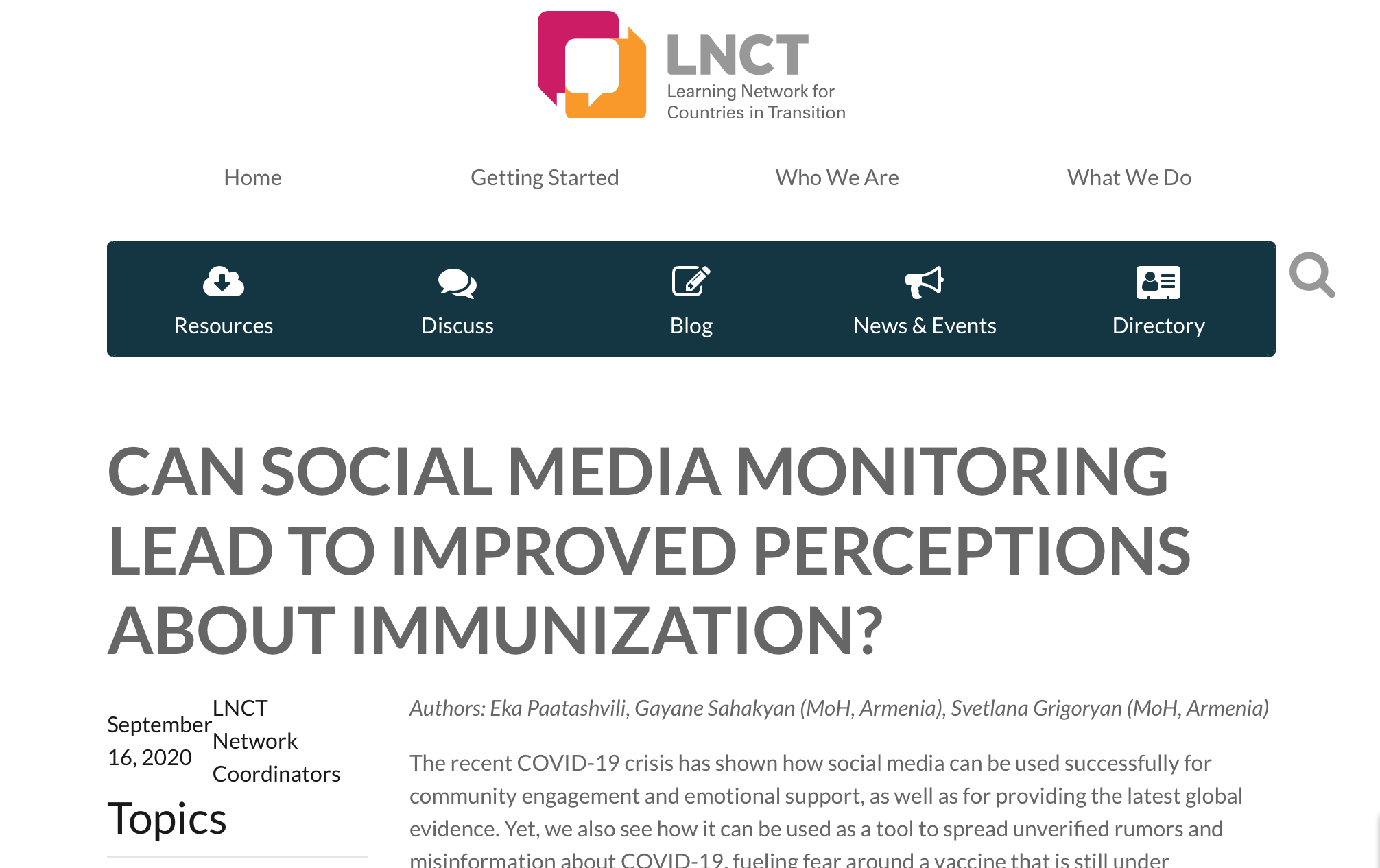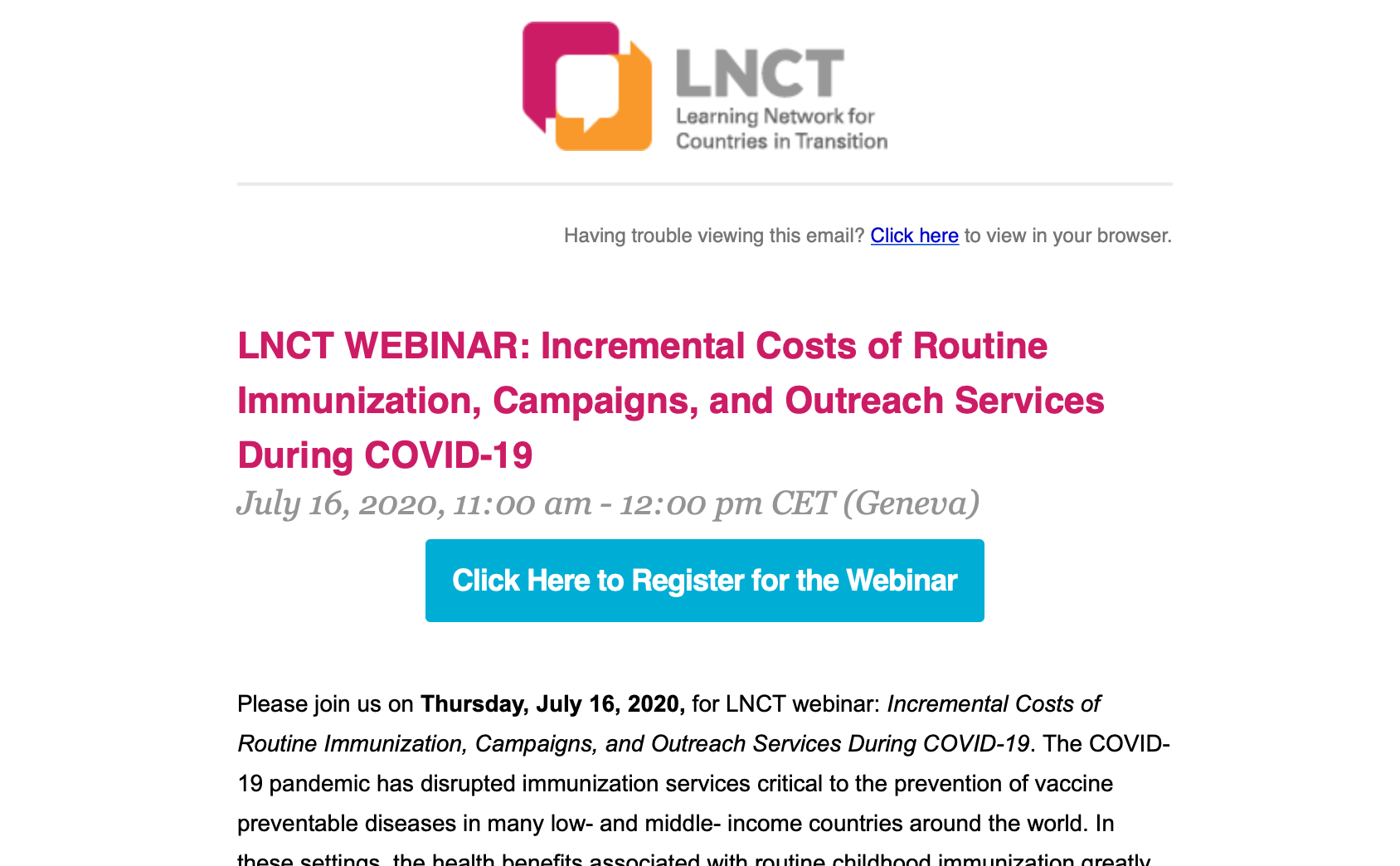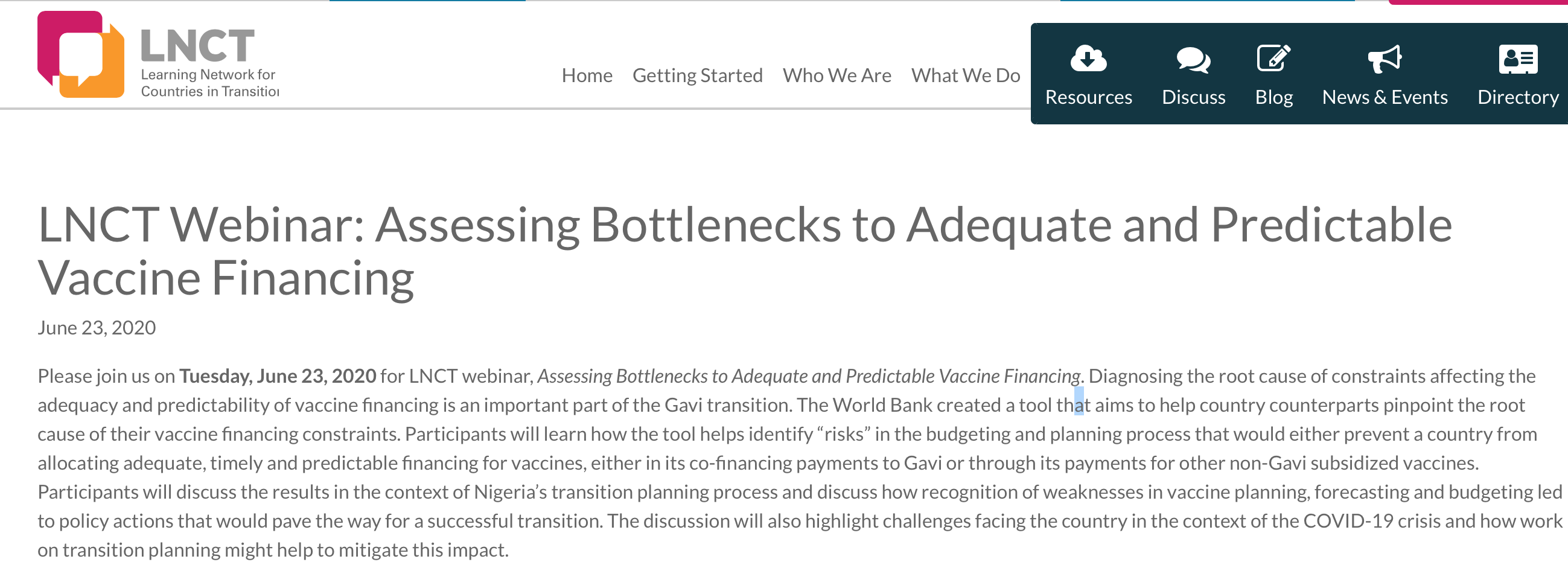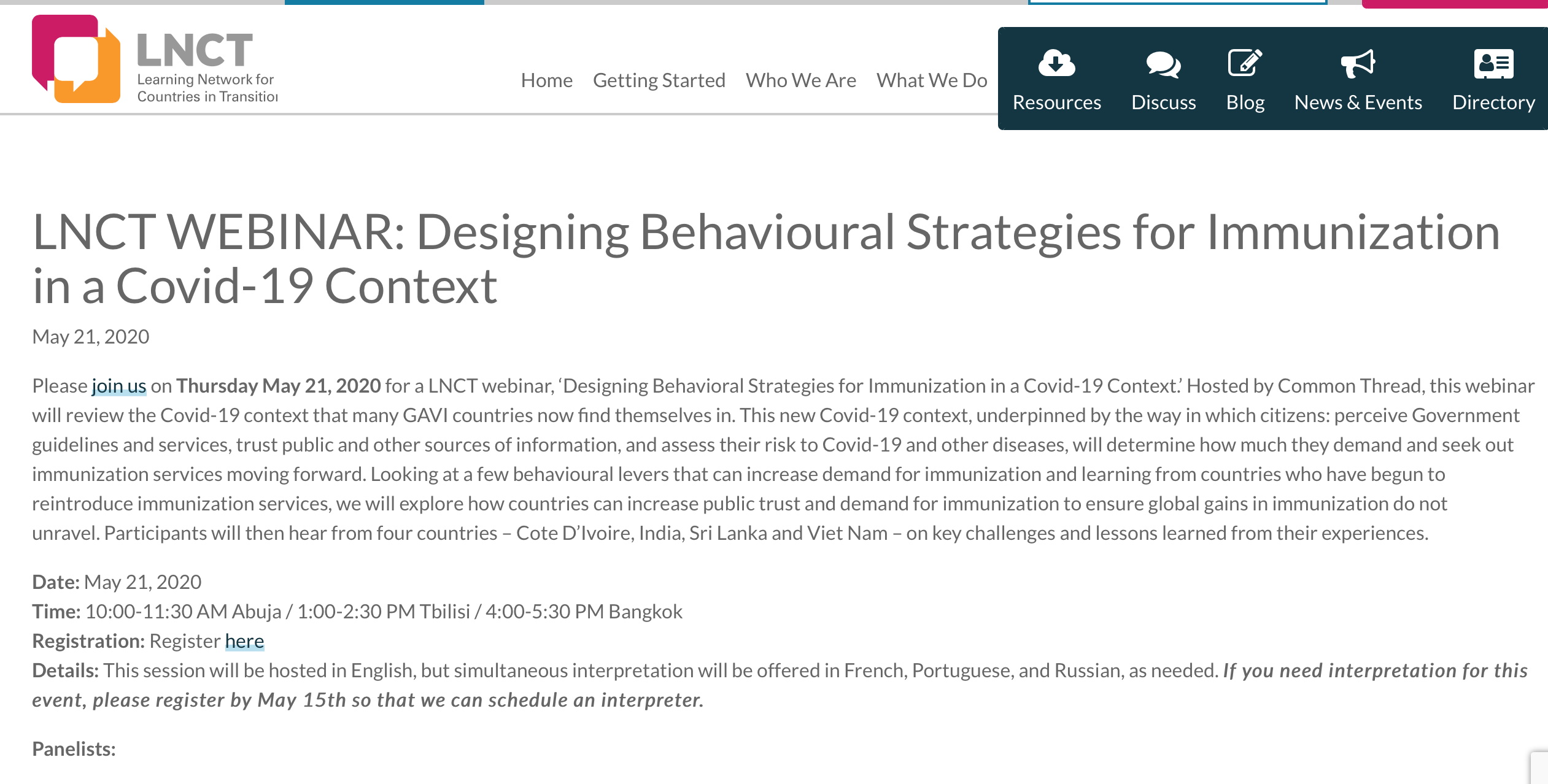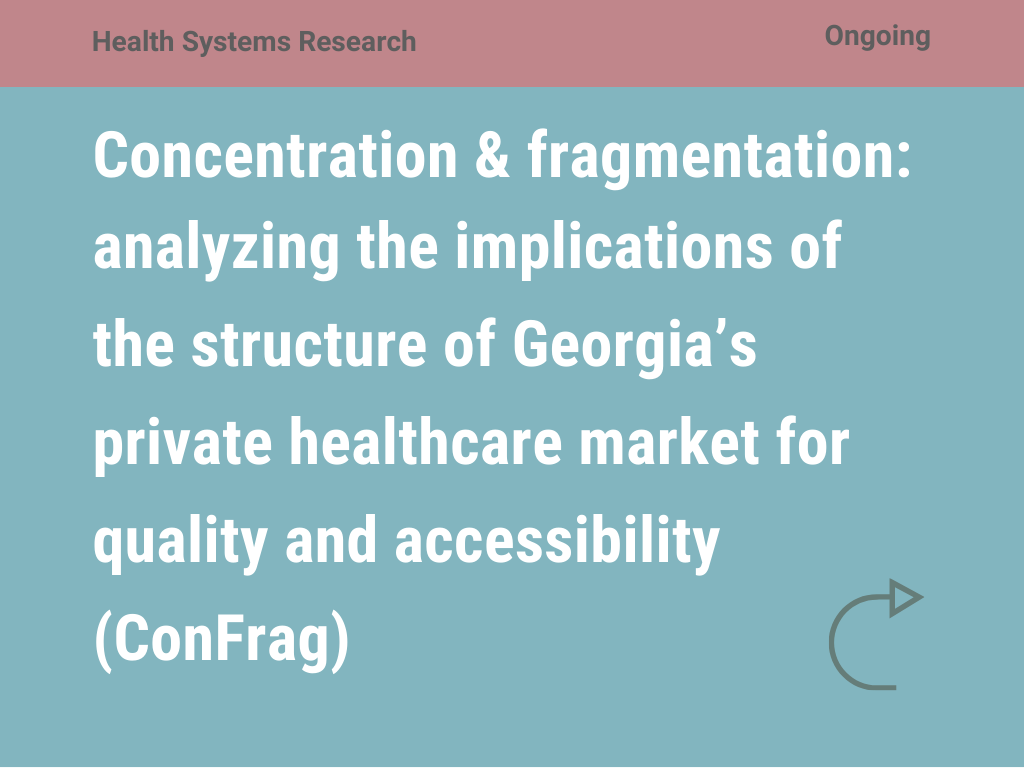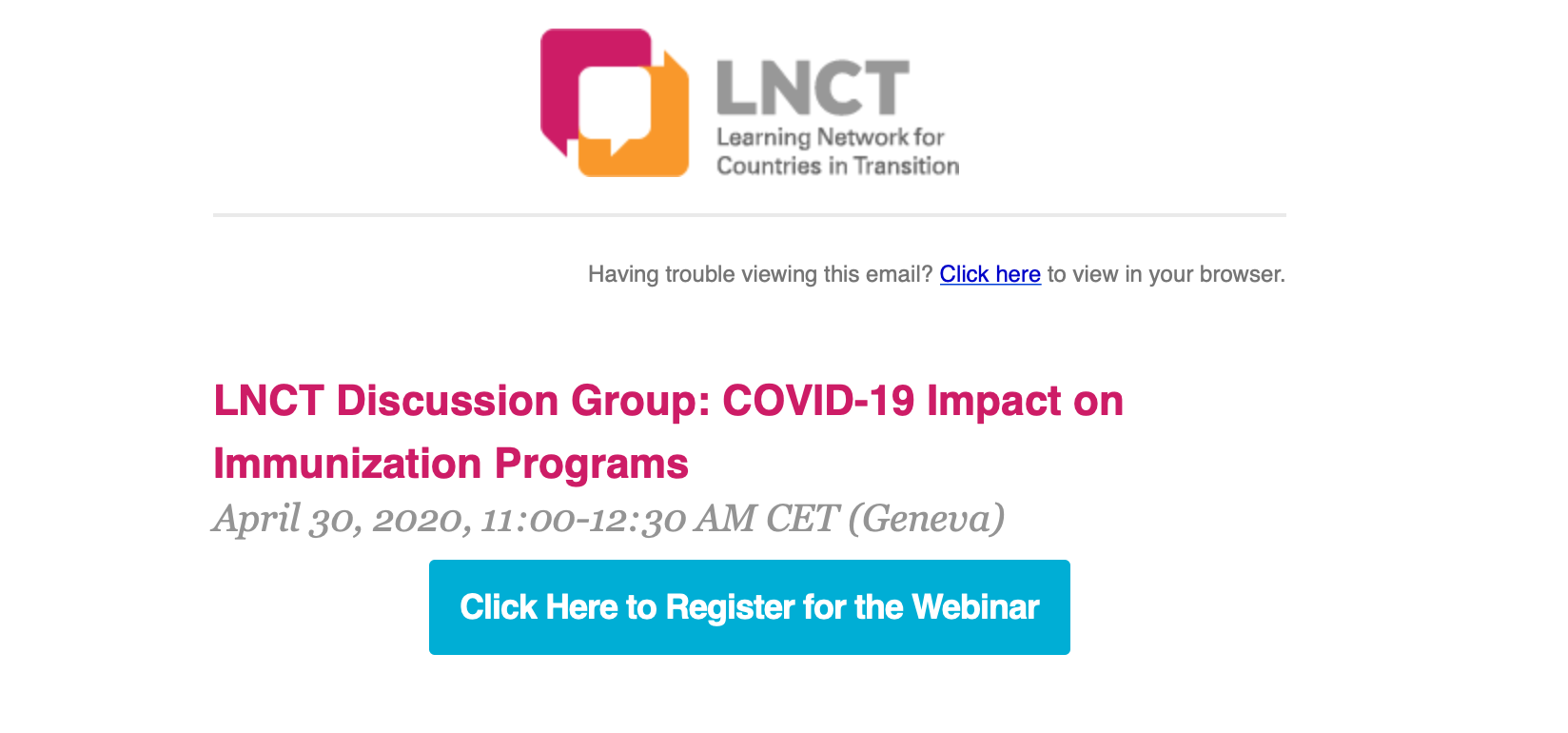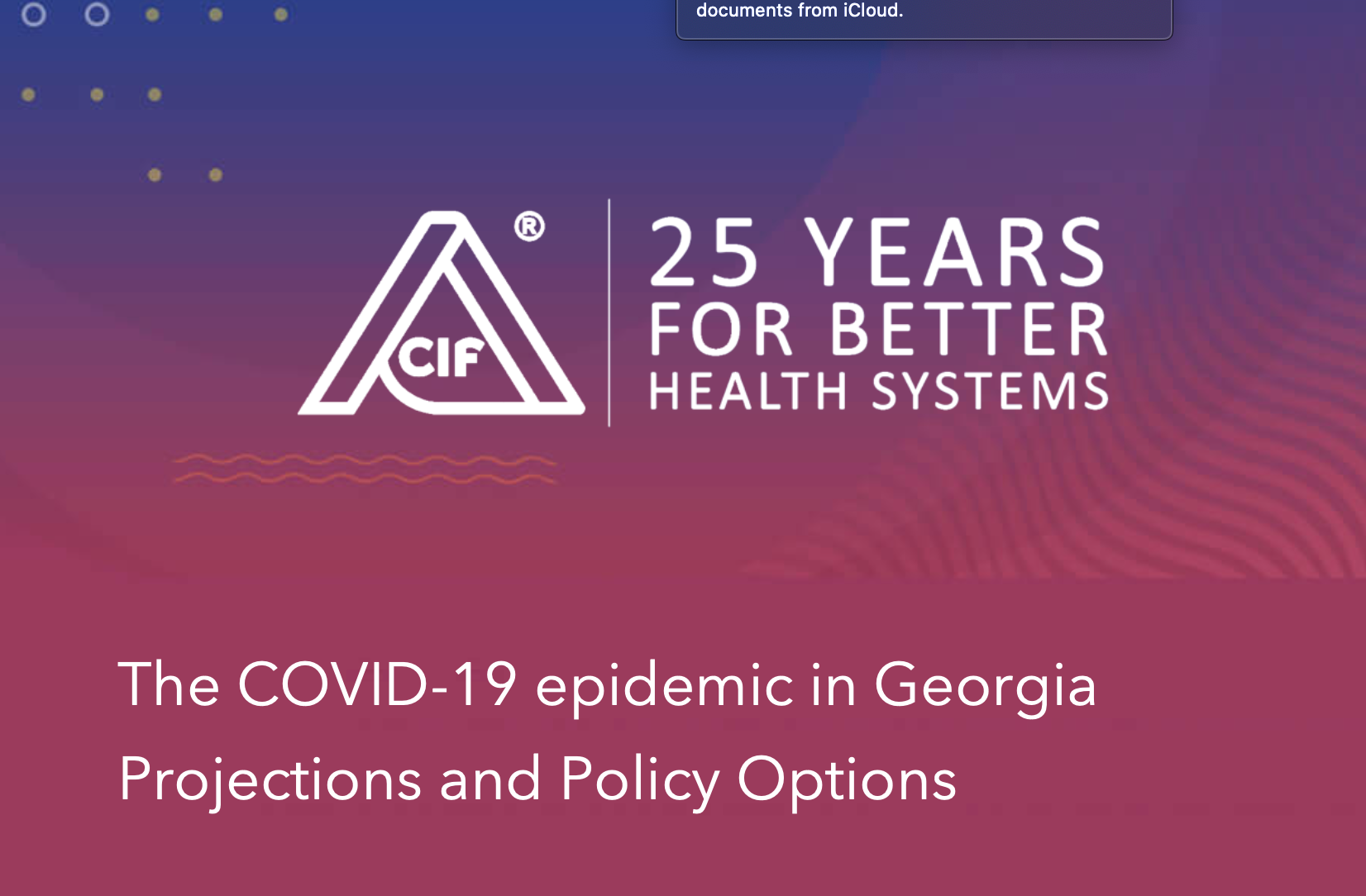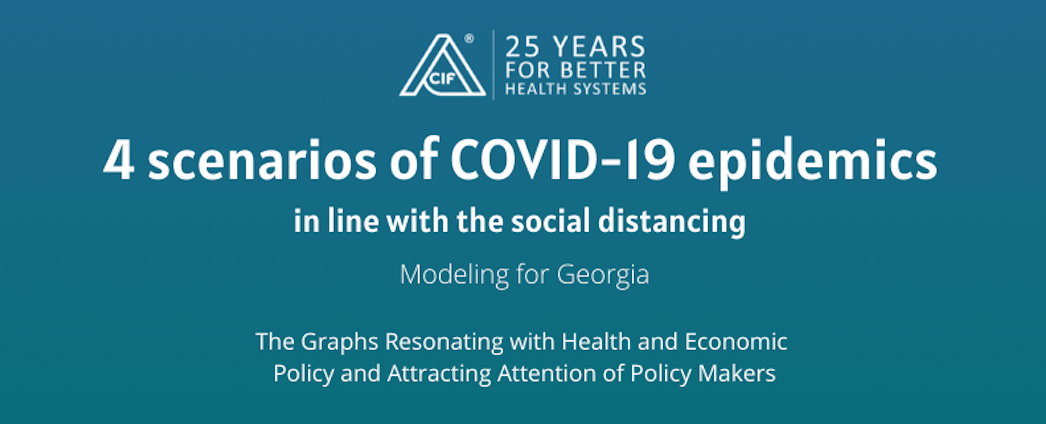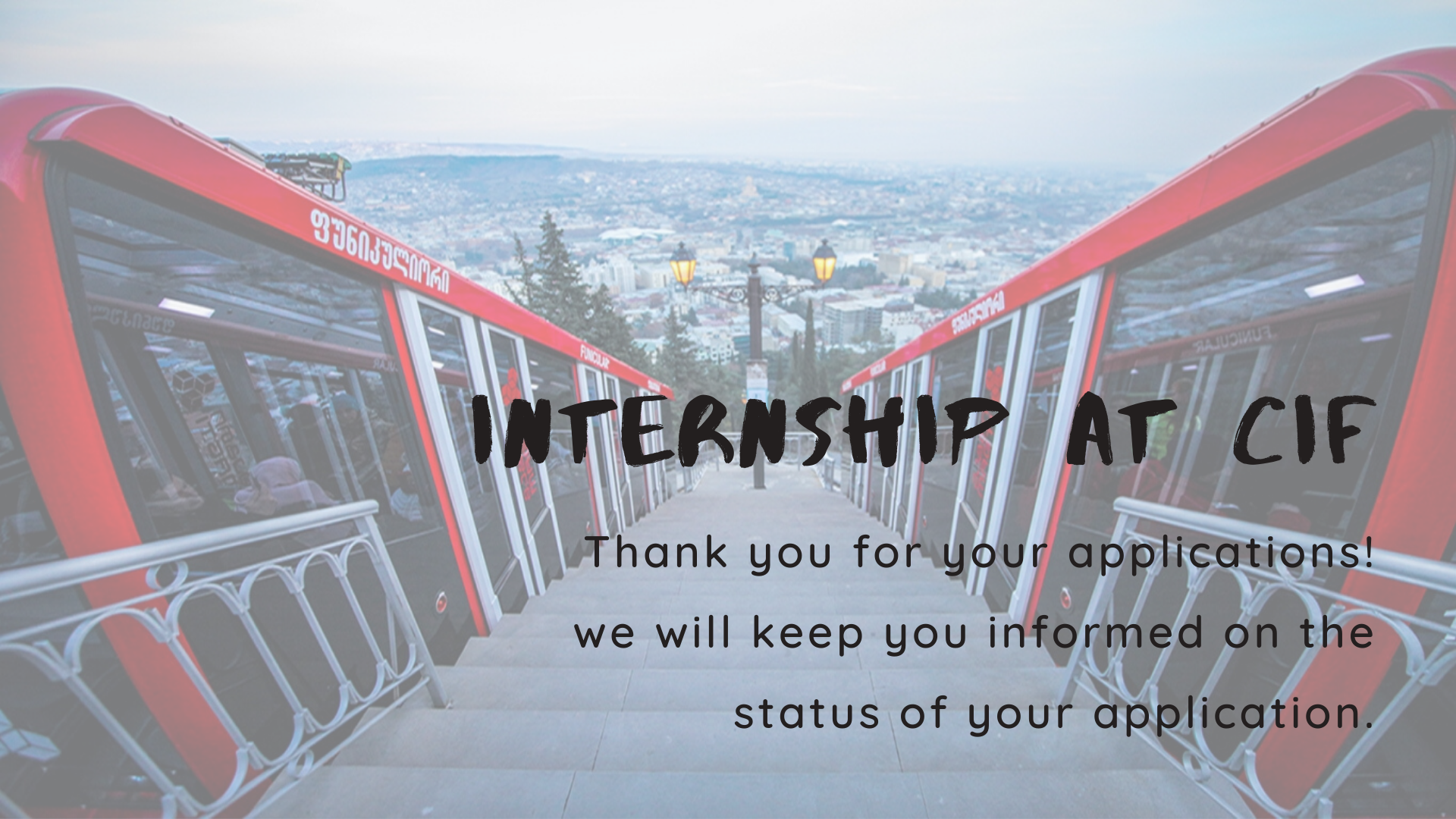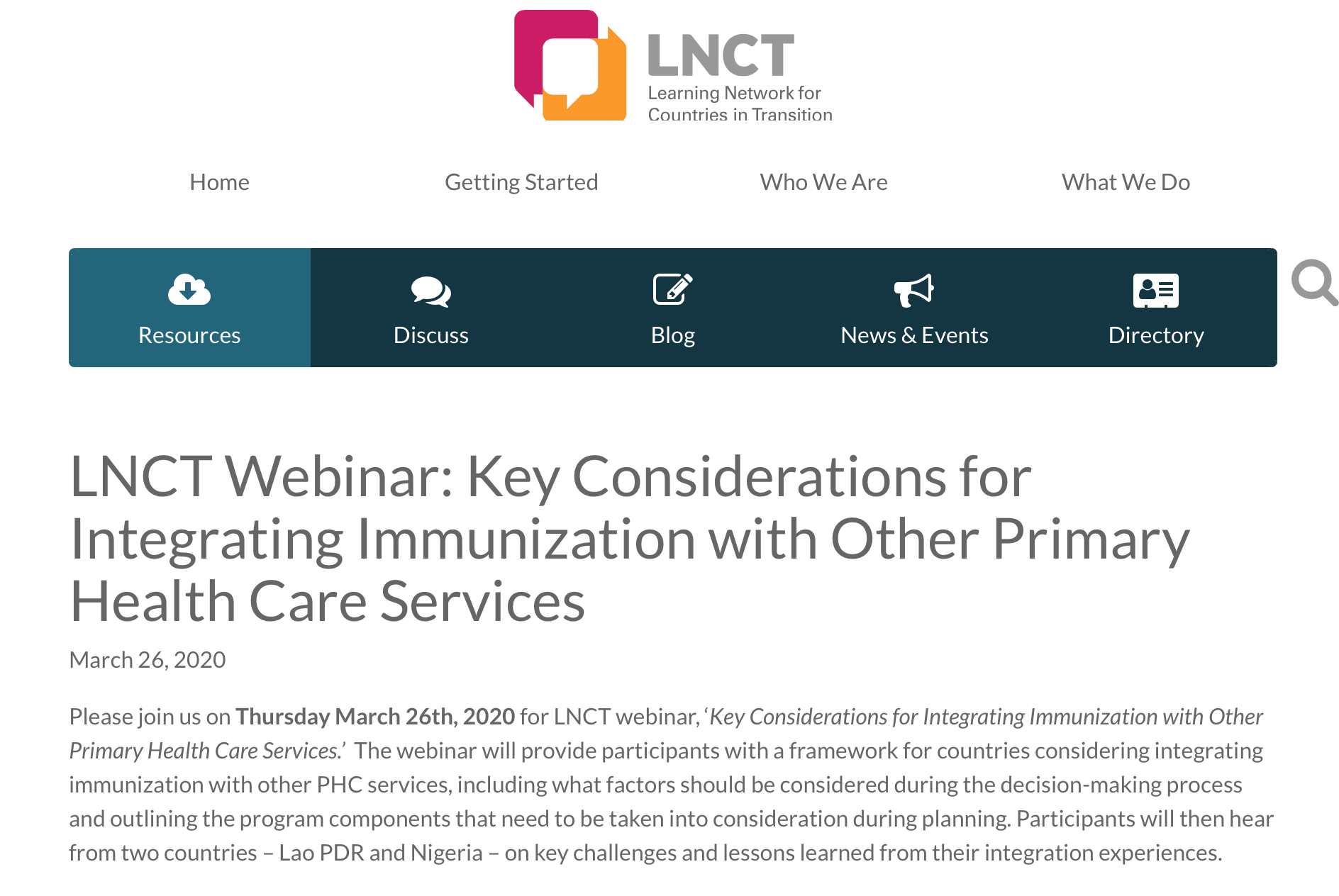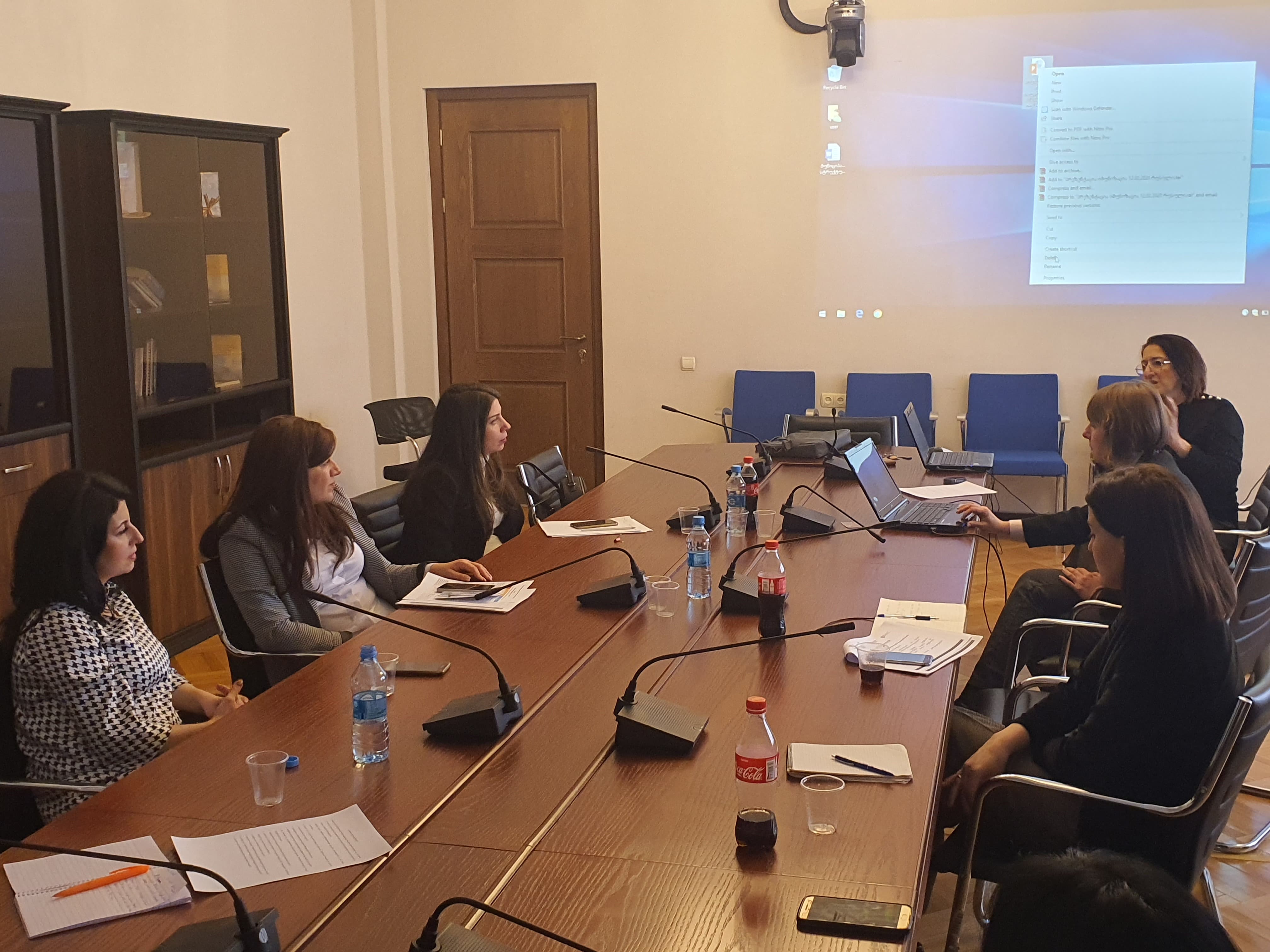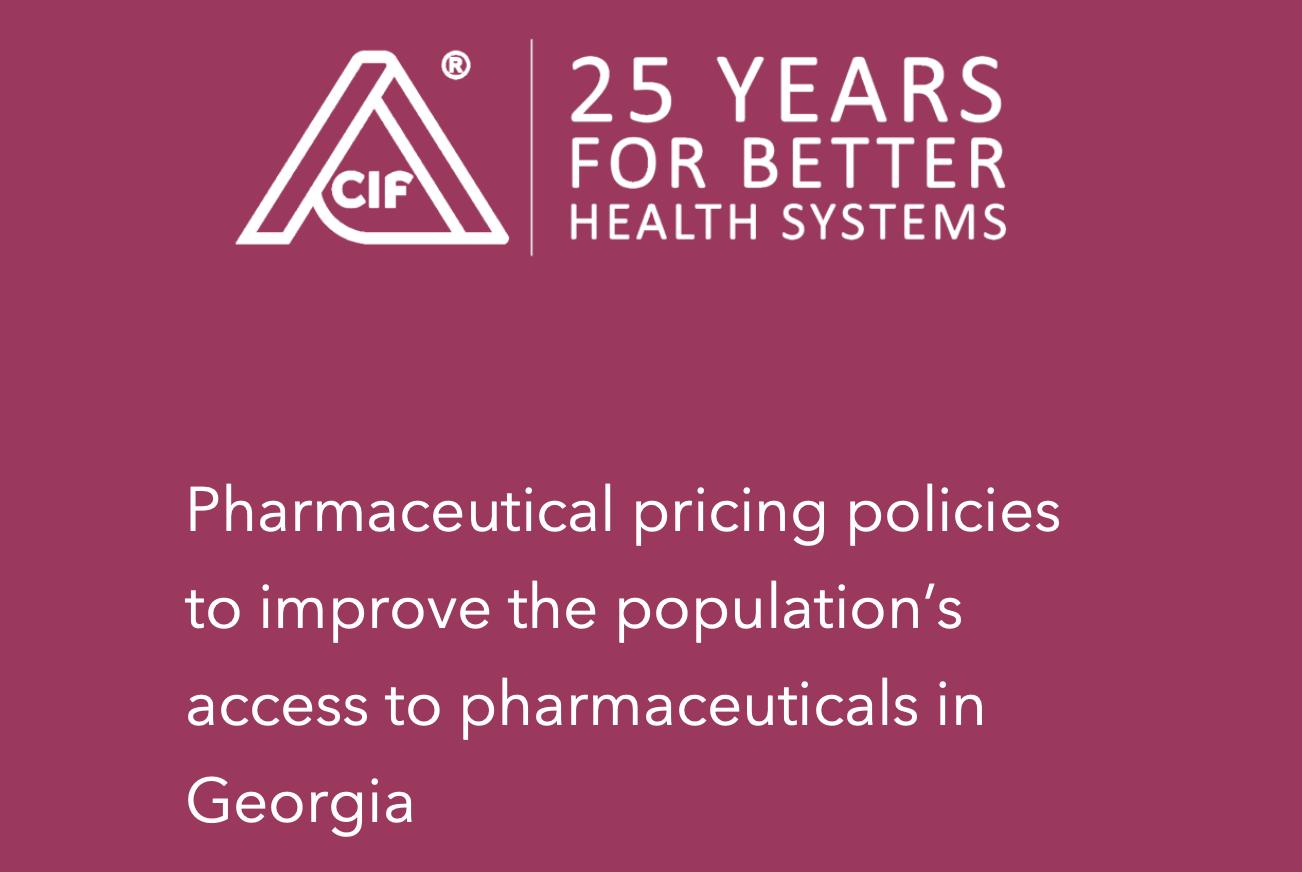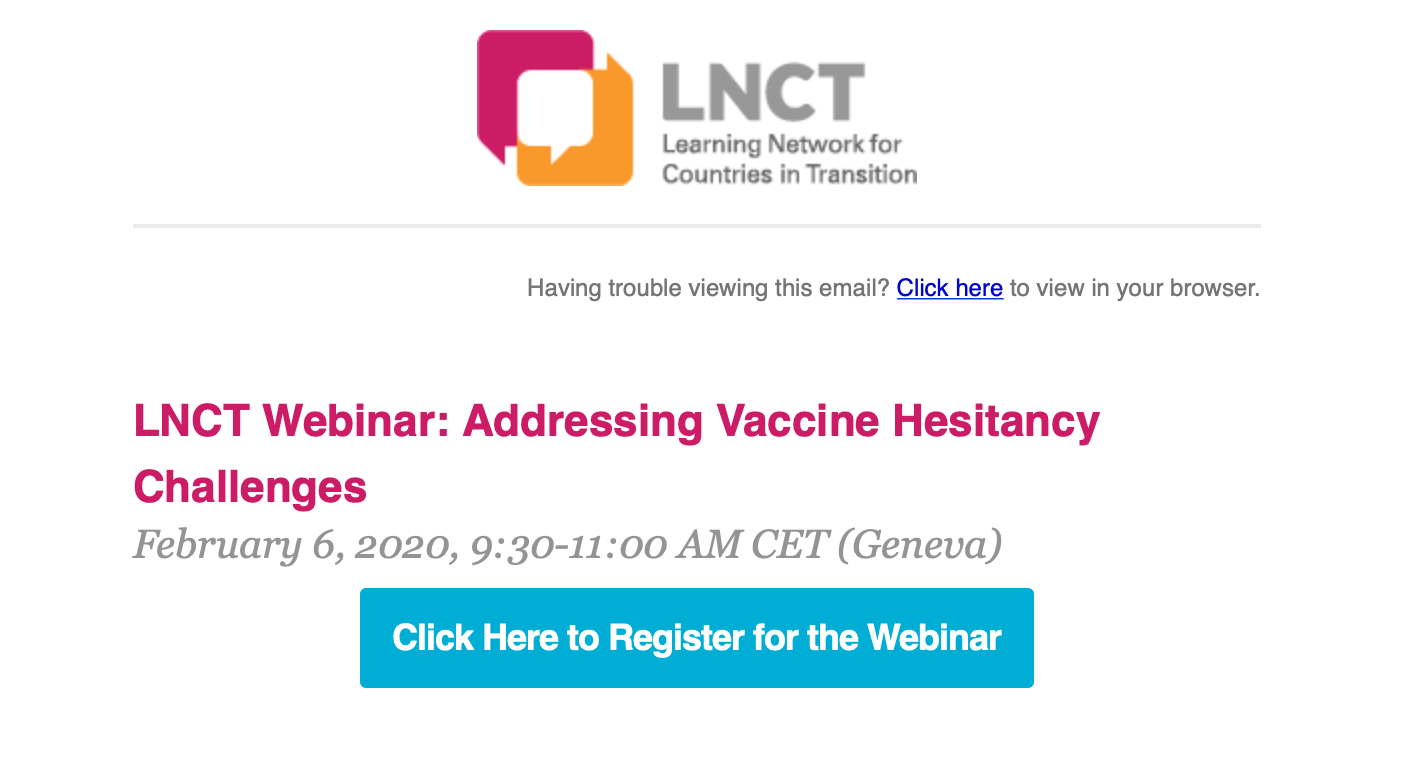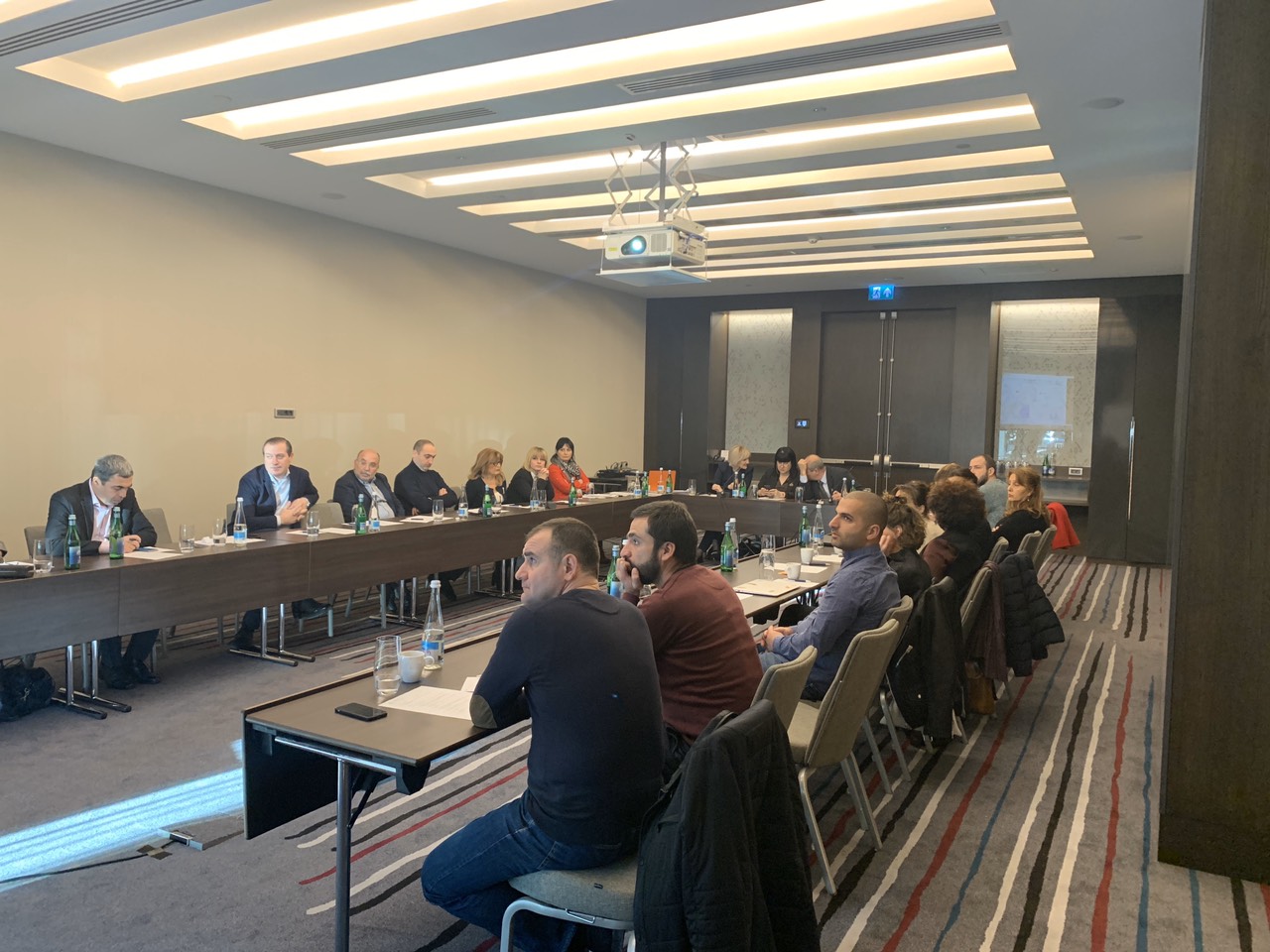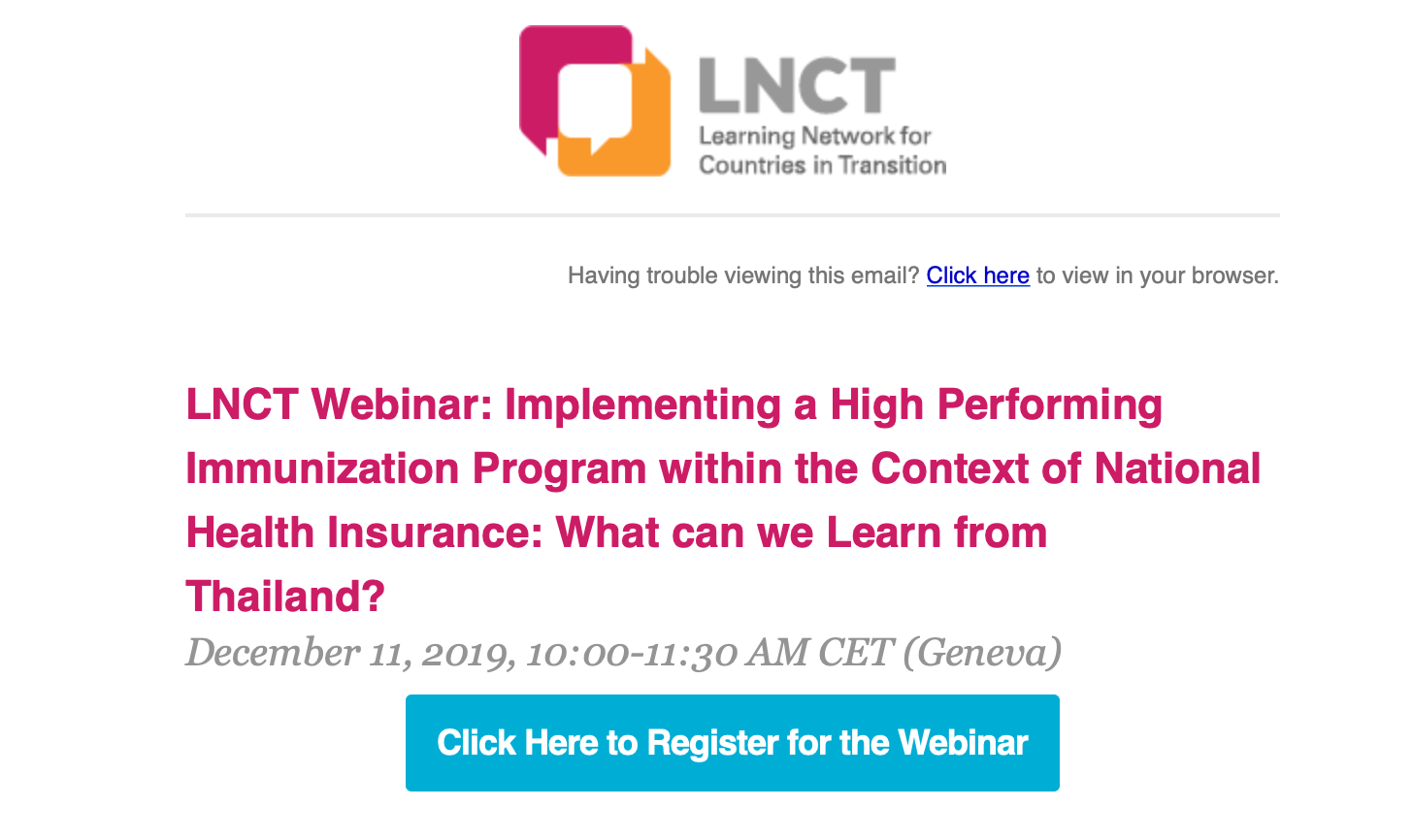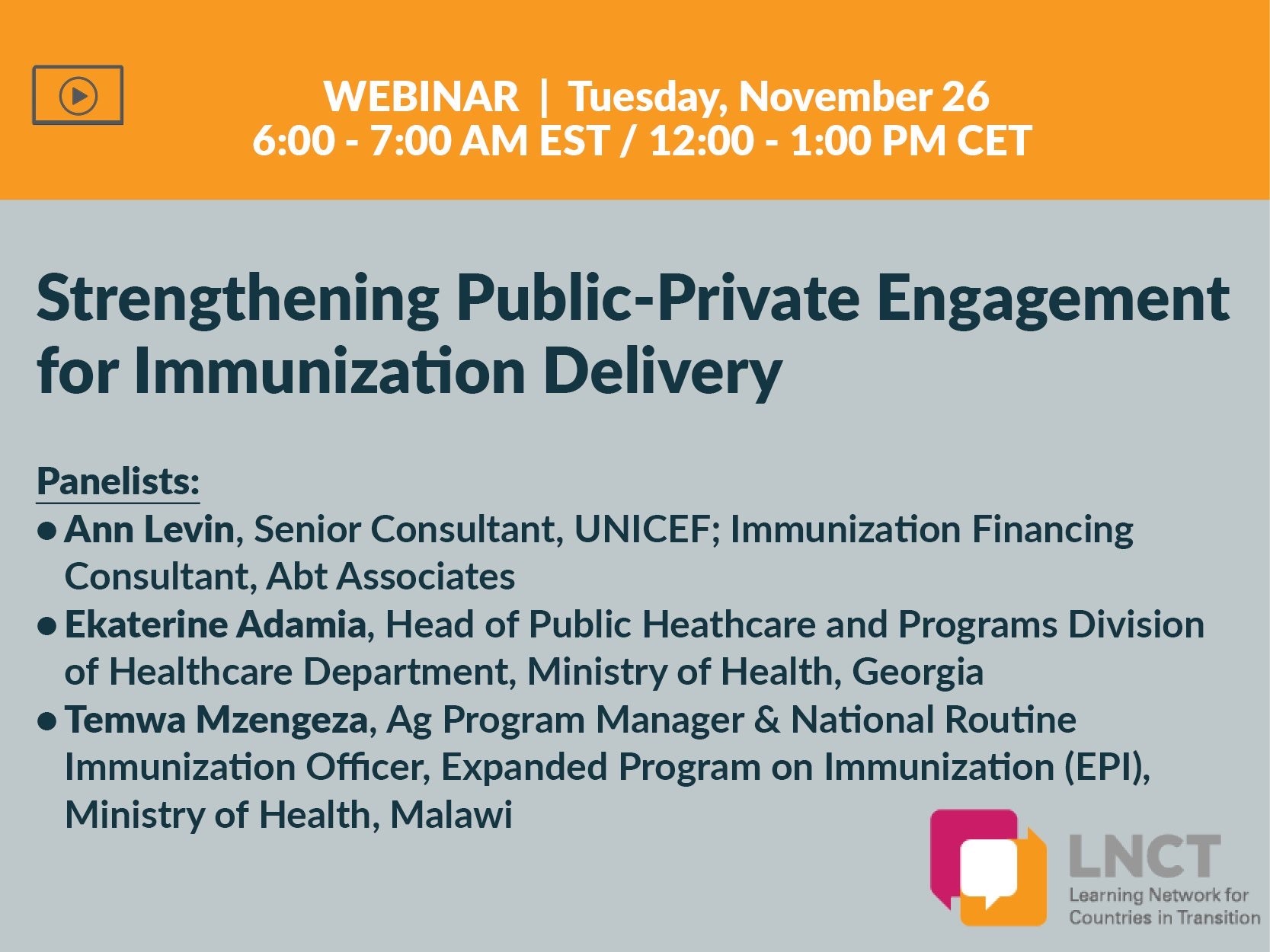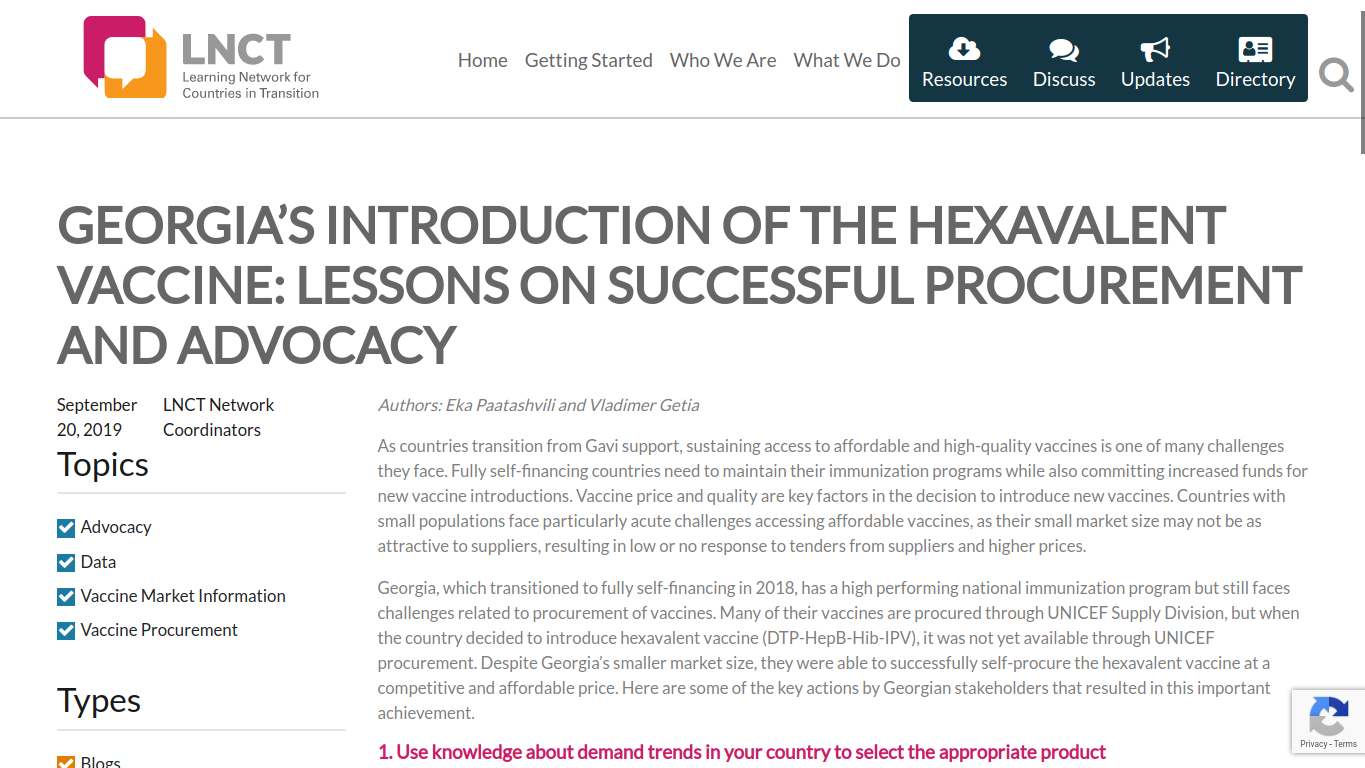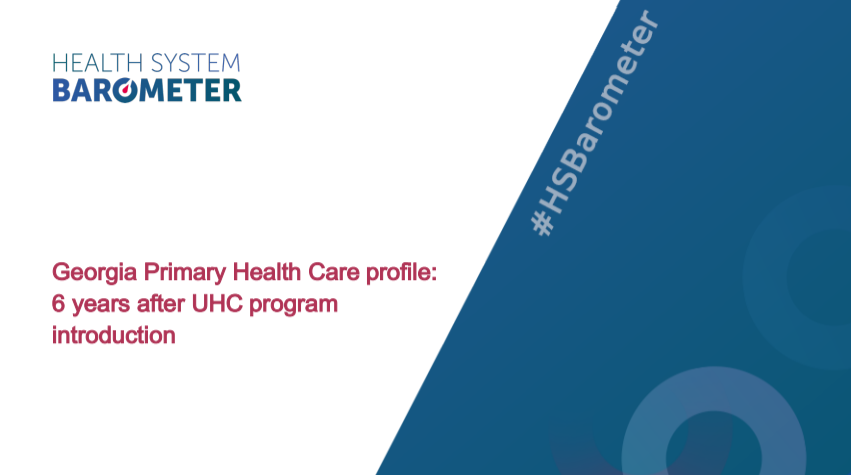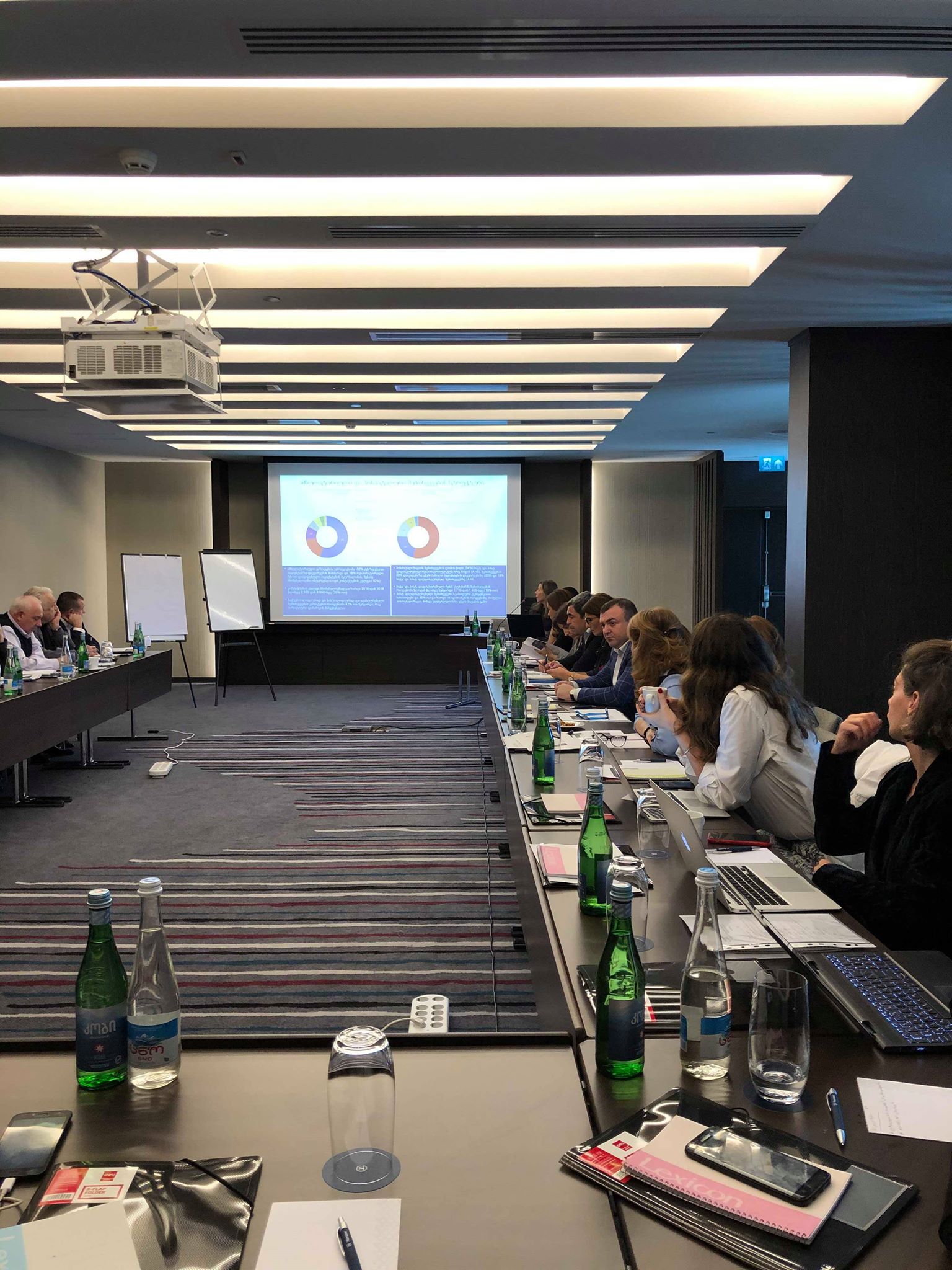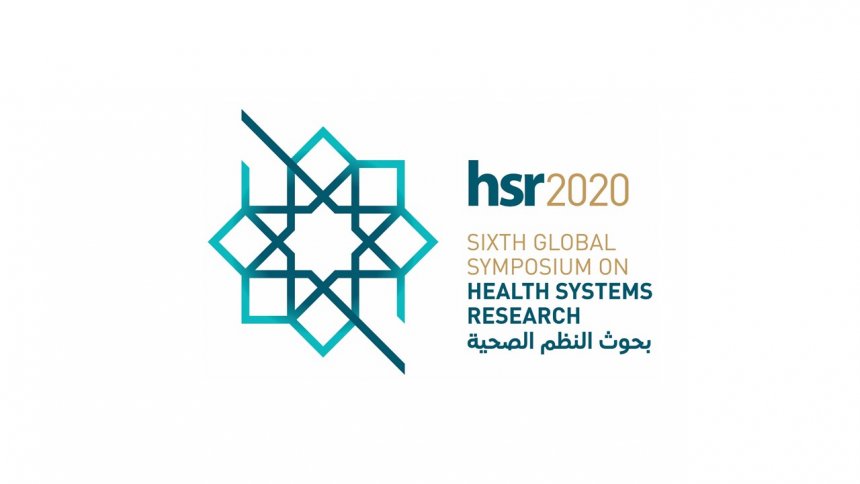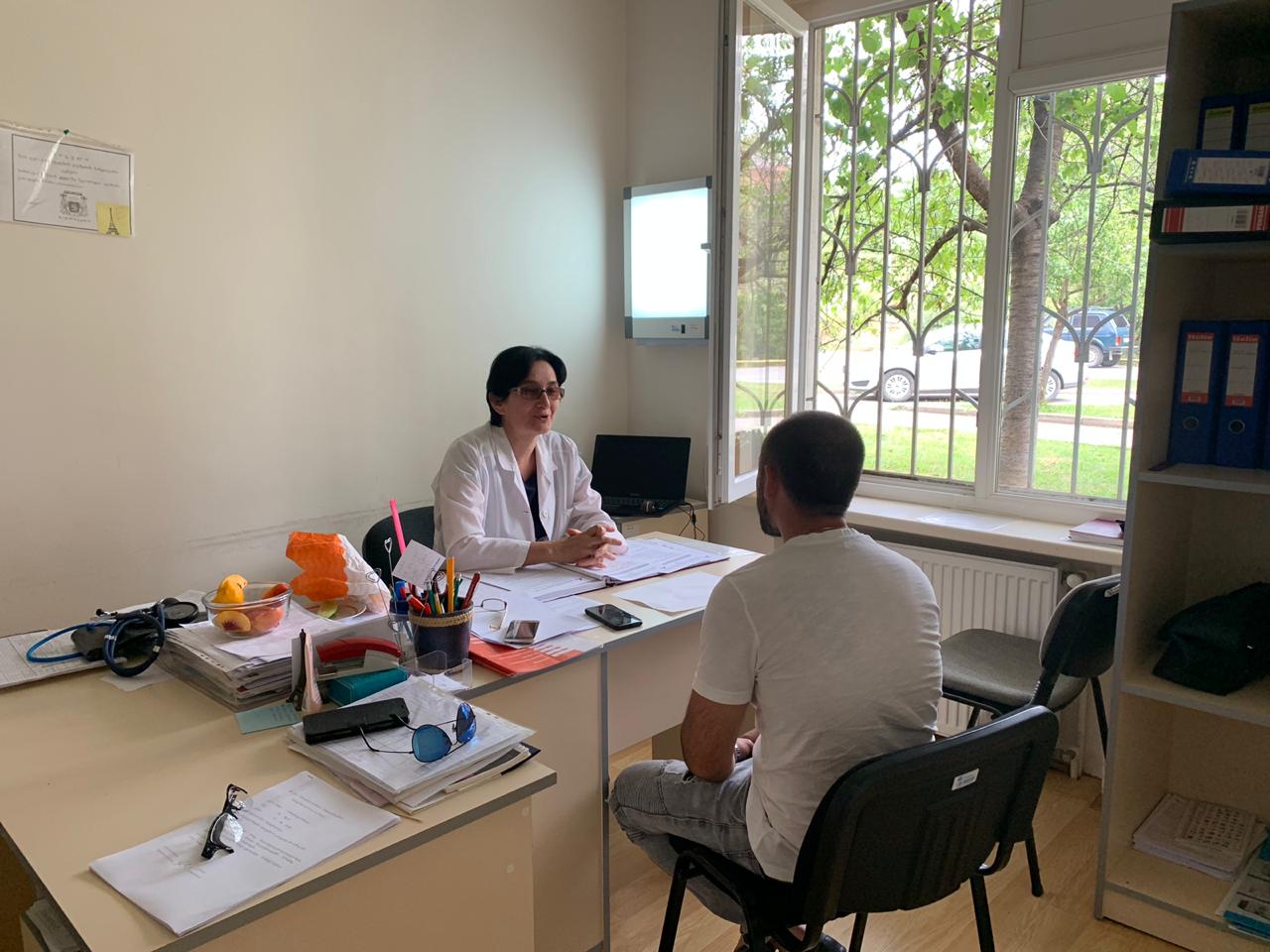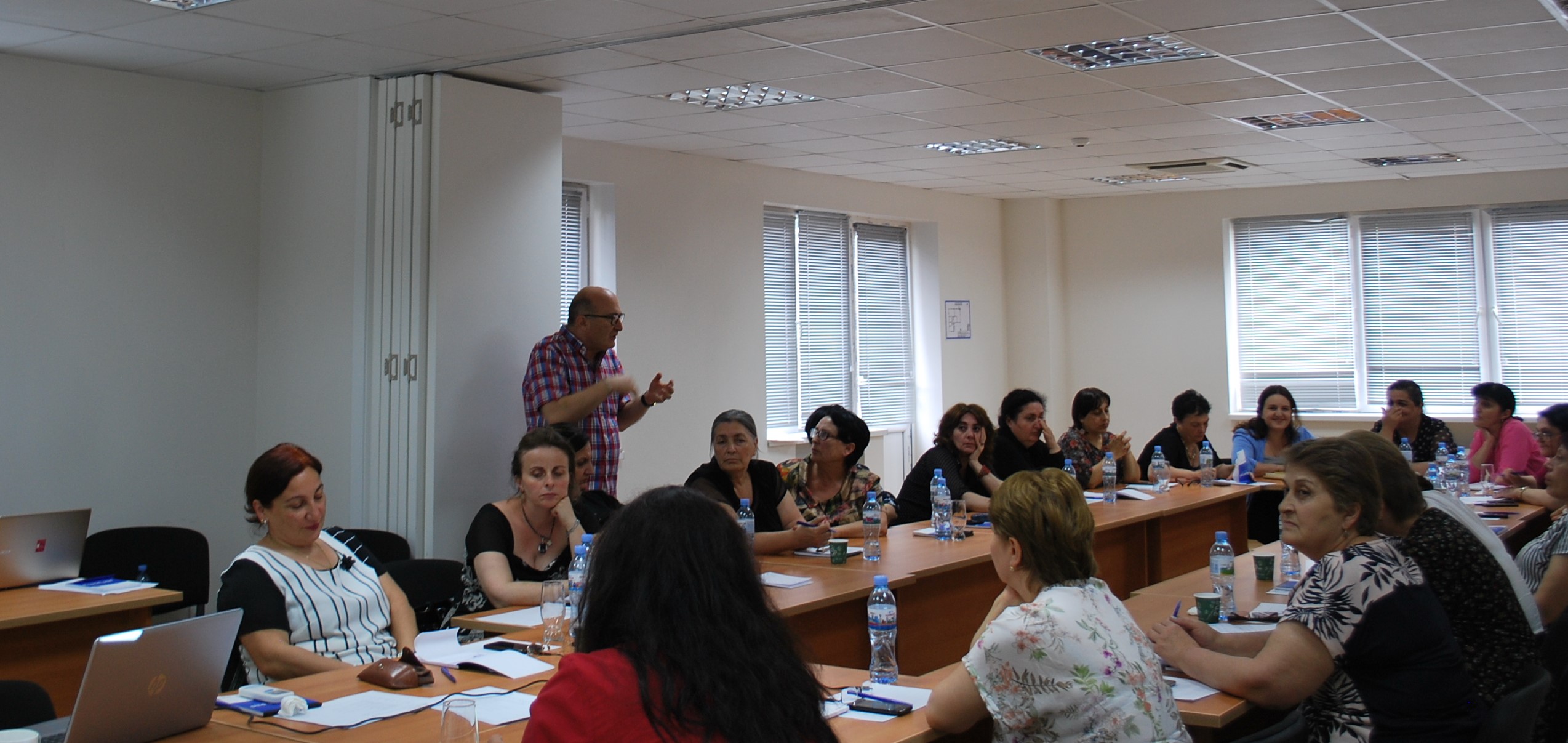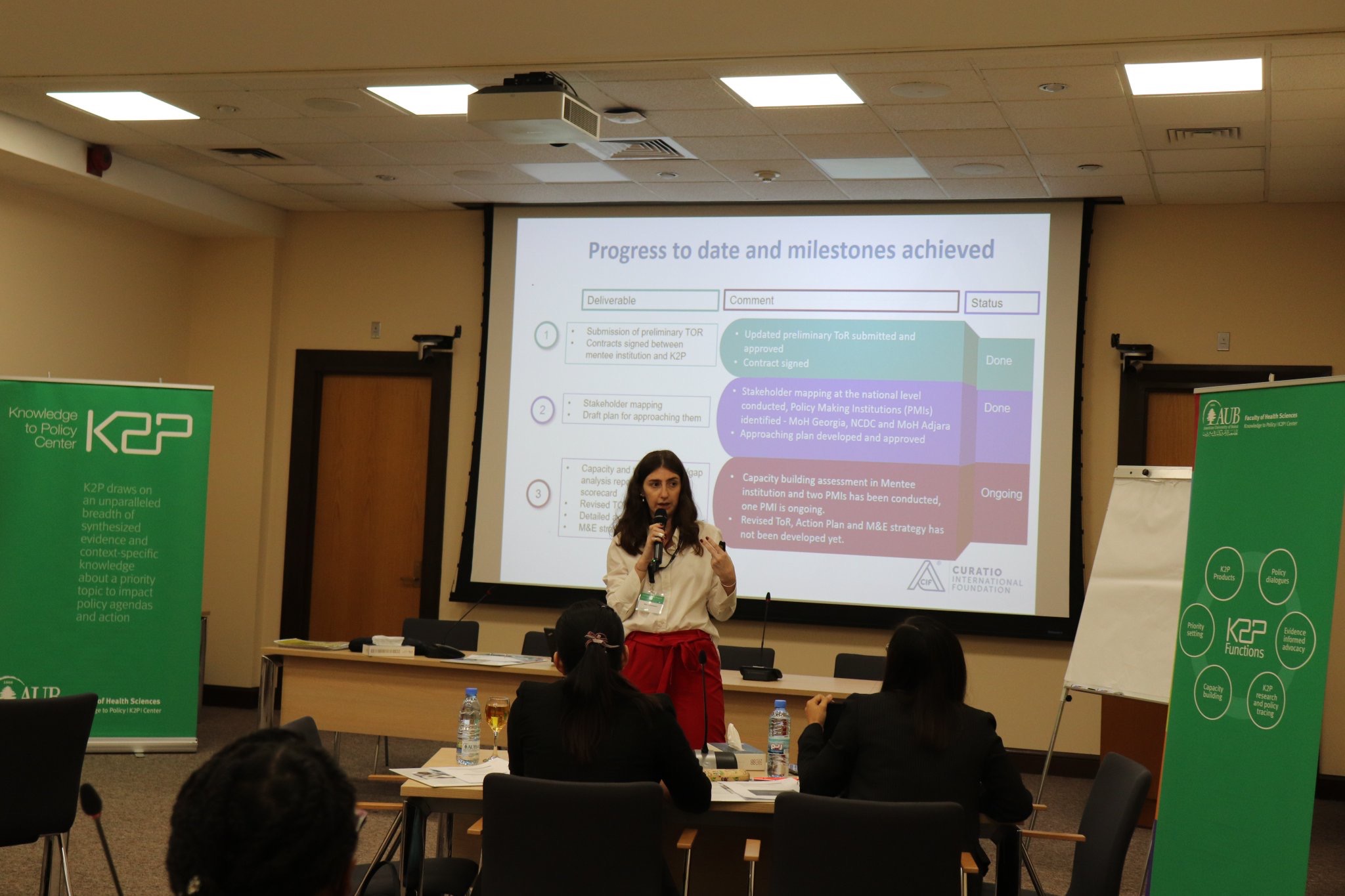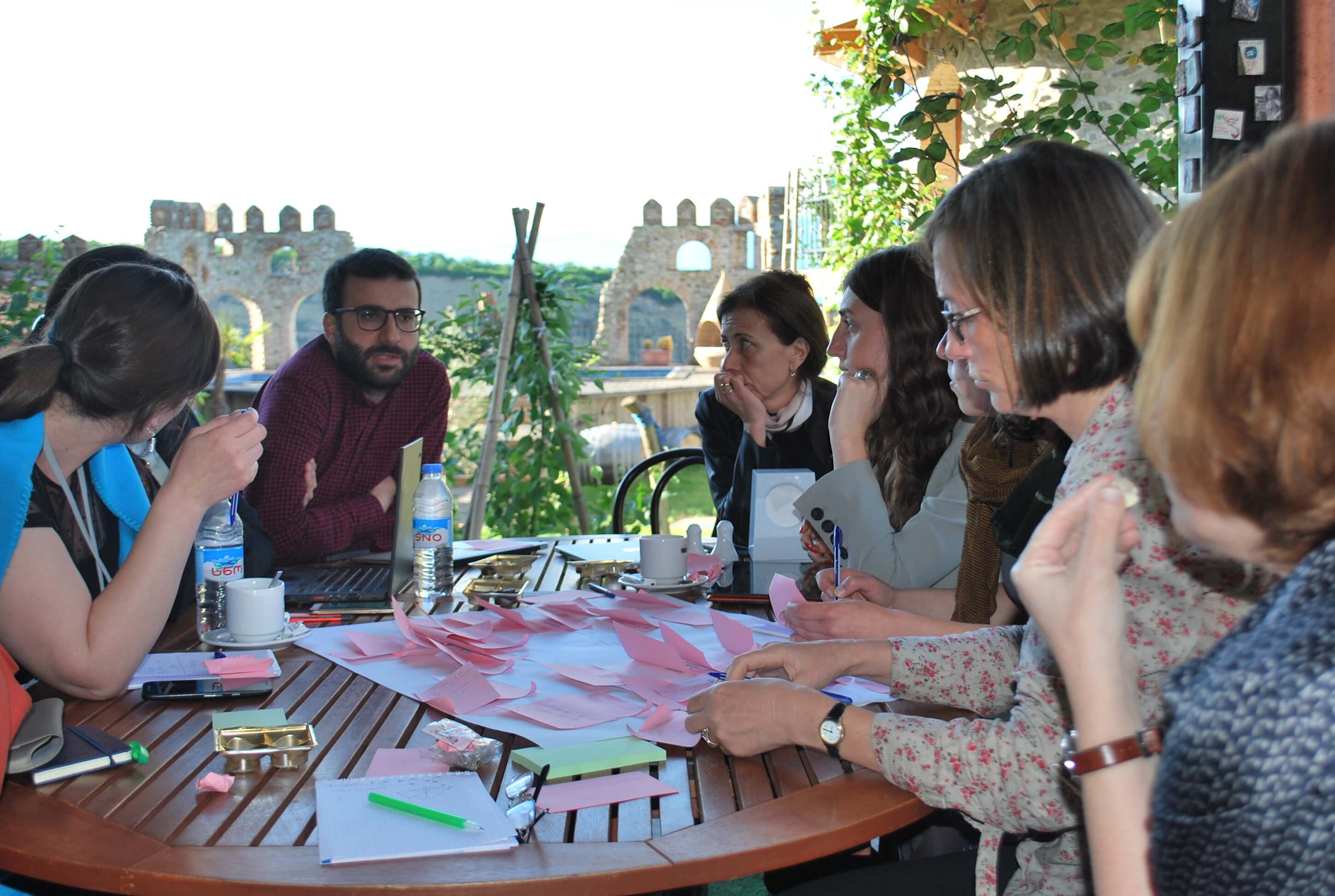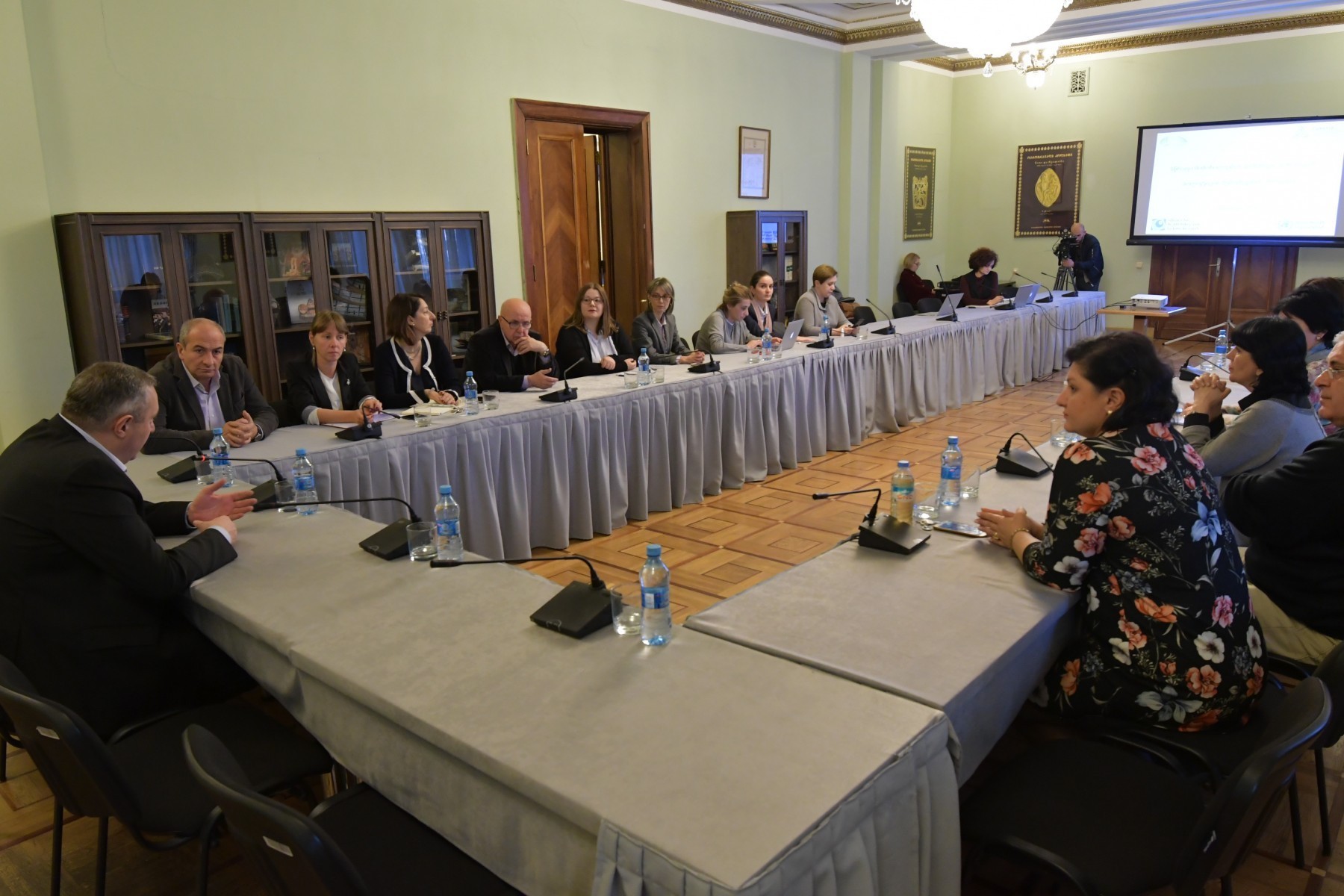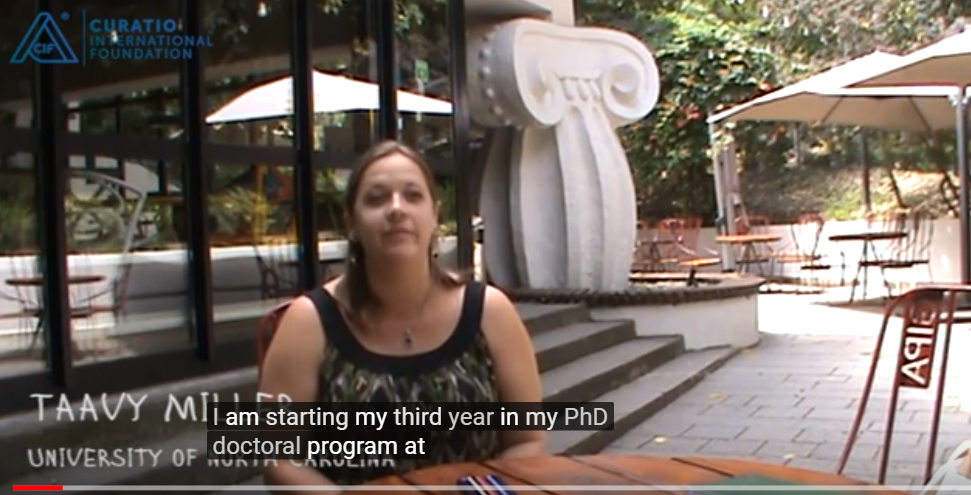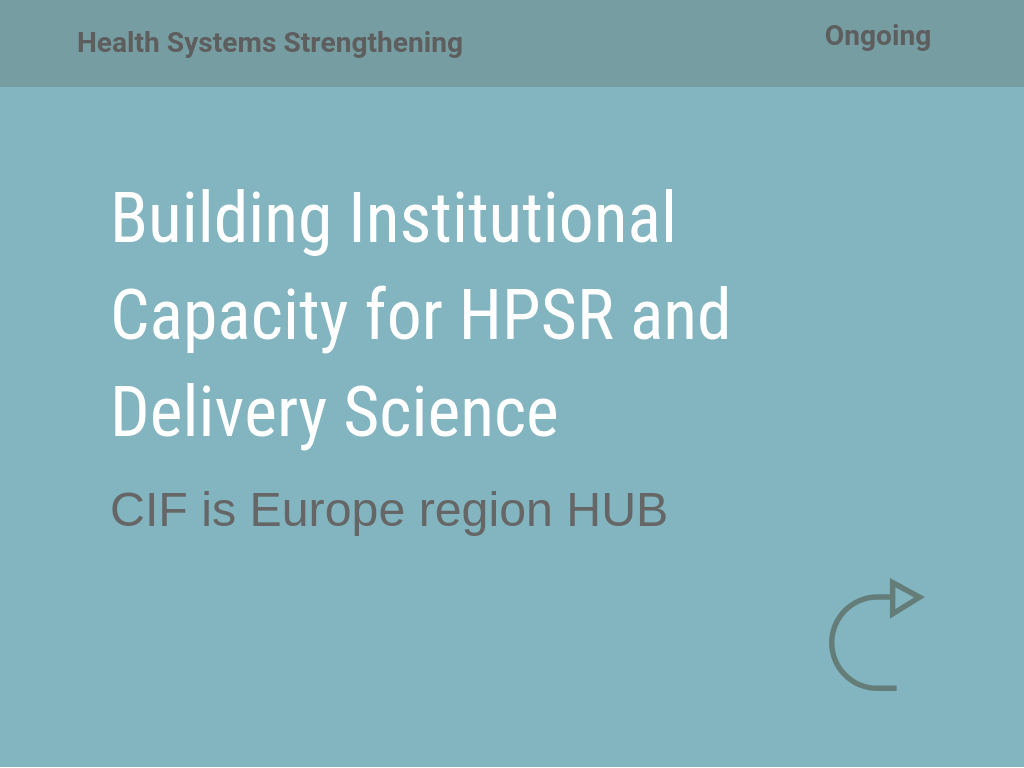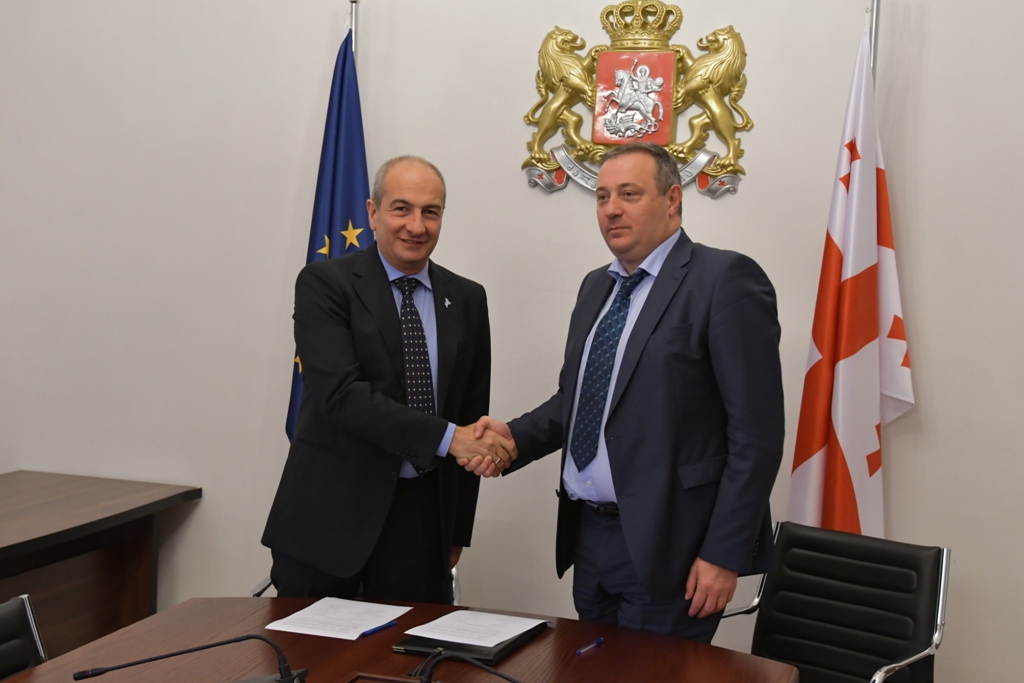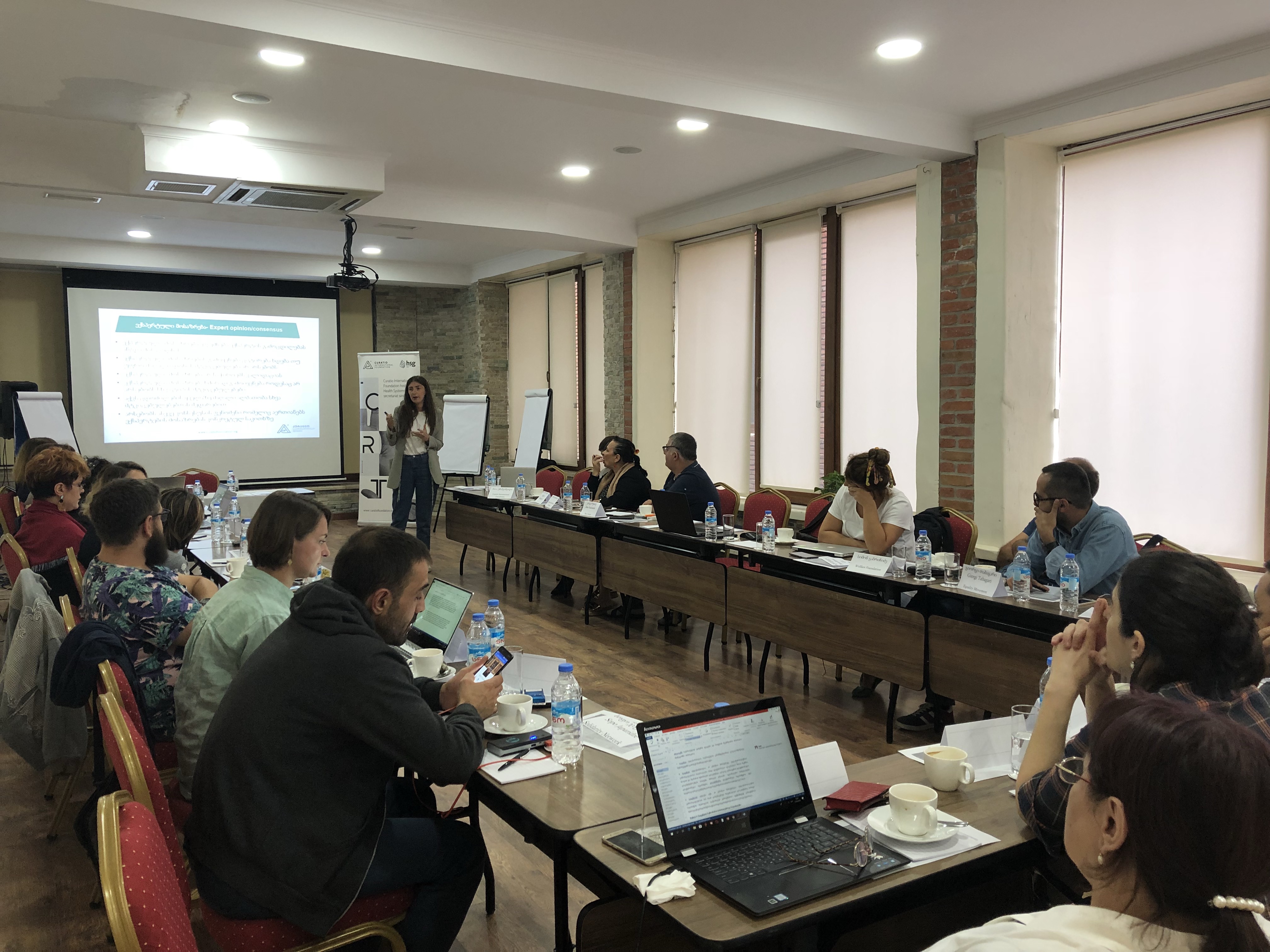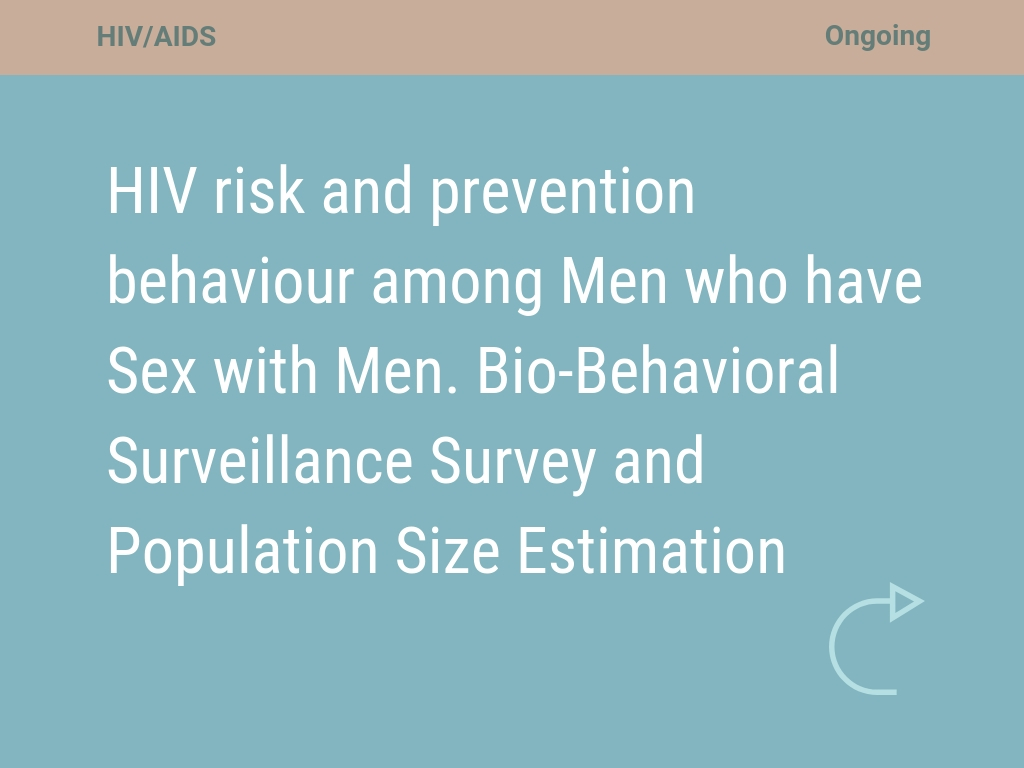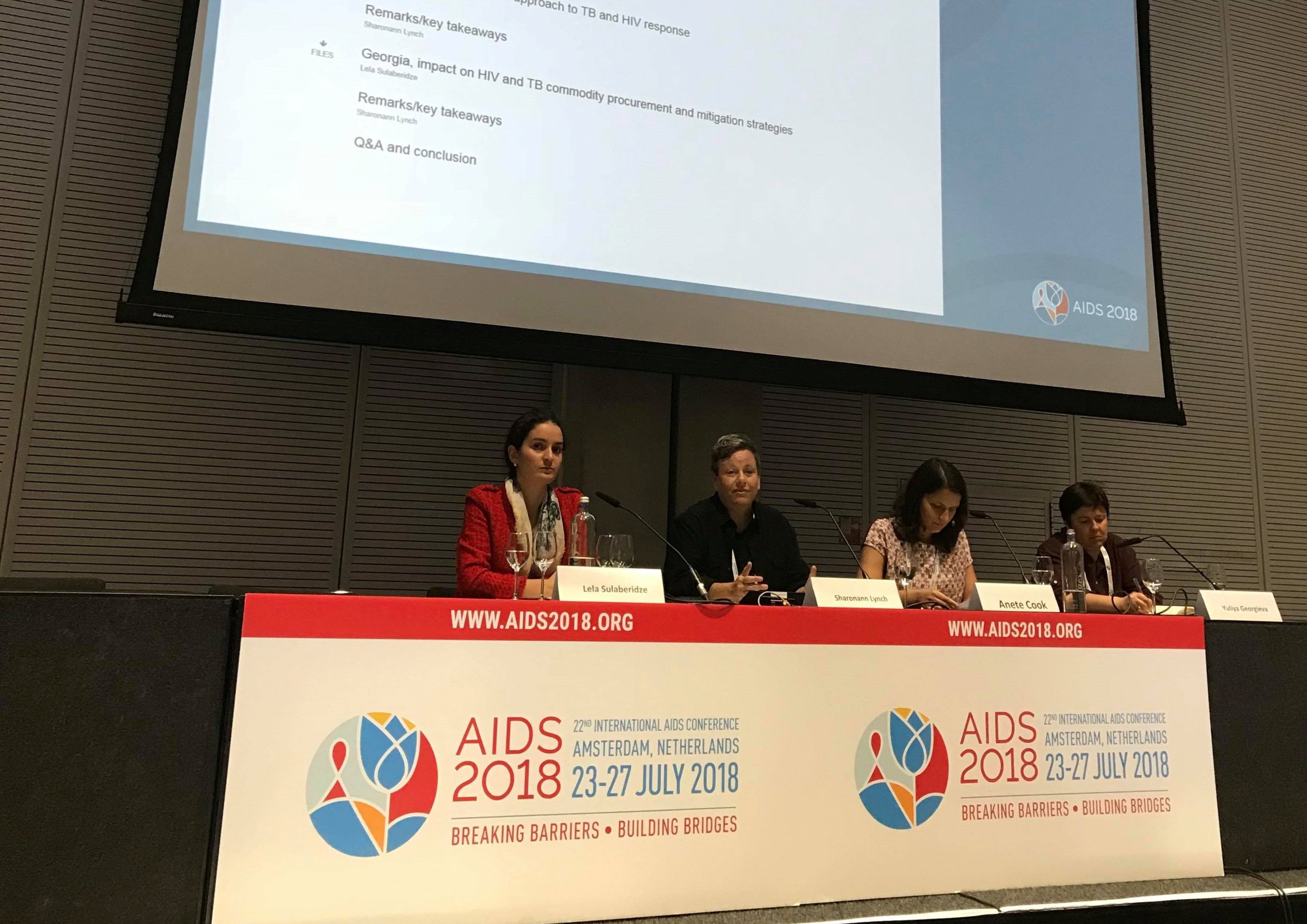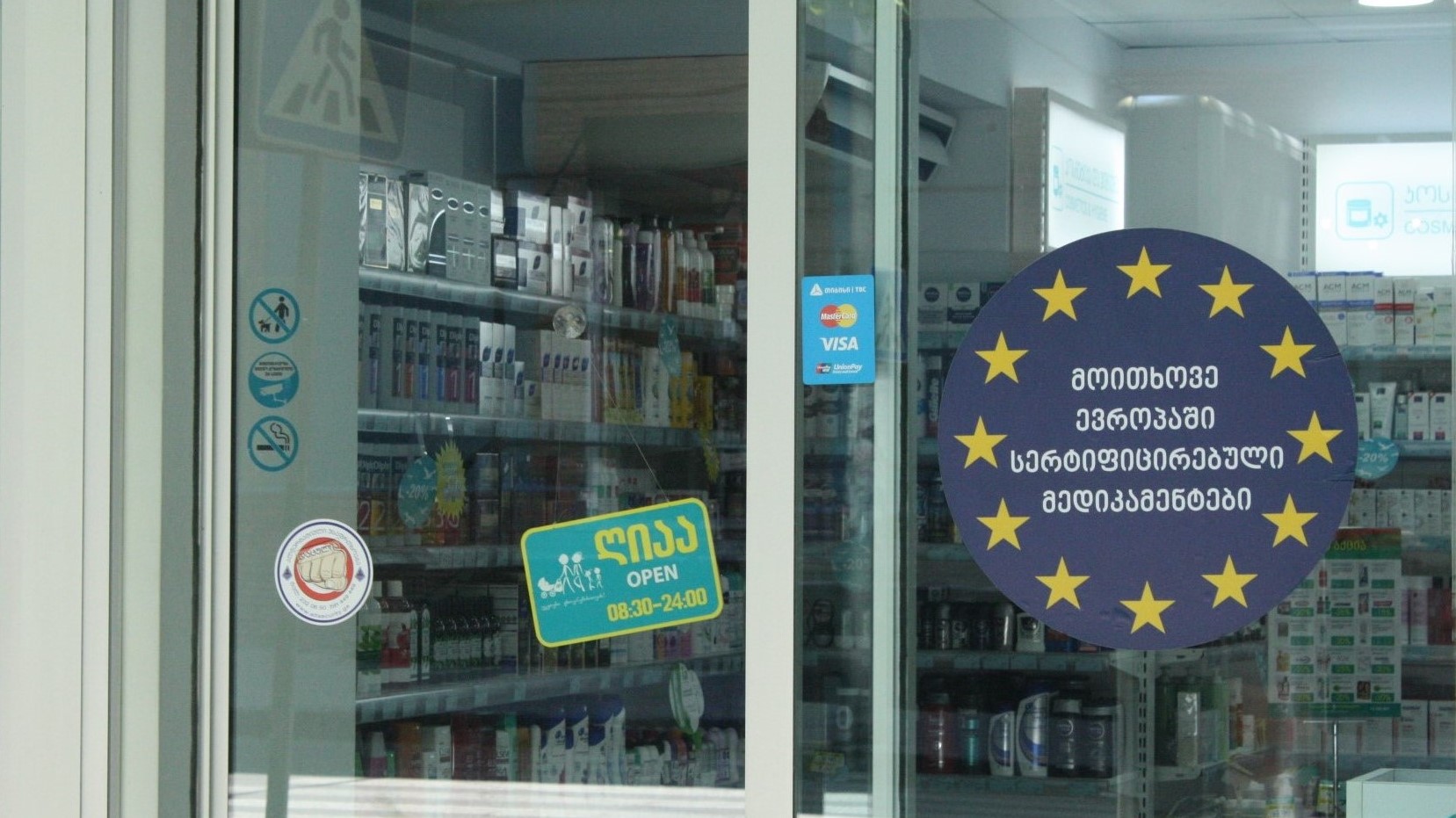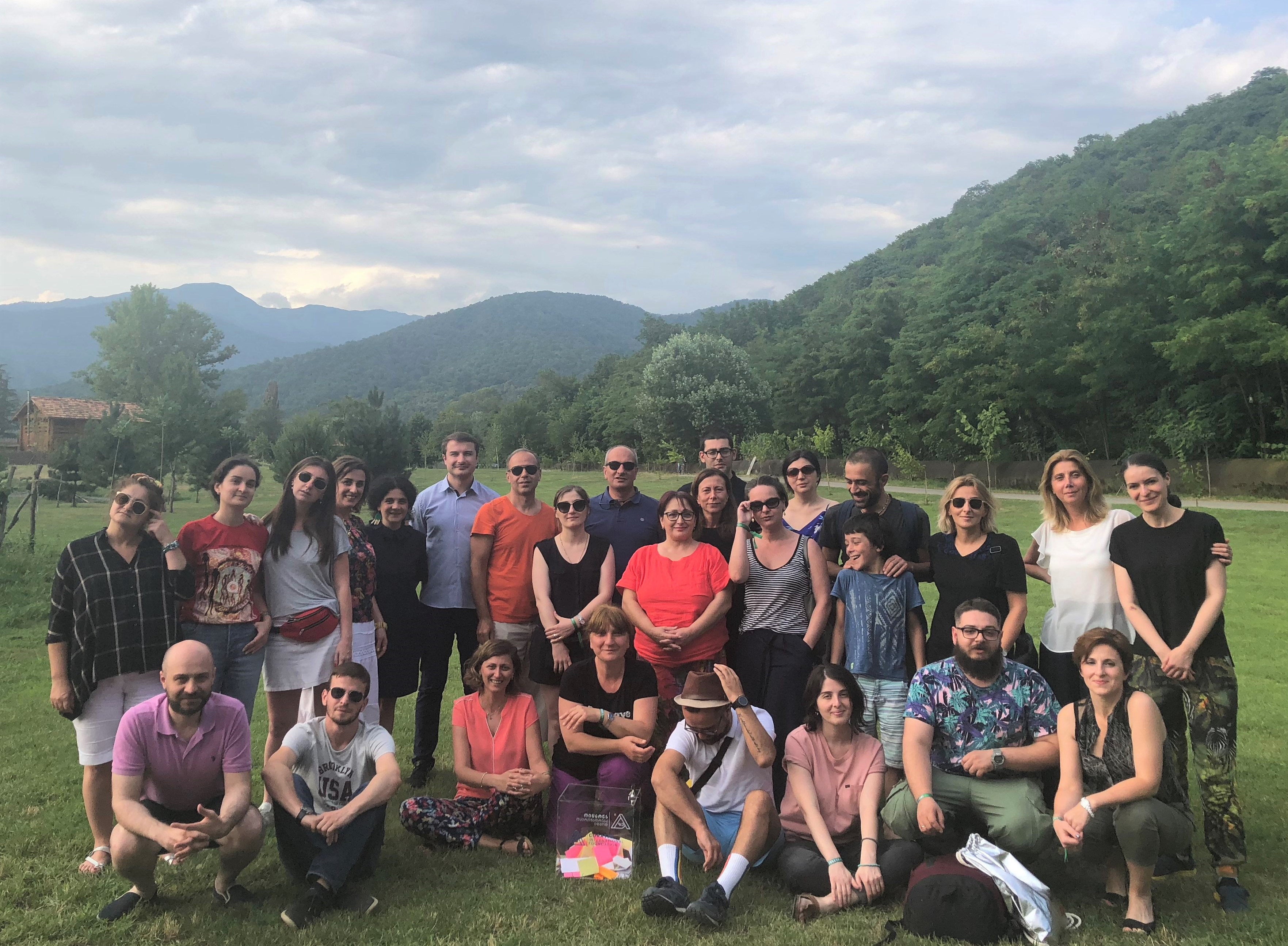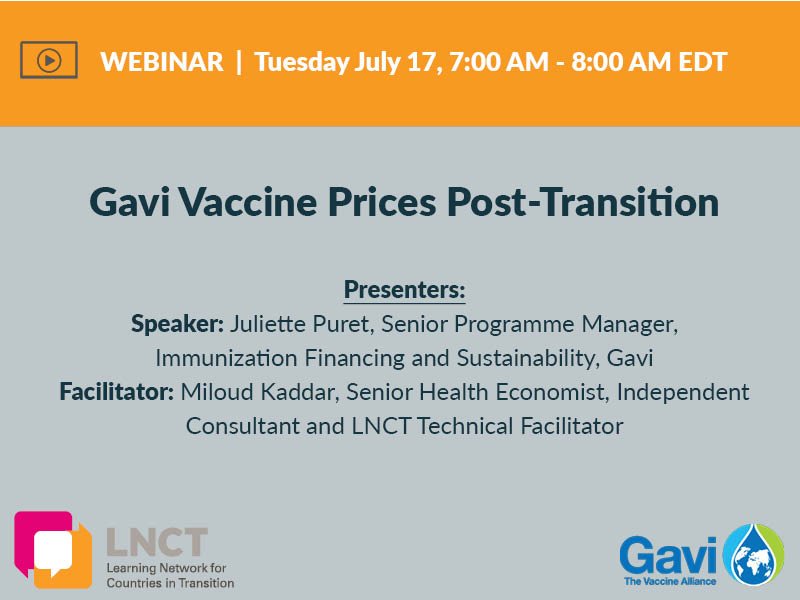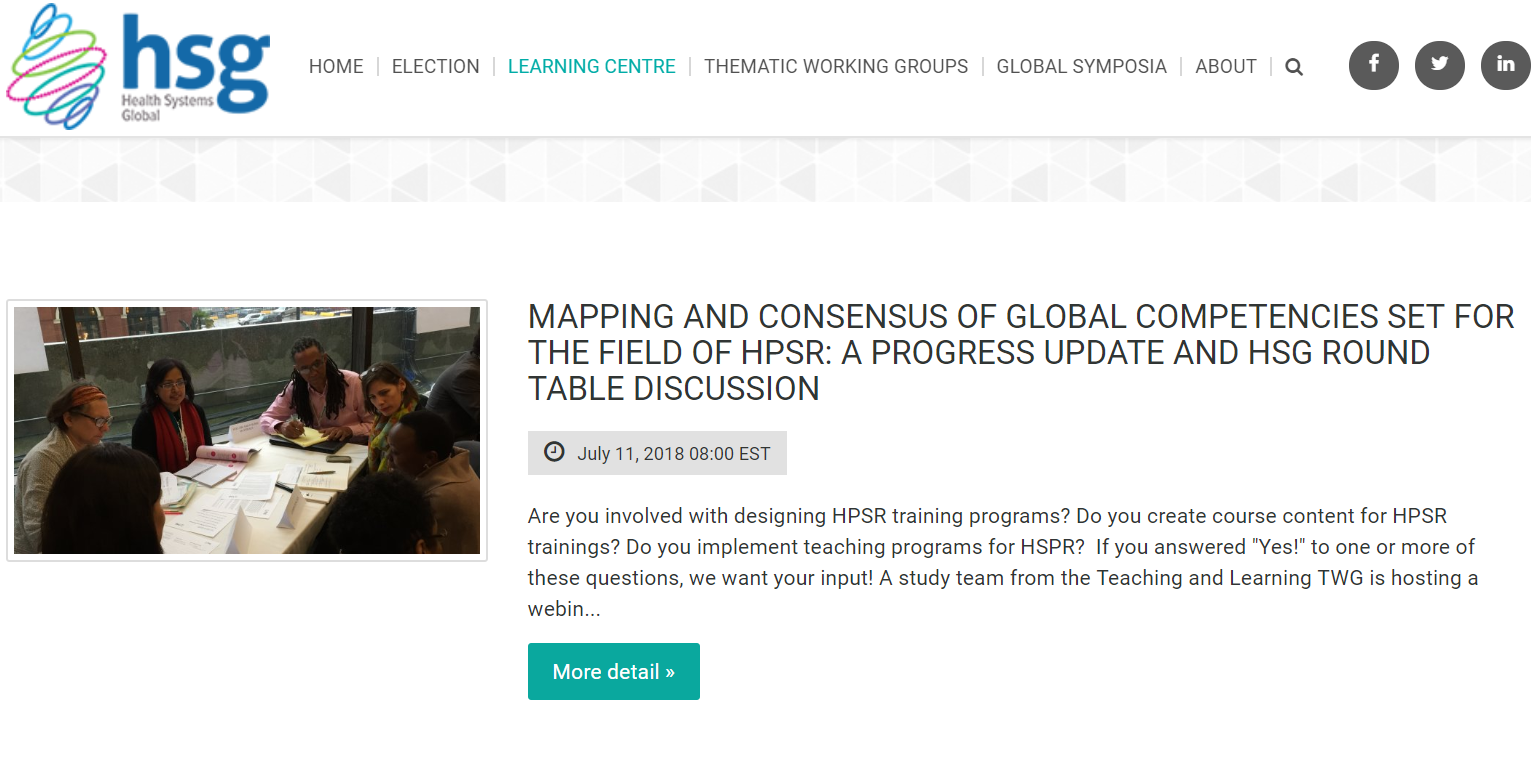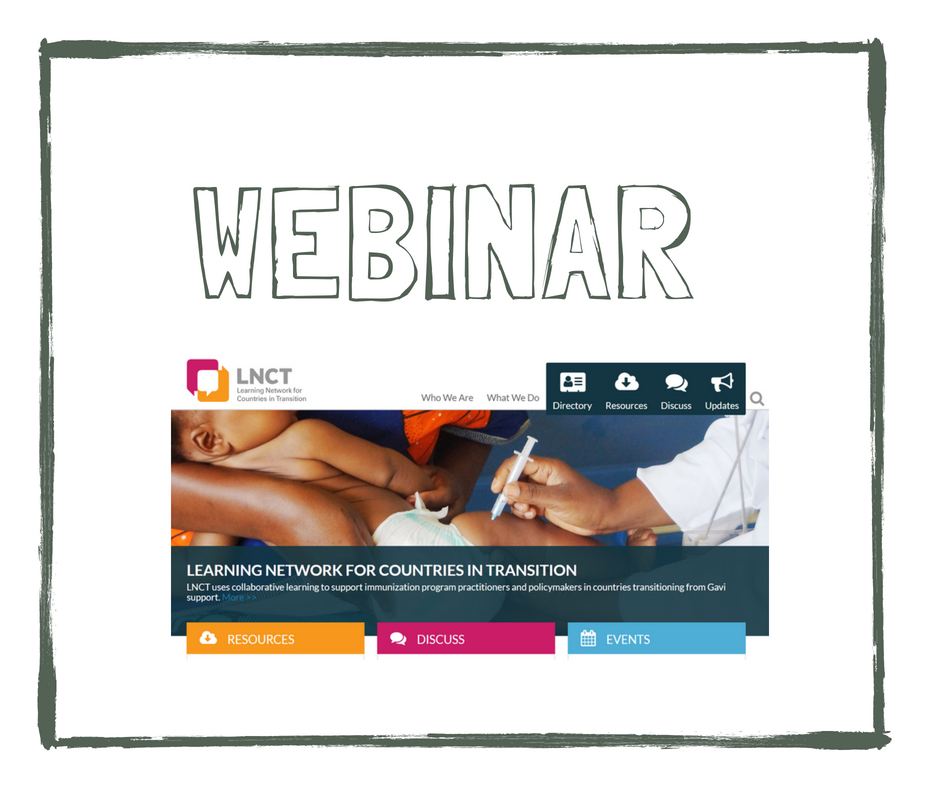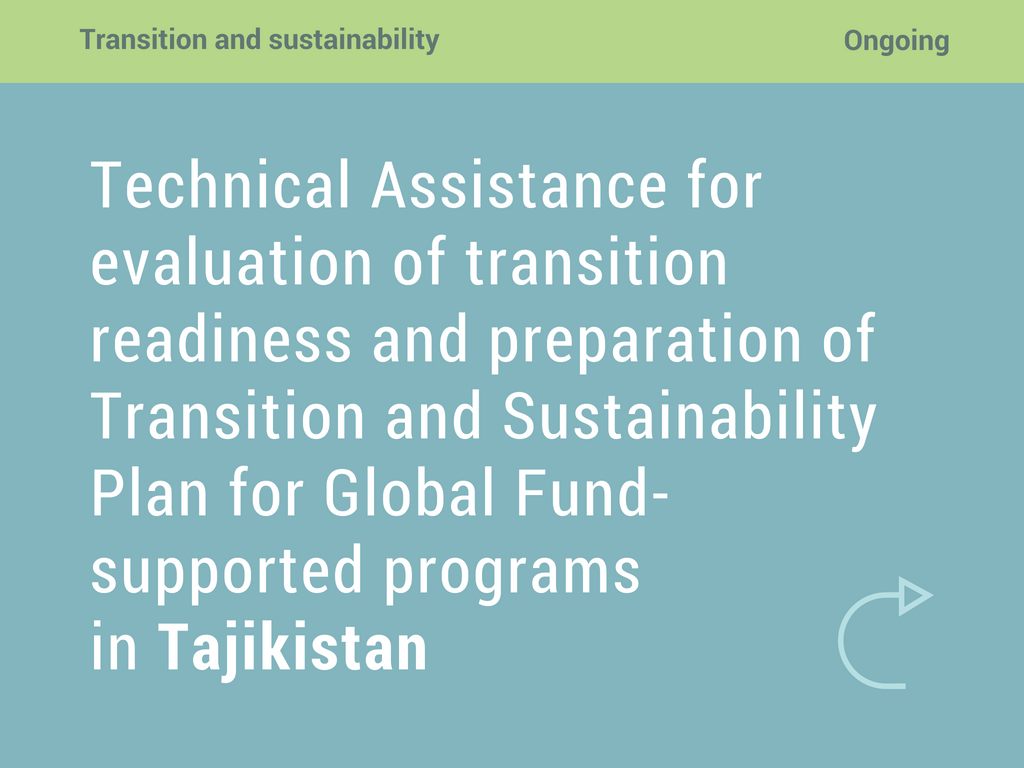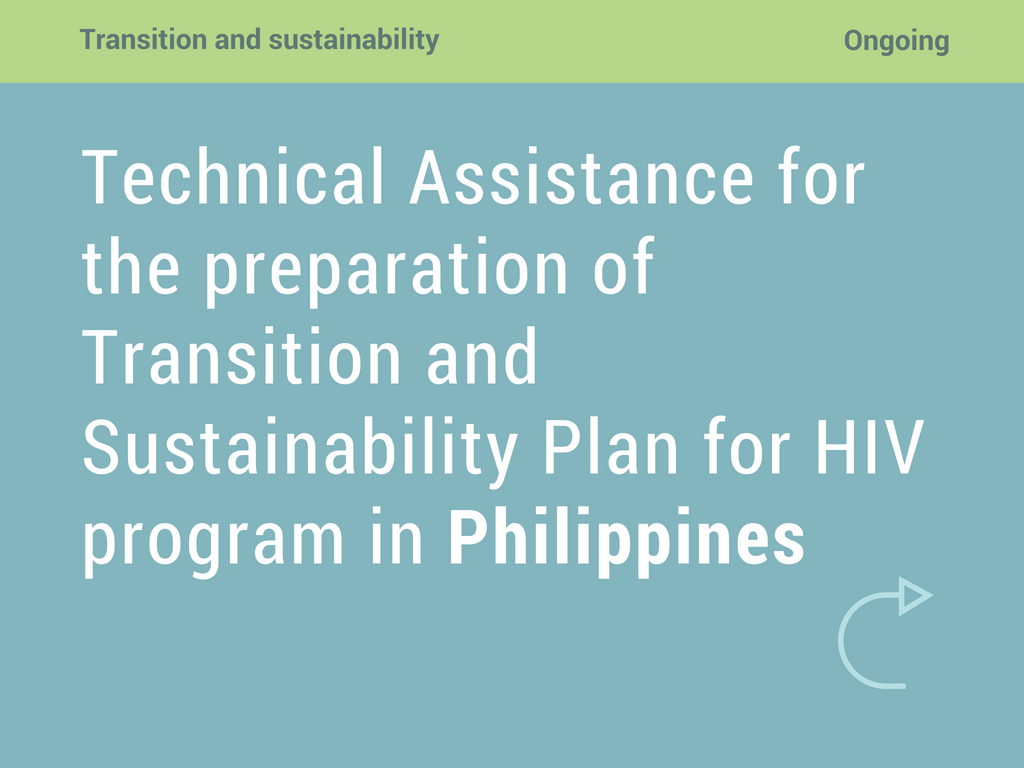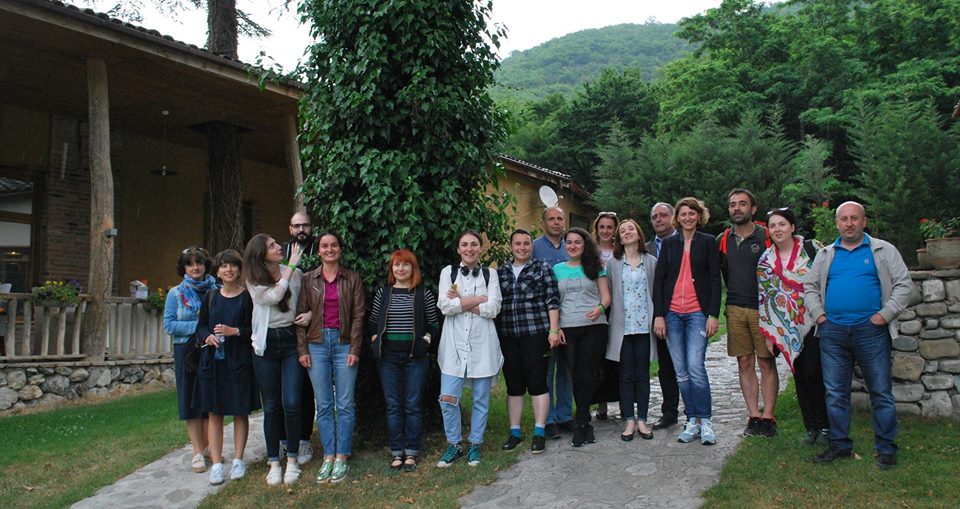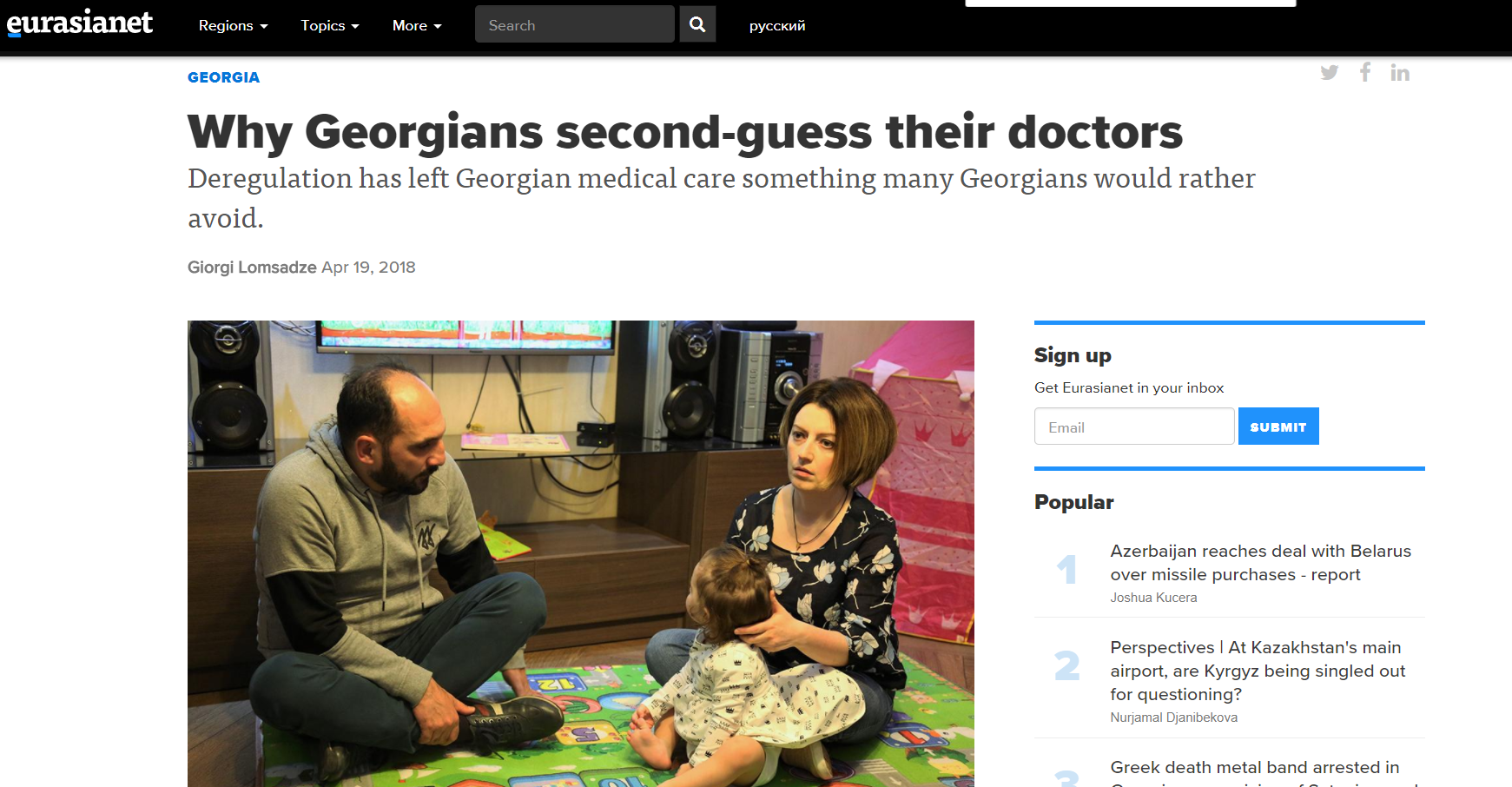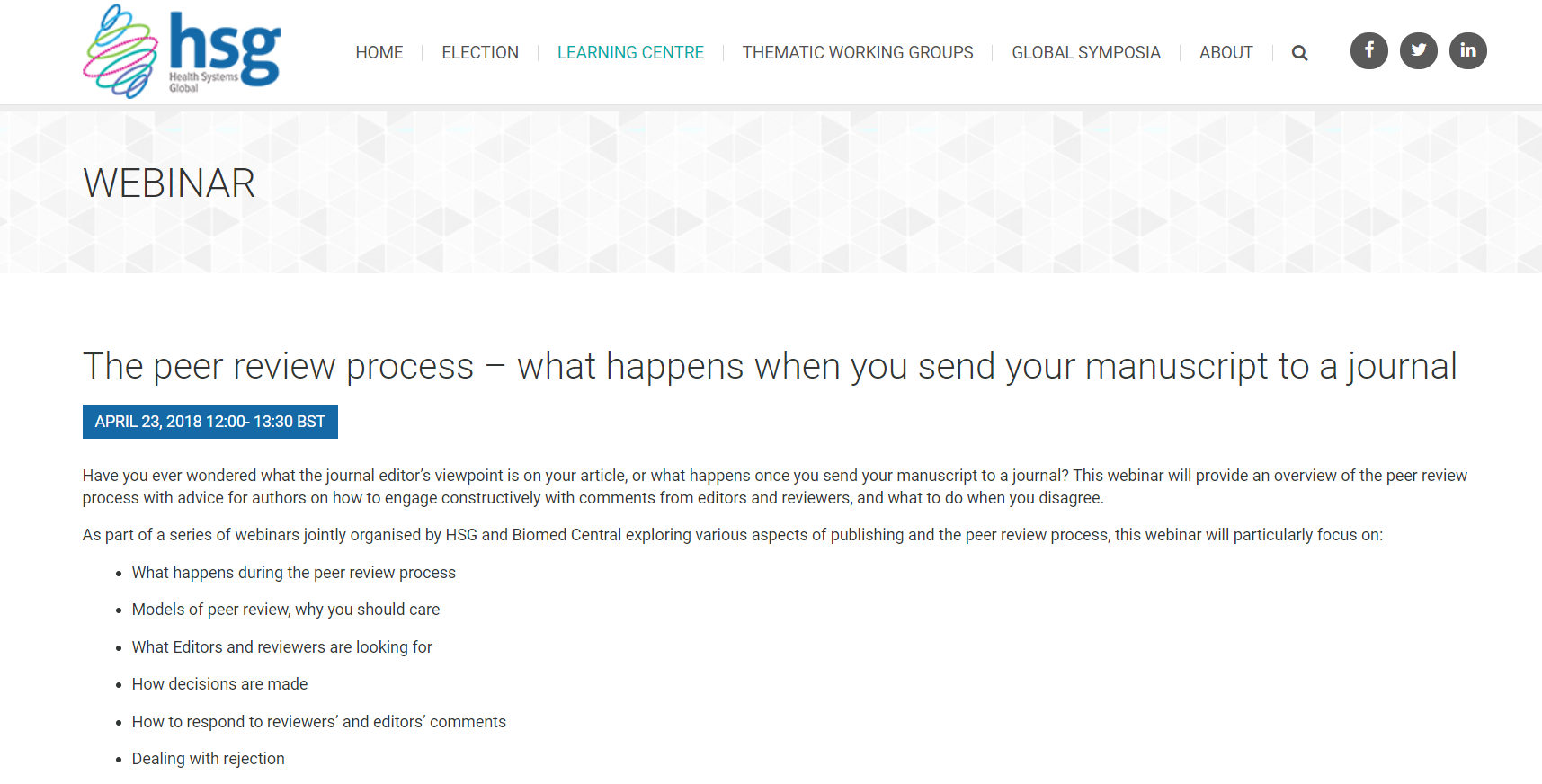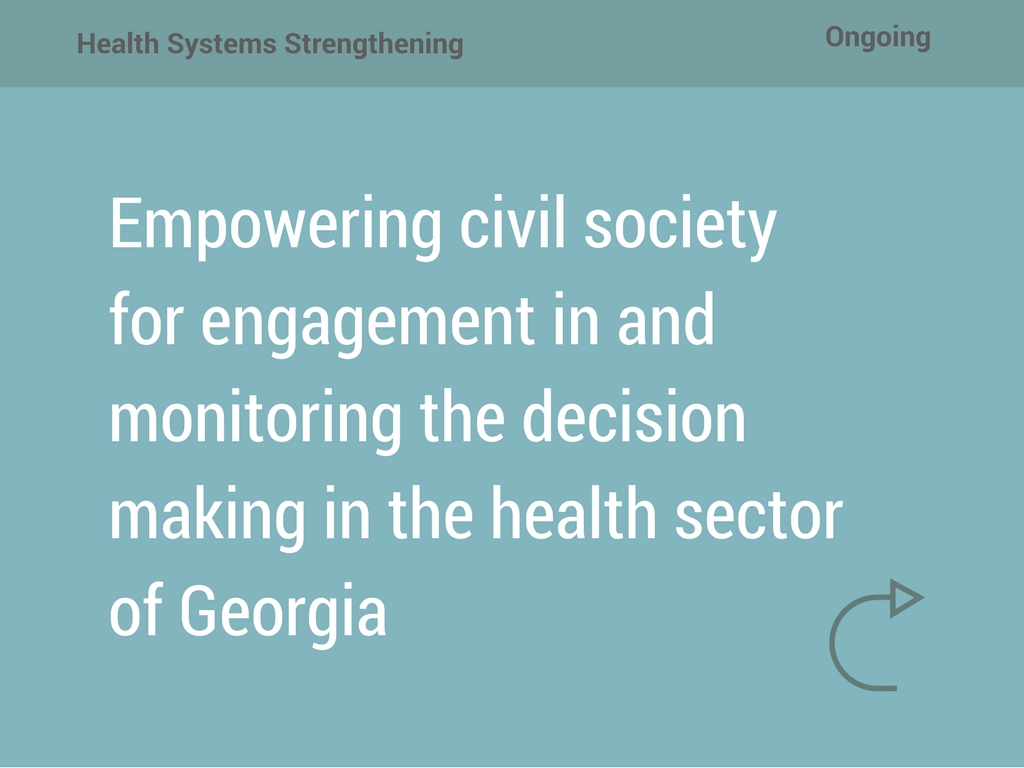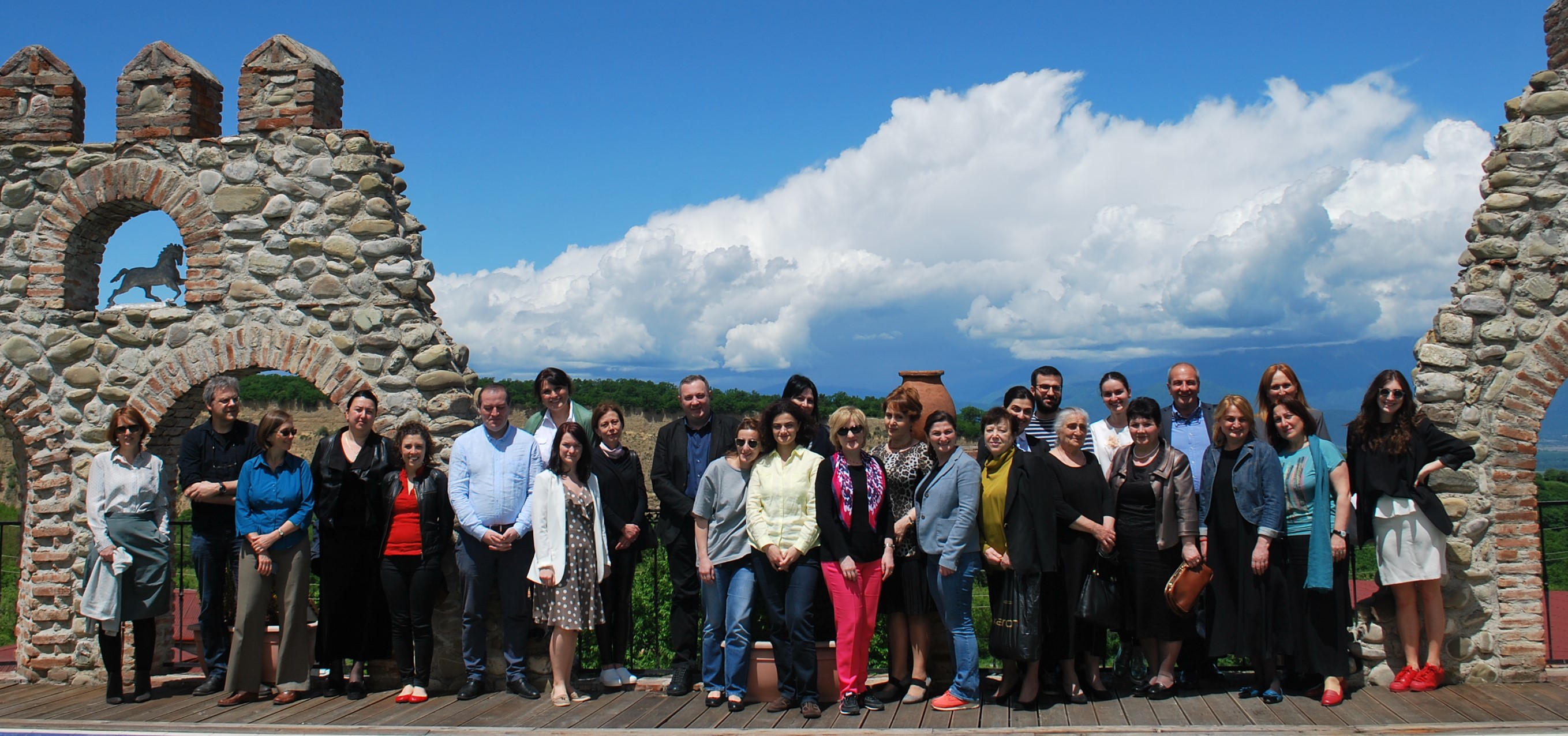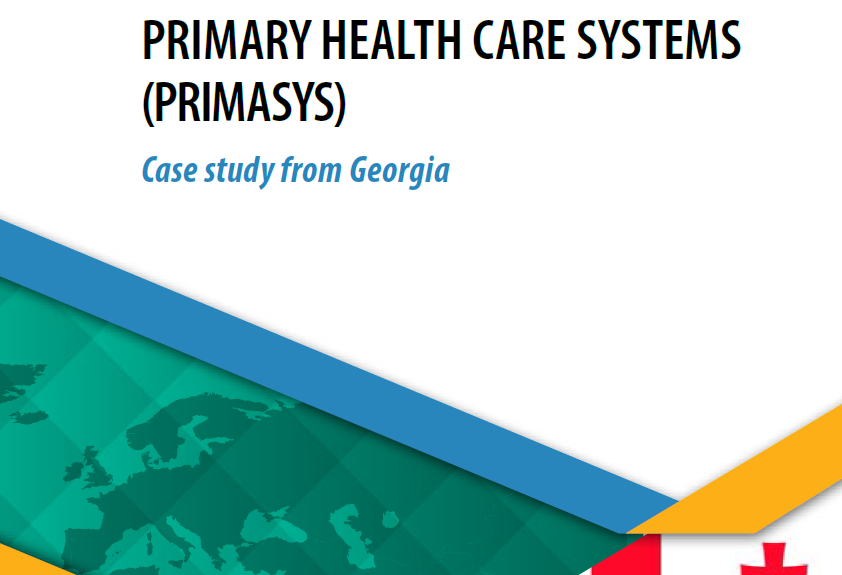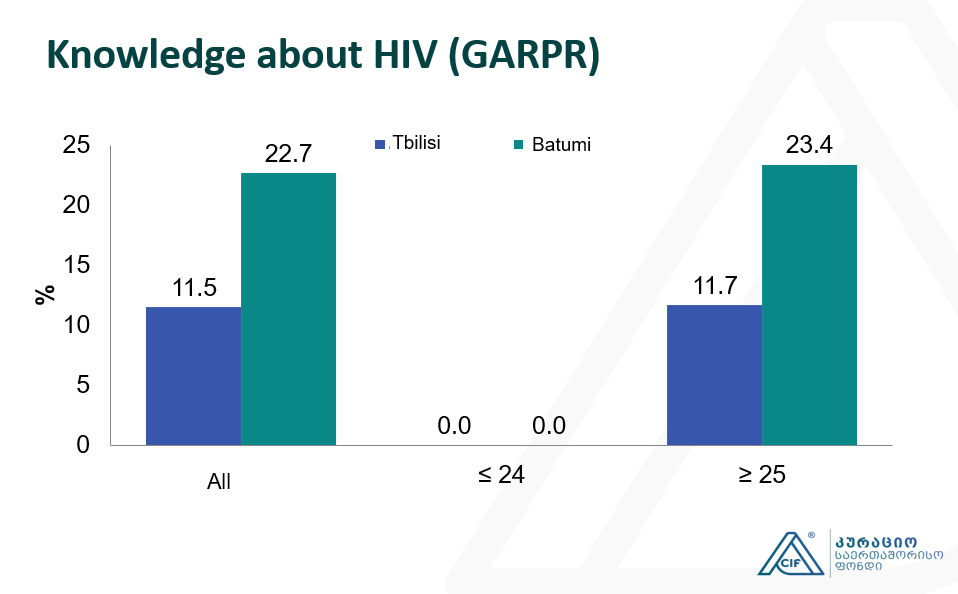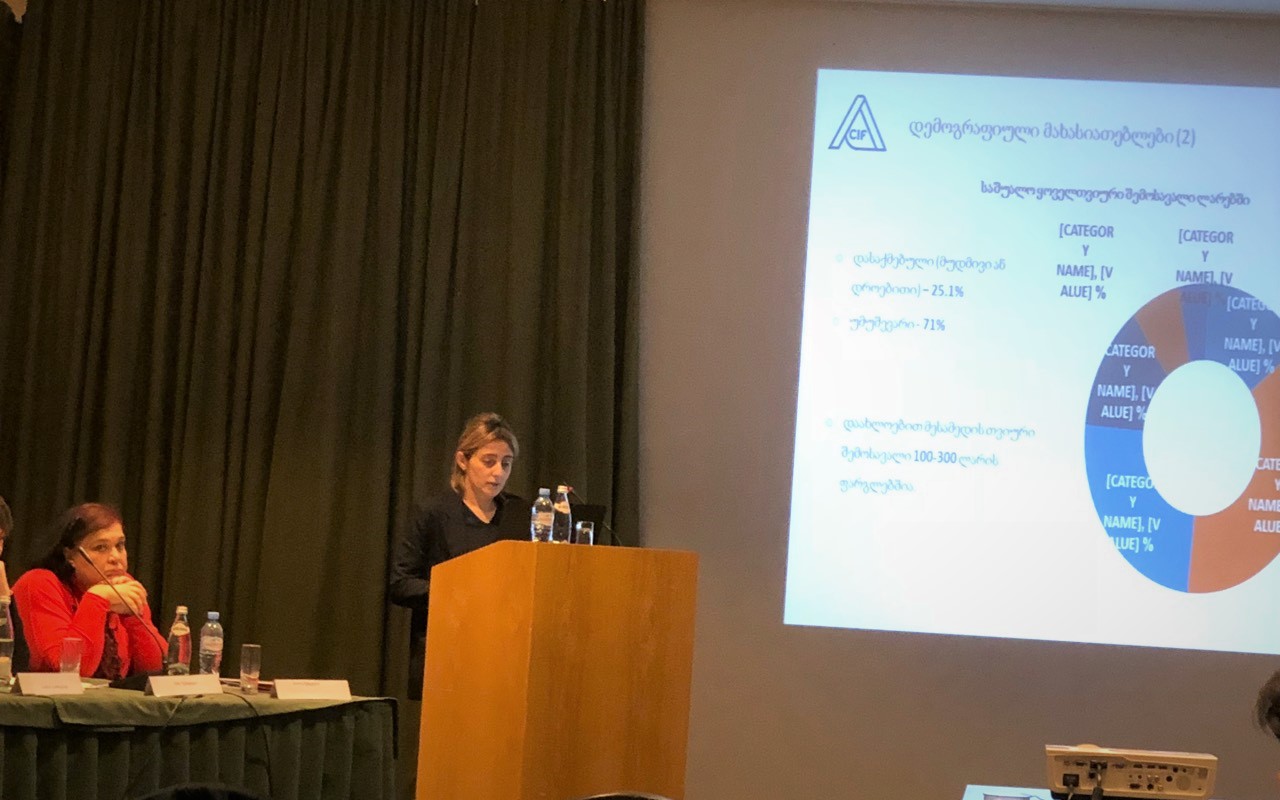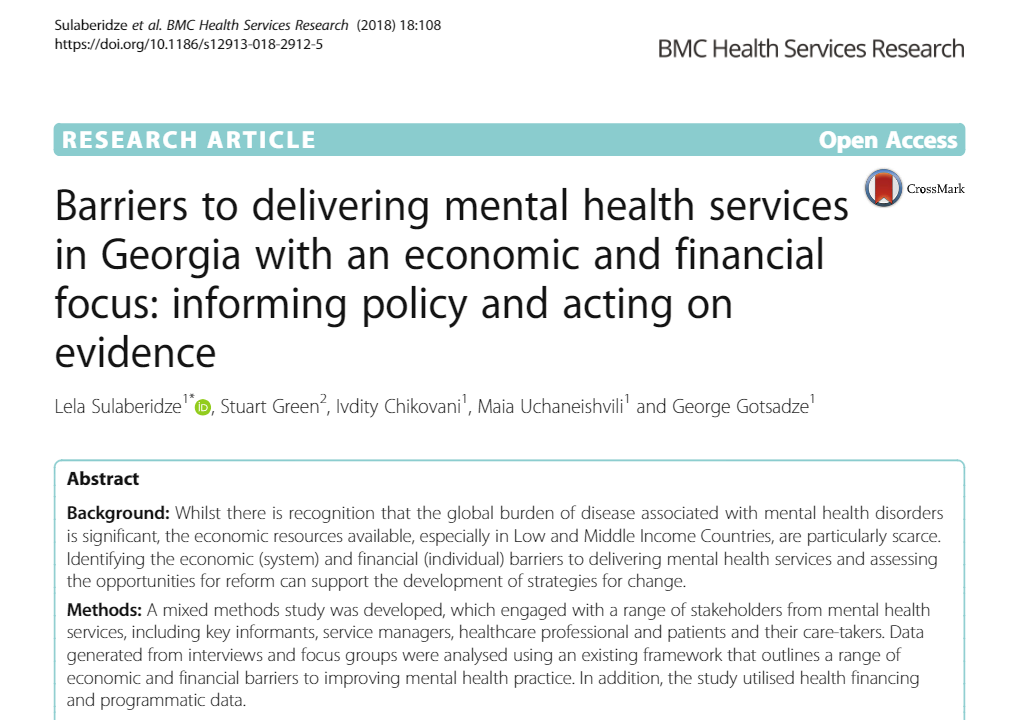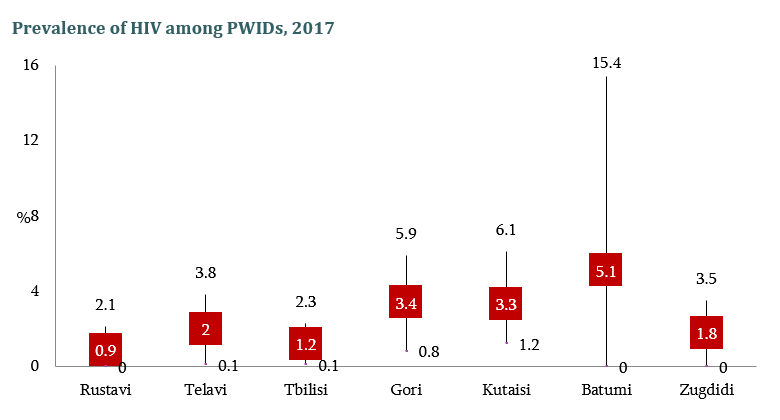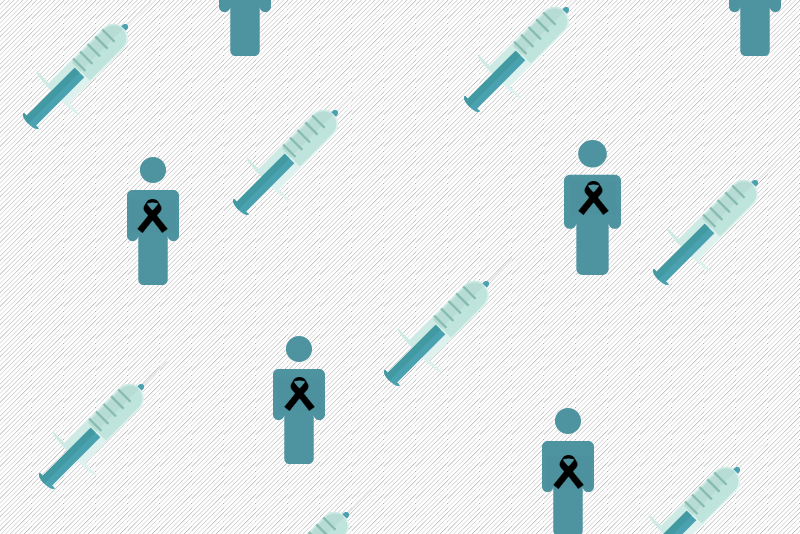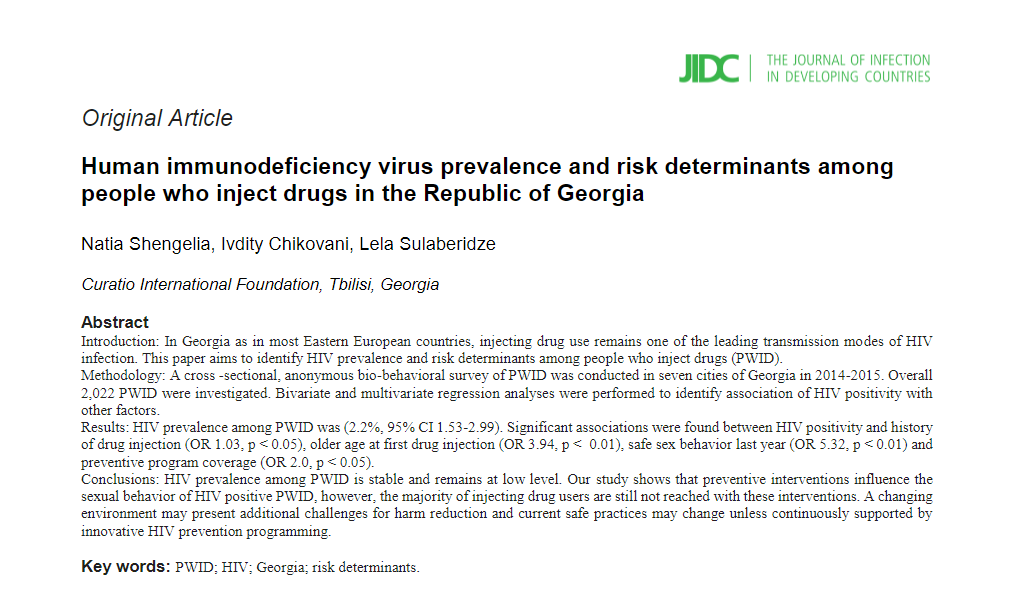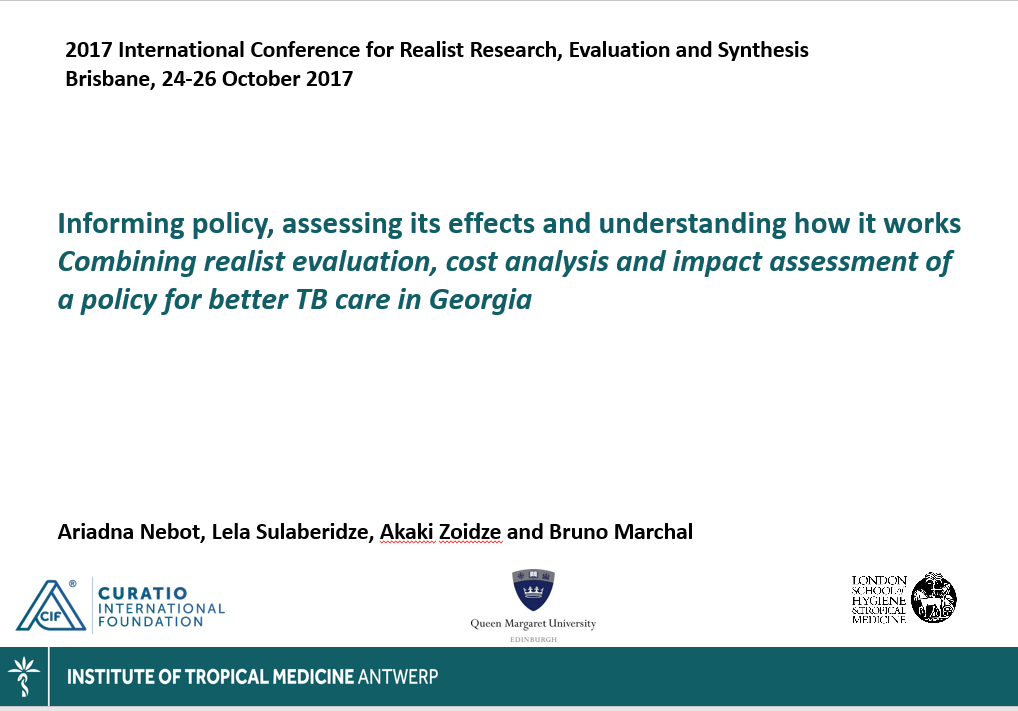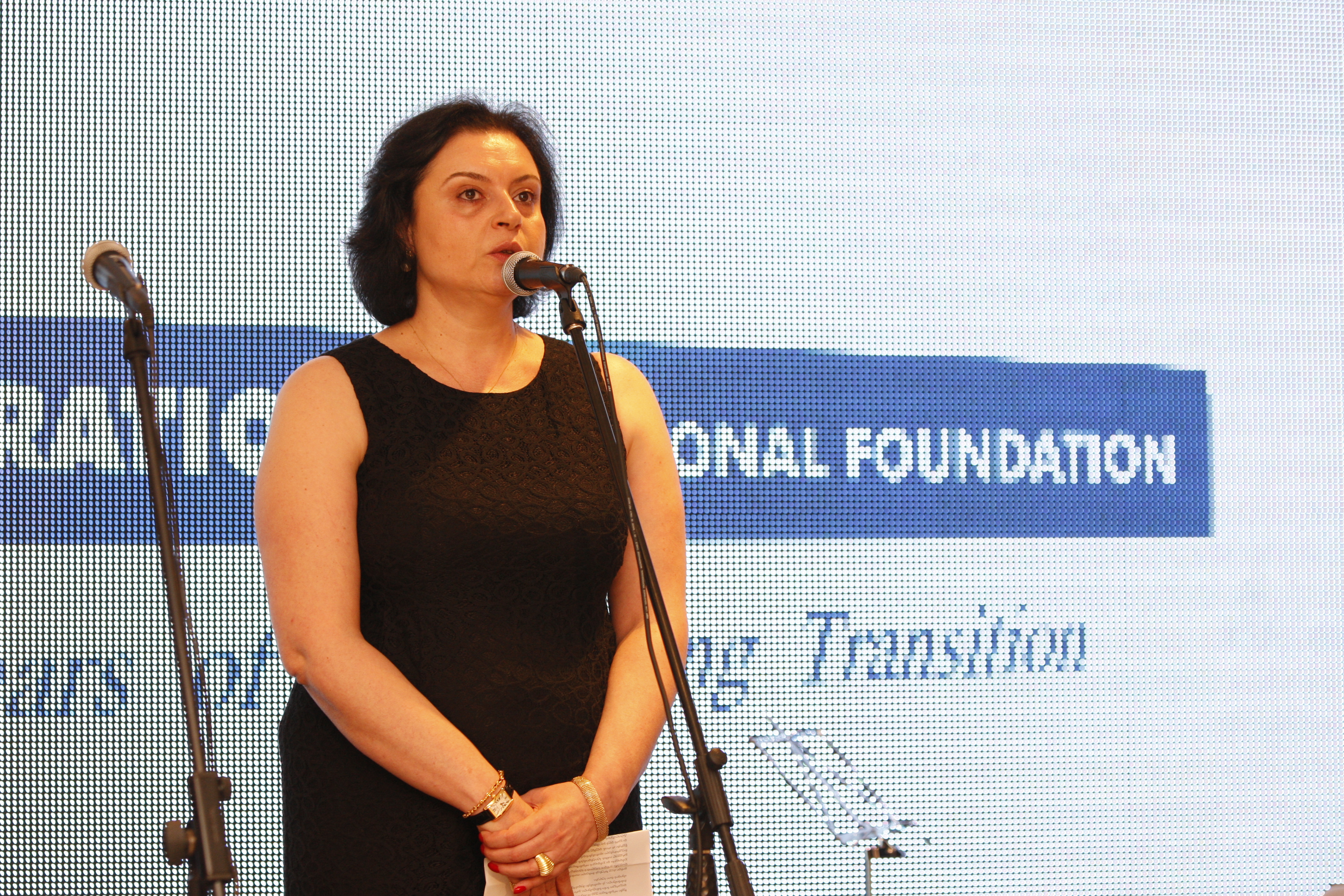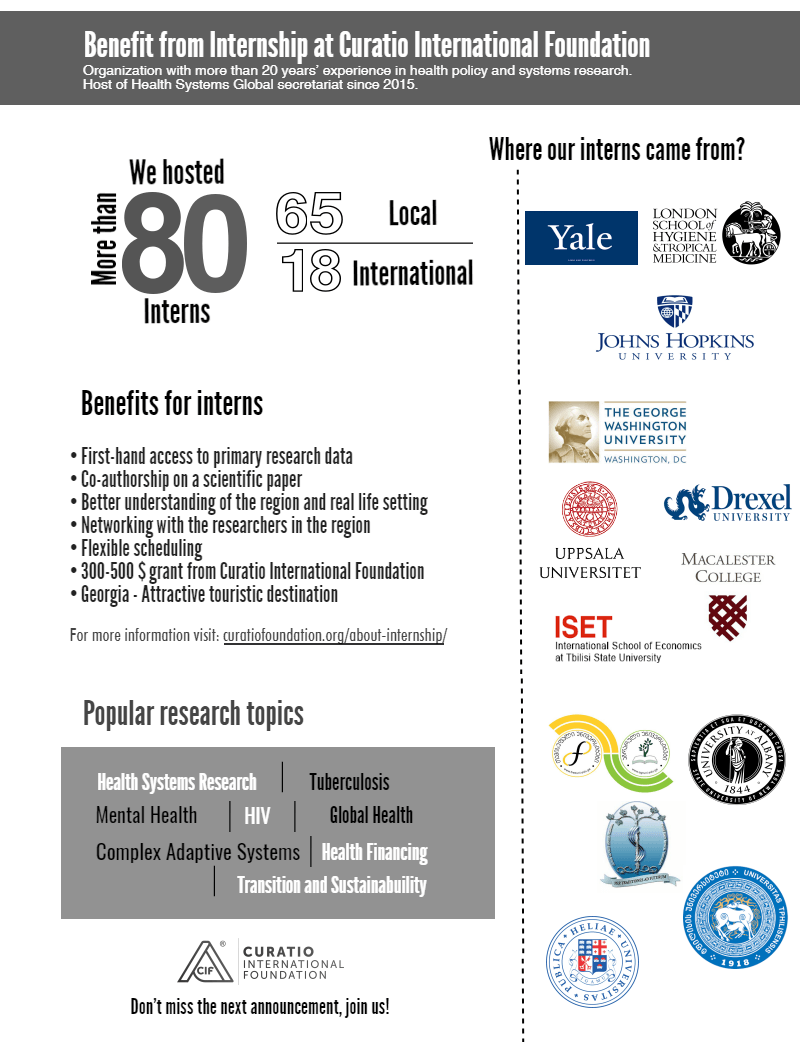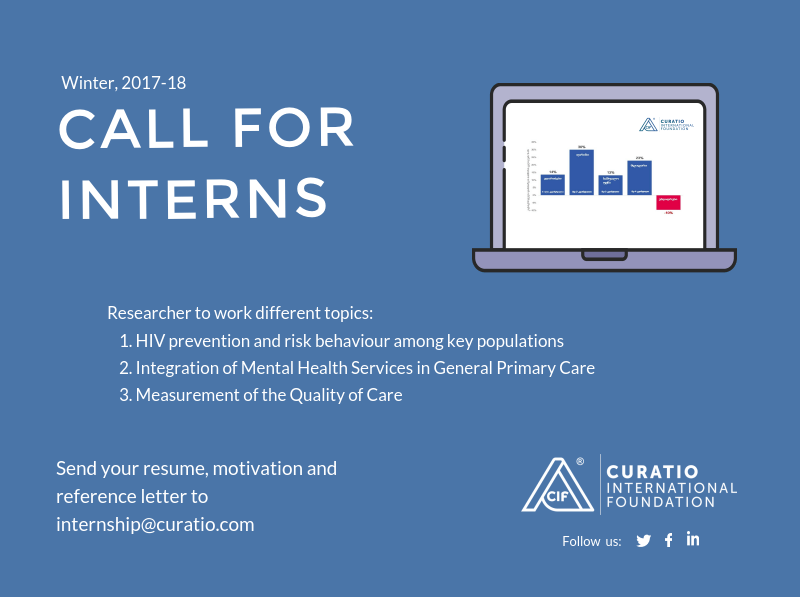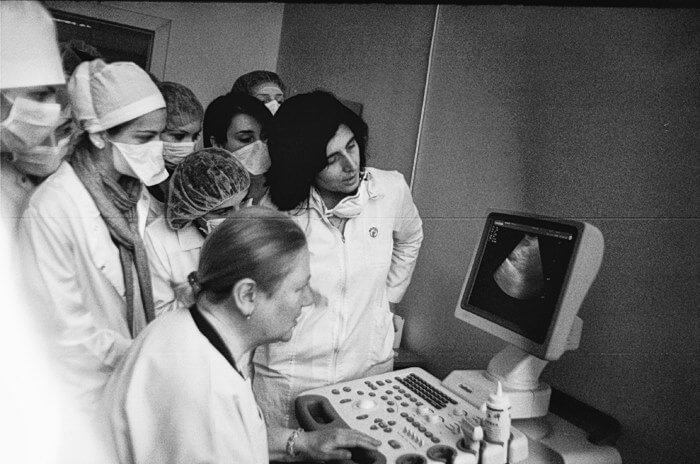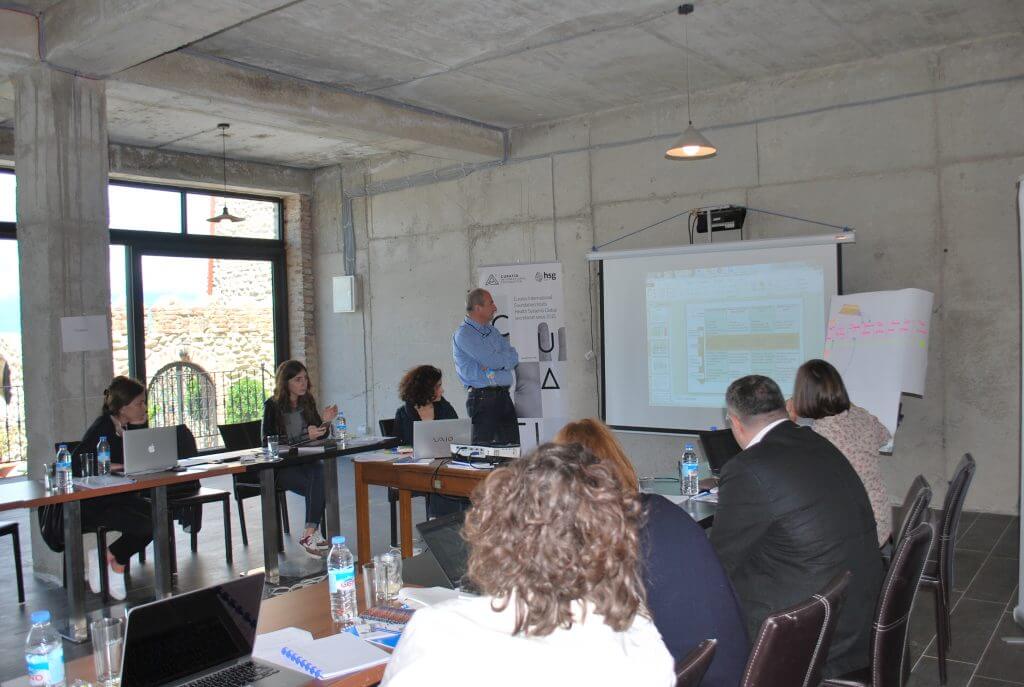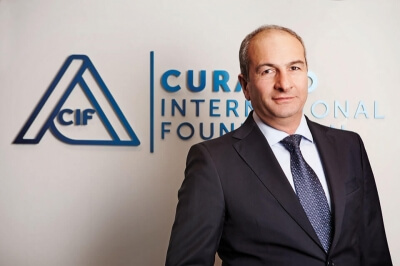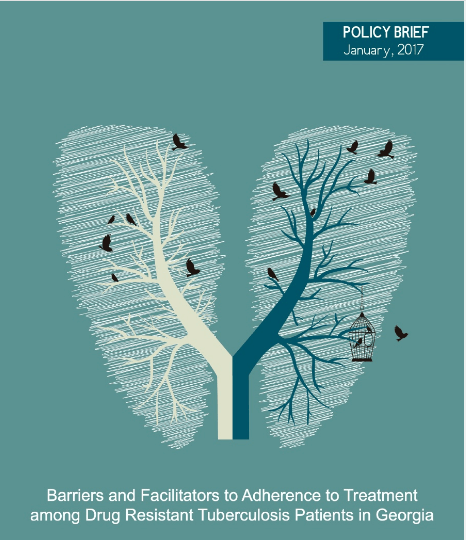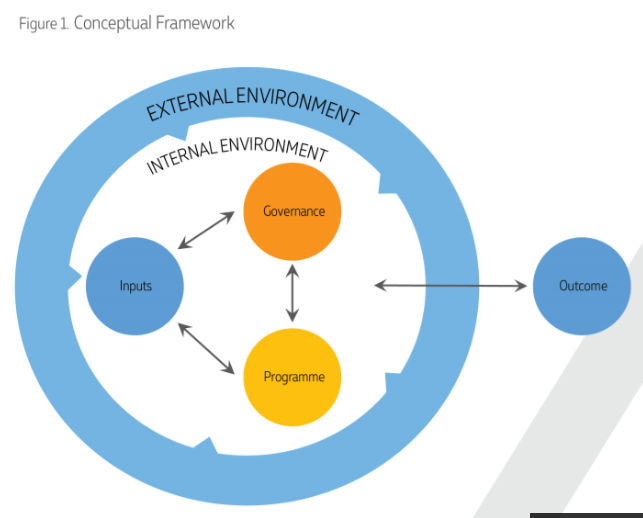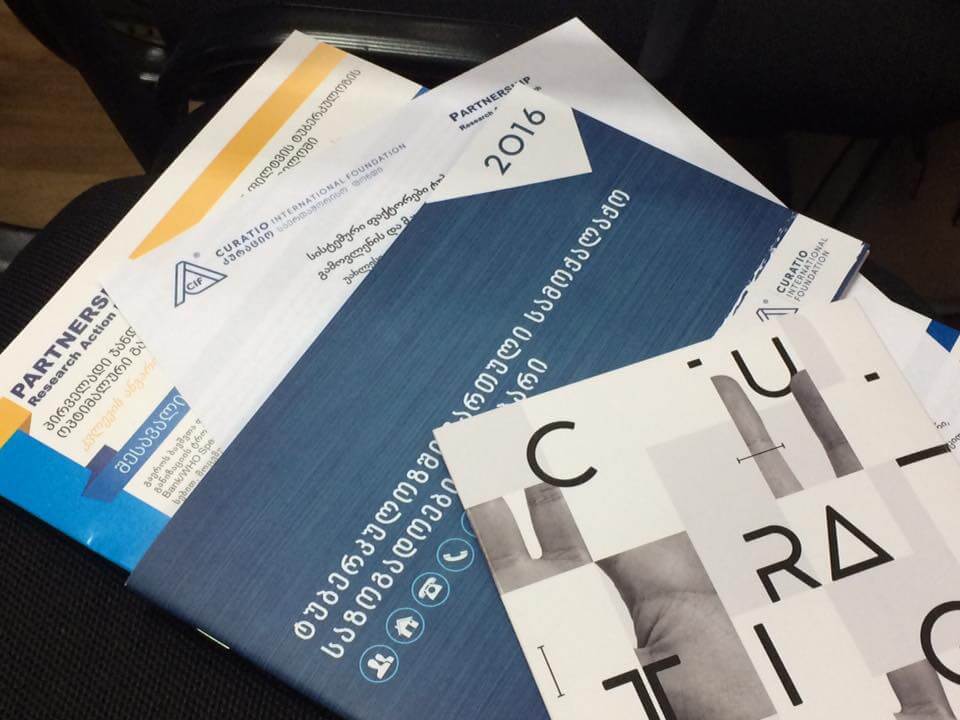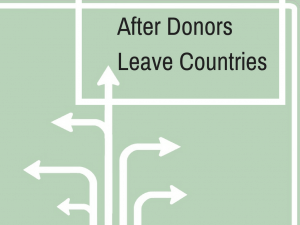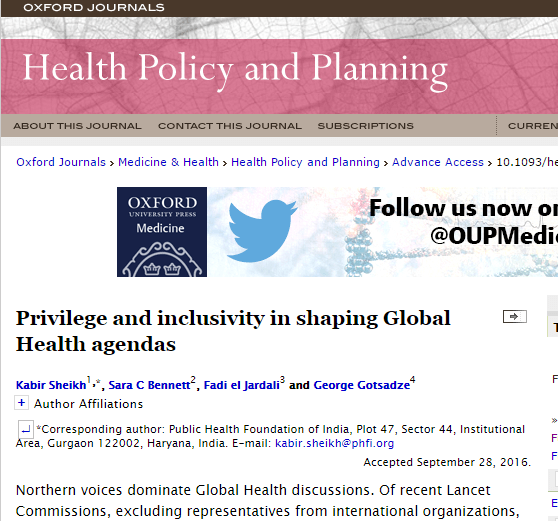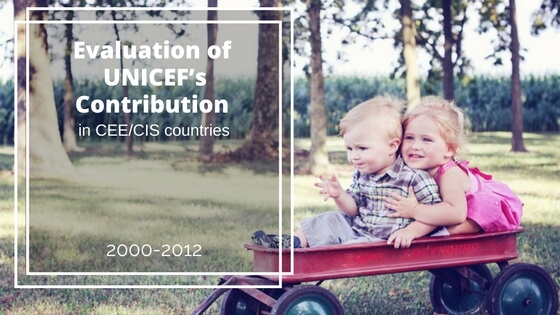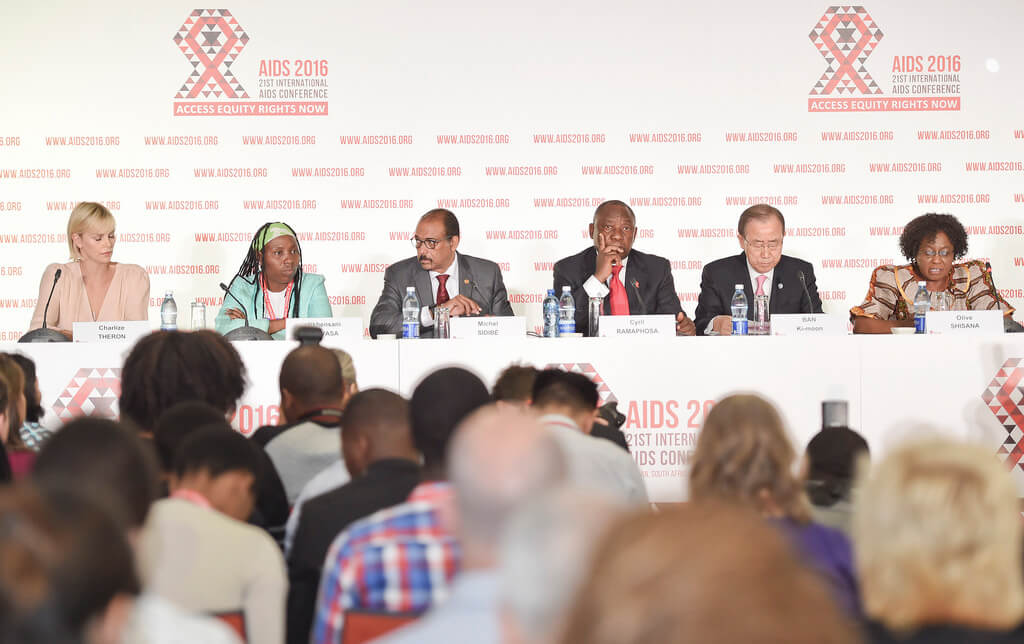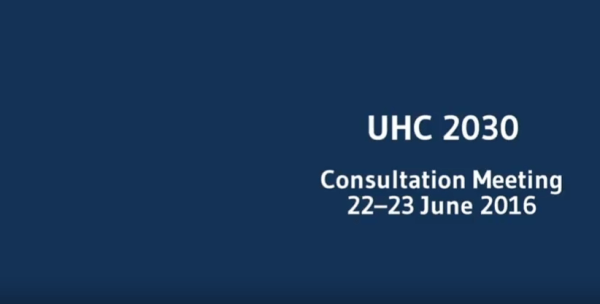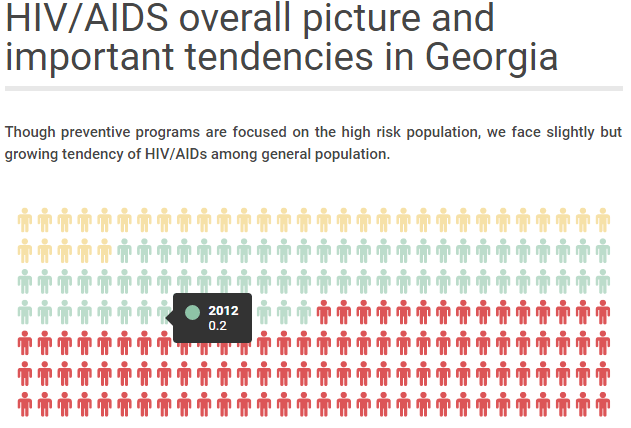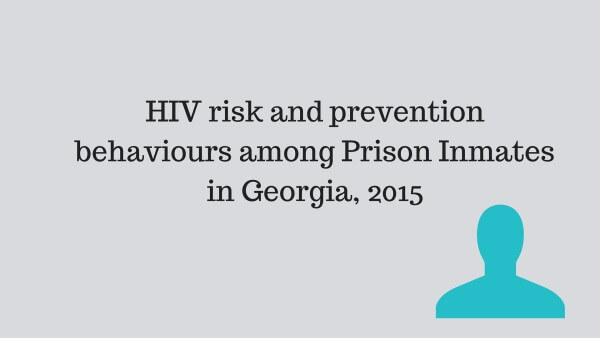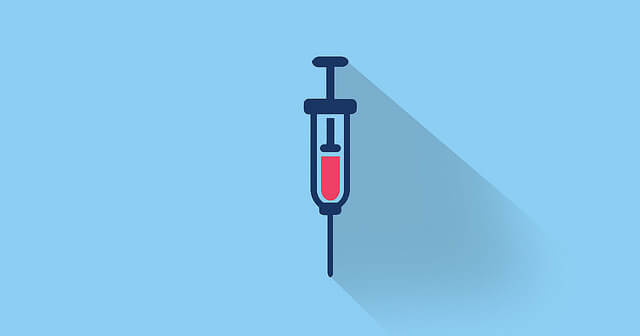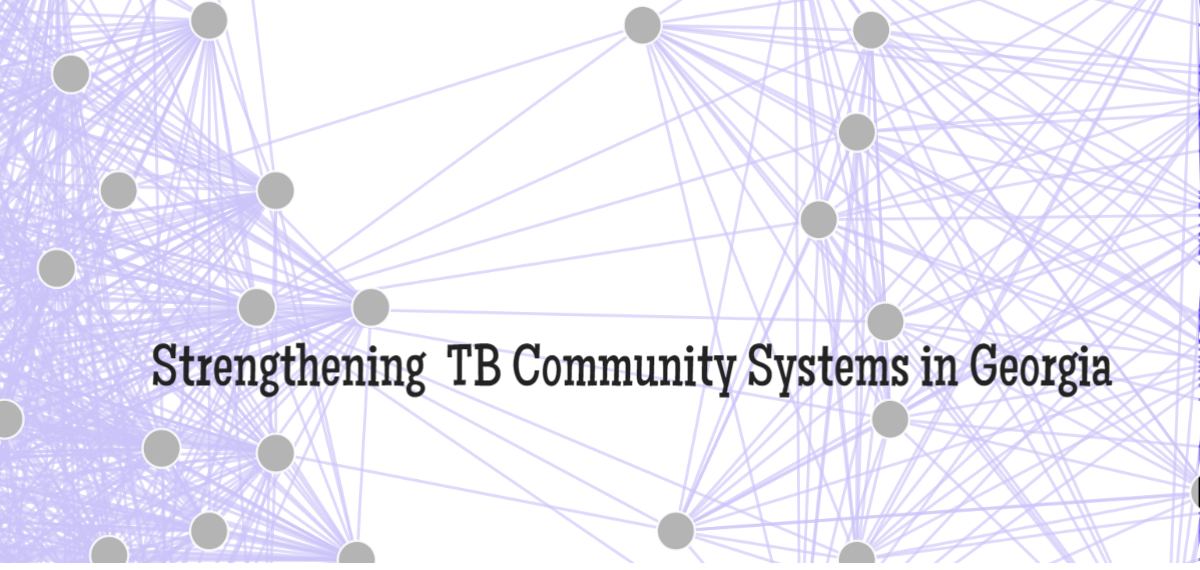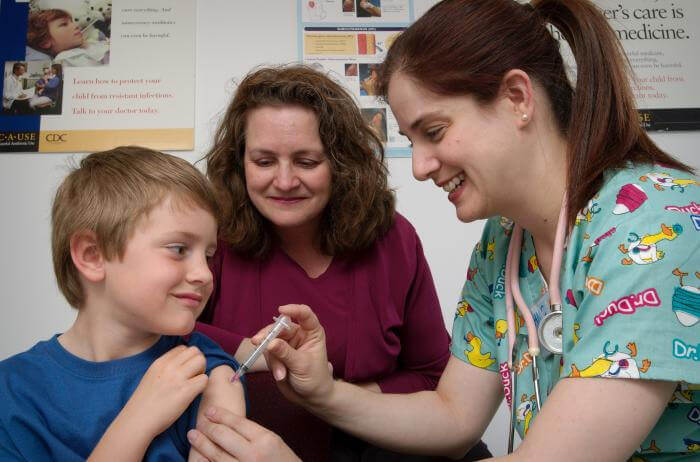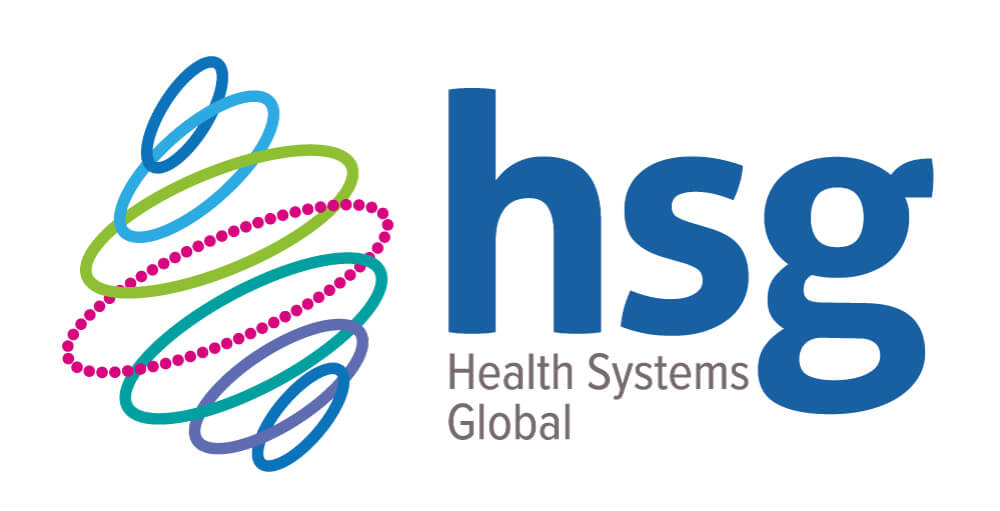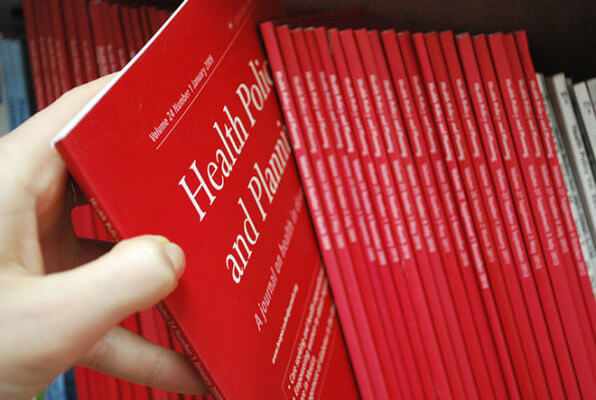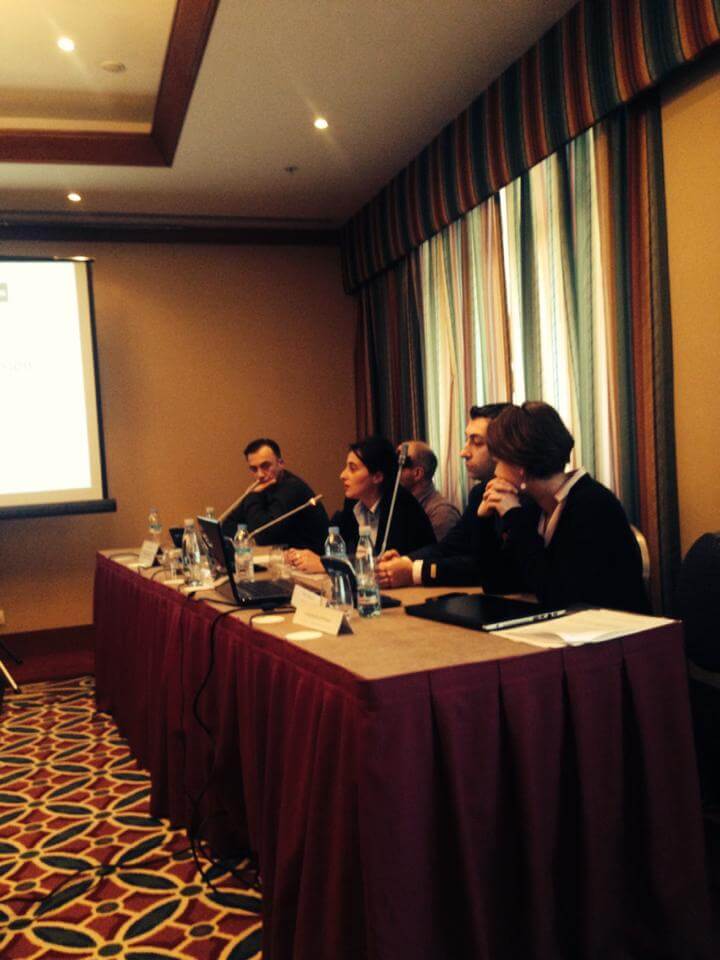Bundled Payment Methods: An Alternative Payment Method to Contain Healthcare Costs in Georgia
Containing healthcare costs remains one of the priority topics of the Georgia health system from the perspectives of both the public and private sector. Government expenditure on health has been increasing between 2013-2019 after the introduction of the Universal Health Coverage program, but with the existing health financing methods (capitation, fee for service, input-based payment covering salaries, and fee for medicines, supplies and utilities), the efficiency of increased investment of public financing in healthcare remains questionable. On the other hand, the private health insurance sector is developing under the competitive market environment with promising outcomes but claims management is becoming rather challenging.
Since there is a considerable growth in healthcare expenditure in Georgia, driven by both supply and demand, the health system would benefit by implementing alternative payment models that will reduce costs and improve the quality of care. As mentioned above, existing health financing methods encourage financial resource growth but do not stimulate healthcare providers to work efficiently and improve care coordination for delivering quality care.
The aim of this document is to provide evidence to inform ongoing deliberations regarding alternative payment methods to reduce cost and improve the quality of care. Specifically, it attempts to inform the following question: What are the effects of bundled payment methods on healthcare spending, service utilization, and quality of care?
According to Georgia’s healthcare system development vision for 2030, the MoIlHSA was preparing the system to move the healthcare sector towards the DRG payment model. Although volume still pays in the DRG system and bundled payment is the type of DRG with an advanced scheme to stimulate coordination of care across different levels of providers and contain costs, and evidence synthesis document has been prepared to feed the discussion around health financing reforms and equip decision-makers with evidence.
The document has been prepared jointly by CIF in the frame of the Strategic Policy Fellowship Program authored by Mariam Davitadze (the fellow) and Lela Sulaberidze. The program is launched as part of the K2P Mentorship Program for Building Institutional Capacity for HPSR and Delivery Science. The project is funded by The Alliance for Health Policy and Systems Research.
Latest News
Integrated Bio-behavioral surveillance and population size estimation survey among Female Sex Workers in Tbilisi and Batumi, Georgia, in 2024
Since there is a considerable growth in healthcare expenditure in Georgia, driven by both supply and demand, the health system would benefit by implementing alternative payment models that will reduce costs and improve the quality of care.
Curatio International Foundation at Eighth Global Symposium on Health Systems Research (HSR2024)
Since there is a considerable growth in healthcare expenditure in Georgia, driven by both supply and demand, the health system would benefit by implementing alternative payment models that will reduce costs and improve the quality of care.
“The Informatics and Data Science for Public Health: Sustainment Plan for Skilled Labor Force Development”
Since there is a considerable growth in healthcare expenditure in Georgia, driven by both supply and demand, the health system would benefit by implementing alternative payment models that will reduce costs and improve the quality of care.
Janina Stauke from the London School of Hygiene and Tropical Medicine shares her internship experience
Since there is a considerable growth in healthcare expenditure in Georgia, driven by both supply and demand, the health system would benefit by implementing alternative payment models that will reduce costs and improve the quality of care.
Jolly Mae Catalan fromUniversité Libre de Bruxelles shares her internship experience
Since there is a considerable growth in healthcare expenditure in Georgia, driven by both supply and demand, the health system would benefit by implementing alternative payment models that will reduce costs and improve the quality of care.
Georgia’s Journey to Integrating Rehabilitation Services into the Health System: Insights and Lessons
Since there is a considerable growth in healthcare expenditure in Georgia, driven by both supply and demand, the health system would benefit by implementing alternative payment models that will reduce costs and improve the quality of care.
Report on Rehabilitation Data Flow in Georgia’s Health Information System
Since there is a considerable growth in healthcare expenditure in Georgia, driven by both supply and demand, the health system would benefit by implementing alternative payment models that will reduce costs and improve the quality of care.
Georgia: a primary health care case study in the context of the COVID-19 pandemic
Since there is a considerable growth in healthcare expenditure in Georgia, driven by both supply and demand, the health system would benefit by implementing alternative payment models that will reduce costs and improve the quality of care.
Assessment of the Quality of Maternal and Neonatal Services in Montenegro
Since there is a considerable growth in healthcare expenditure in Georgia, driven by both supply and demand, the health system would benefit by implementing alternative payment models that will reduce costs and improve the quality of care.
Georgian state rehabilitation program: implementation research study report
Since there is a considerable growth in healthcare expenditure in Georgia, driven by both supply and demand, the health system would benefit by implementing alternative payment models that will reduce costs and improve the quality of care.
Strengthening Health Systems for Accessible Rehabilitation Services in Georgia
Since there is a considerable growth in healthcare expenditure in Georgia, driven by both supply and demand, the health system would benefit by implementing alternative payment models that will reduce costs and improve the quality of care.
Linked’s workshop on HPV vaccine introduction and scale up, held on July 11-12th, 2023
Since there is a considerable growth in healthcare expenditure in Georgia, driven by both supply and demand, the health system would benefit by implementing alternative payment models that will reduce costs and improve the quality of care.
Training program focusing on interdisciplinary evaluation of rehabilitation interventions and patient outcomes
Since there is a considerable growth in healthcare expenditure in Georgia, driven by both supply and demand, the health system would benefit by implementing alternative payment models that will reduce costs and improve the quality of care.
Unlocking Success Through Learning: Workshop on Strengthening HR Capacity and Performance Management in Immunization
Since there is a considerable growth in healthcare expenditure in Georgia, driven by both supply and demand, the health system would benefit by implementing alternative payment models that will reduce costs and improve the quality of care.
Promote evidence-based policies in the pharmaceutical sector by generating evidence and fostering civic engagement
Since there is a considerable growth in healthcare expenditure in Georgia, driven by both supply and demand, the health system would benefit by implementing alternative payment models that will reduce costs and improve the quality of care.
CIF and the Results for Development / Accelerator combined their expertise to co-author an insightful blog, shedding light on Georgia’s commendable efforts to overcome limited data challenges and develop evidence-based policies for financing rehabilitation services
Since there is a considerable growth in healthcare expenditure in Georgia, driven by both supply and demand, the health system would benefit by implementing alternative payment models that will reduce costs and improve the quality of care.
Culminating event – Building Institutional Capacity for Health Policy and Systems Research and Delivery science (BIRD) in six WHO Regions
Since there is a considerable growth in healthcare expenditure in Georgia, driven by both supply and demand, the health system would benefit by implementing alternative payment models that will reduce costs and improve the quality of care.
Report on Phased (Stepwise) Plan for the Capability Development of the Priority Rehabilitation Services
Since there is a considerable growth in healthcare expenditure in Georgia, driven by both supply and demand, the health system would benefit by implementing alternative payment models that will reduce costs and improve the quality of care.
Report on prioritization of rehabilitation services in Georgia
Since there is a considerable growth in healthcare expenditure in Georgia, driven by both supply and demand, the health system would benefit by implementing alternative payment models that will reduce costs and improve the quality of care.
Promote evidence-based policies in the pharmaceutical sector by generating evidence
Since there is a considerable growth in healthcare expenditure in Georgia, driven by both supply and demand, the health system would benefit by implementing alternative payment models that will reduce costs and improve the quality of care.
Mandatory Vaccination and Green Passes – Review of International Experience
Since there is a considerable growth in healthcare expenditure in Georgia, driven by both supply and demand, the health system would benefit by implementing alternative payment models that will reduce costs and improve the quality of care.
Sustaining Public Health Gains after Donor Transition: What can we learn about Georgia?
Since there is a considerable growth in healthcare expenditure in Georgia, driven by both supply and demand, the health system would benefit by implementing alternative payment models that will reduce costs and improve the quality of care.
Curatio International Foundation at Seventh Global Symposium on Health Systems Research (HSR2022)
Since there is a considerable growth in healthcare expenditure in Georgia, driven by both supply and demand, the health system would benefit by implementing alternative payment models that will reduce costs and improve the quality of care.
Curatio International Foundation at Global Symposium on Health Systems Research
Since there is a considerable growth in healthcare expenditure in Georgia, driven by both supply and demand, the health system would benefit by implementing alternative payment models that will reduce costs and improve the quality of care.
Study report: Adaptations made in TB response during Covid-19 pandemic in Georgia
Since there is a considerable growth in healthcare expenditure in Georgia, driven by both supply and demand, the health system would benefit by implementing alternative payment models that will reduce costs and improve the quality of care.
New review of our recent study on Immunization in Kazakhstan
Since there is a considerable growth in healthcare expenditure in Georgia, driven by both supply and demand, the health system would benefit by implementing alternative payment models that will reduce costs and improve the quality of care.
New case study: Sustaining effective coverage with Opioid Substitution Therapy (OST) in Georgia in the context of transition from external assistance
Since there is a considerable growth in healthcare expenditure in Georgia, driven by both supply and demand, the health system would benefit by implementing alternative payment models that will reduce costs and improve the quality of care.
New case study: National Immunisation Program Transition from external assistance
Since there is a considerable growth in healthcare expenditure in Georgia, driven by both supply and demand, the health system would benefit by implementing alternative payment models that will reduce costs and improve the quality of care.
“Strengthening Health Systems for Accessible Rehabilitation Services in Georgia” – Workshop
Since there is a considerable growth in healthcare expenditure in Georgia, driven by both supply and demand, the health system would benefit by implementing alternative payment models that will reduce costs and improve the quality of care.
Strengthening the Delivery of Immunisation Services Through PHC Platforms-Workshop
Since there is a considerable growth in healthcare expenditure in Georgia, driven by both supply and demand, the health system would benefit by implementing alternative payment models that will reduce costs and improve the quality of care.
New Article published in the journal Frontiers in Public Health
Since there is a considerable growth in healthcare expenditure in Georgia, driven by both supply and demand, the health system would benefit by implementing alternative payment models that will reduce costs and improve the quality of care.
New Paper: A transdiagnostic psychosocial prevention-intervention service for young people in the Republic of Georgia
Since there is a considerable growth in healthcare expenditure in Georgia, driven by both supply and demand, the health system would benefit by implementing alternative payment models that will reduce costs and improve the quality of care.
Vaccine Procurement and Supply for the Expanded Program of Immunization in Kazakhstan
Since there is a considerable growth in healthcare expenditure in Georgia, driven by both supply and demand, the health system would benefit by implementing alternative payment models that will reduce costs and improve the quality of care.
Prevention of Addiction and Mental Health in Adolescents in Georgia (PAMAd) – Workshop
Since there is a considerable growth in healthcare expenditure in Georgia, driven by both supply and demand, the health system would benefit by implementing alternative payment models that will reduce costs and improve the quality of care.
Workshop to discuss the risk assessment of future TB migrants
Since there is a considerable growth in healthcare expenditure in Georgia, driven by both supply and demand, the health system would benefit by implementing alternative payment models that will reduce costs and improve the quality of care.
Webinar : Matters of Scale and Integration in Digital Health Ecosystems
Since there is a considerable growth in healthcare expenditure in Georgia, driven by both supply and demand, the health system would benefit by implementing alternative payment models that will reduce costs and improve the quality of care.
Data Analysis and Synthesis Workshop – analyzing the implications of the structure of Georgia’s private healthcare market for quality and accessibility
Since there is a considerable growth in healthcare expenditure in Georgia, driven by both supply and demand, the health system would benefit by implementing alternative payment models that will reduce costs and improve the quality of care.
External Reference Pricing Policy: A Possible Pharmaceutical Price Regulation Policy in Georgia
Since there is a considerable growth in healthcare expenditure in Georgia, driven by both supply and demand, the health system would benefit by implementing alternative payment models that will reduce costs and improve the quality of care.
Paper: Soviet legacy is still pervasive in health policy and systems research in the post-Soviet states
Since there is a considerable growth in healthcare expenditure in Georgia, driven by both supply and demand, the health system would benefit by implementing alternative payment models that will reduce costs and improve the quality of care.
Strategic Fellowship – series of training courses for students
Since there is a considerable growth in healthcare expenditure in Georgia, driven by both supply and demand, the health system would benefit by implementing alternative payment models that will reduce costs and improve the quality of care.
Georgian NIP faces challenges in sustaining the outcomes achieved
Since there is a considerable growth in healthcare expenditure in Georgia, driven by both supply and demand, the health system would benefit by implementing alternative payment models that will reduce costs and improve the quality of care.
Article: How do participatory methods shape policy? Applying a realist approach to the formulation of a new tuberculosis policy in Georgia
Since there is a considerable growth in healthcare expenditure in Georgia, driven by both supply and demand, the health system would benefit by implementing alternative payment models that will reduce costs and improve the quality of care.
HOW TO MAINTAIN ROUTINE IMMUNIZATION DURING COVID-19? EXPERIENCES FROM ARMENIA, GEORGIA, AND UZBEKISTAN
Since there is a considerable growth in healthcare expenditure in Georgia, driven by both supply and demand, the health system would benefit by implementing alternative payment models that will reduce costs and improve the quality of care.
DRUG CHECKING: An Essential Response to Emerging Harm Reduction Needs
Since there is a considerable growth in healthcare expenditure in Georgia, driven by both supply and demand, the health system would benefit by implementing alternative payment models that will reduce costs and improve the quality of care.
GEORGIA COVID-19 VACCINE COMMUNICATIONS CAMPAIGN TO ADDRESS HESITANCY ISSUES
Since there is a considerable growth in healthcare expenditure in Georgia, driven by both supply and demand, the health system would benefit by implementing alternative payment models that will reduce costs and improve the quality of care.
Supporting Evidence-Informed Policy making and Action in Six WHO Regions
Since there is a considerable growth in healthcare expenditure in Georgia, driven by both supply and demand, the health system would benefit by implementing alternative payment models that will reduce costs and improve the quality of care.
Georgian Healthcare Barometer XIV Wave The analysis of financial stability and risks in healthcare
Since there is a considerable growth in healthcare expenditure in Georgia, driven by both supply and demand, the health system would benefit by implementing alternative payment models that will reduce costs and improve the quality of care.
We are pleased to announce that The Sixth Global Symposium on Health Systems Research (HSR2020) has opened
Since there is a considerable growth in healthcare expenditure in Georgia, driven by both supply and demand, the health system would benefit by implementing alternative payment models that will reduce costs and improve the quality of care.
Discussing interim results of research project: Prevention of Addiction and Mental Health in Adolescents in Georgia (PAMAd)
Since there is a considerable growth in healthcare expenditure in Georgia, driven by both supply and demand, the health system would benefit by implementing alternative payment models that will reduce costs and improve the quality of care.
Effects of Pay for Performance on utilization and quality of care among Primary Health Care providers in Middle and High-Income countries
Since there is a considerable growth in healthcare expenditure in Georgia, driven by both supply and demand, the health system would benefit by implementing alternative payment models that will reduce costs and improve the quality of care.
Does pay for performance work to improve immunization coverage?
Since there is a considerable growth in healthcare expenditure in Georgia, driven by both supply and demand, the health system would benefit by implementing alternative payment models that will reduce costs and improve the quality of care.
CAN SOCIAL MEDIA MONITORING LEAD TO IMPROVED PERCEPTIONS ABOUT IMMUNIZATION?
Since there is a considerable growth in healthcare expenditure in Georgia, driven by both supply and demand, the health system would benefit by implementing alternative payment models that will reduce costs and improve the quality of care.
The first phase of the joint fellowship program of the Curatio International Foundation and the Knowledge to Policy Center (K2P) at the American University of Beirut has been successfully implemented
Since there is a considerable growth in healthcare expenditure in Georgia, driven by both supply and demand, the health system would benefit by implementing alternative payment models that will reduce costs and improve the quality of care.
LNCT WEBINAR: Incremental Costs of Routine Immunization, Campaigns, and Outreach Services During COVID-19
Since there is a considerable growth in healthcare expenditure in Georgia, driven by both supply and demand, the health system would benefit by implementing alternative payment models that will reduce costs and improve the quality of care.
LNCT Webinar: Assessing Bottlenecks to Adequate and Predictable Vaccine Financing
Since there is a considerable growth in healthcare expenditure in Georgia, driven by both supply and demand, the health system would benefit by implementing alternative payment models that will reduce costs and improve the quality of care.
LNCT WEBINAR: Designing Behavioural Strategies for Immunization in a Covid-19 Context
Since there is a considerable growth in healthcare expenditure in Georgia, driven by both supply and demand, the health system would benefit by implementing alternative payment models that will reduce costs and improve the quality of care.
Concentration and fragmentation: analyzing the implications of the structure of Georgia’s private healthcare market for quality and accessibility (ConFrag)
Since there is a considerable growth in healthcare expenditure in Georgia, driven by both supply and demand, the health system would benefit by implementing alternative payment models that will reduce costs and improve the quality of care.
LNCT Discussion Group: COVID-19 Impact on Immunization Programs
Since there is a considerable growth in healthcare expenditure in Georgia, driven by both supply and demand, the health system would benefit by implementing alternative payment models that will reduce costs and improve the quality of care.
#COVID19 – Evidence and Policymaking: Personal Reflections from an LMIC Setting
Since there is a considerable growth in healthcare expenditure in Georgia, driven by both supply and demand, the health system would benefit by implementing alternative payment models that will reduce costs and improve the quality of care.
The COVID-19 epidemic in Georgia Projections and Policy Options
Since there is a considerable growth in healthcare expenditure in Georgia, driven by both supply and demand, the health system would benefit by implementing alternative payment models that will reduce costs and improve the quality of care.
Modeling of Four Possible Scenarios of COVID-19 epidemics in Georgia
Since there is a considerable growth in healthcare expenditure in Georgia, driven by both supply and demand, the health system would benefit by implementing alternative payment models that will reduce costs and improve the quality of care.
LNCT Webinar: Key Considerations for Integrating Immunization with Other Primary Health Care Services
Since there is a considerable growth in healthcare expenditure in Georgia, driven by both supply and demand, the health system would benefit by implementing alternative payment models that will reduce costs and improve the quality of care.
Georgia Sharing knowledge to Armenia to strengthen immunization legislation
Since there is a considerable growth in healthcare expenditure in Georgia, driven by both supply and demand, the health system would benefit by implementing alternative payment models that will reduce costs and improve the quality of care.
Project on “Technical Assistance Using Modern Technology for TB Prevention, Diagnosis, and Increased Quality Treatment” was closed
Since there is a considerable growth in healthcare expenditure in Georgia, driven by both supply and demand, the health system would benefit by implementing alternative payment models that will reduce costs and improve the quality of care.
Dialogue on Pharmaceutical pricing policies to improve the population’s access to pharmaceuticals in Georgia
Since there is a considerable growth in healthcare expenditure in Georgia, driven by both supply and demand, the health system would benefit by implementing alternative payment models that will reduce costs and improve the quality of care.
LNCT Webinar: Implementing a High Performing Immunization Program within the Context of National Health Insurance: What can we Learn from Thailand?
Since there is a considerable growth in healthcare expenditure in Georgia, driven by both supply and demand, the health system would benefit by implementing alternative payment models that will reduce costs and improve the quality of care.
LNCT Webinar: Strengthening Public-Private Engagement for Immunization Delivery
Since there is a considerable growth in healthcare expenditure in Georgia, driven by both supply and demand, the health system would benefit by implementing alternative payment models that will reduce costs and improve the quality of care.
Implementing new research: Prevention of Addiction and Mental Health in Adolescents in Georgia
Since there is a considerable growth in healthcare expenditure in Georgia, driven by both supply and demand, the health system would benefit by implementing alternative payment models that will reduce costs and improve the quality of care.
Georgia’s introduction of the Hexavalent vaccine: Lessons on successful procurement and advocacy
Since there is a considerable growth in healthcare expenditure in Georgia, driven by both supply and demand, the health system would benefit by implementing alternative payment models that will reduce costs and improve the quality of care.
Georgia Primary Health Care Profile: 6 Year after UHC program introduction
Since there is a considerable growth in healthcare expenditure in Georgia, driven by both supply and demand, the health system would benefit by implementing alternative payment models that will reduce costs and improve the quality of care.
HSR2020: RE-IMAGINING HEALTH SYSTEMS FOR BETTER HEALTH AND SOCIAL JUSTICE
Since there is a considerable growth in healthcare expenditure in Georgia, driven by both supply and demand, the health system would benefit by implementing alternative payment models that will reduce costs and improve the quality of care.
CALL FOR MENTEES: PUBLICATION MENTORSHIP FOR FIRST-TIME WOMEN AUTHORS IN THE FIELD OF HPSR
Since there is a considerable growth in healthcare expenditure in Georgia, driven by both supply and demand, the health system would benefit by implementing alternative payment models that will reduce costs and improve the quality of care.
A pilot of a new intervention launched to Improve adherence to TB treatment and its outcomes in Georgia
Since there is a considerable growth in healthcare expenditure in Georgia, driven by both supply and demand, the health system would benefit by implementing alternative payment models that will reduce costs and improve the quality of care.
Training for epidemiologists and health workers on TB contact tracing new guideline
Since there is a considerable growth in healthcare expenditure in Georgia, driven by both supply and demand, the health system would benefit by implementing alternative payment models that will reduce costs and improve the quality of care.
Workshop on using modern technology for TB prevention, diagnosis and increased quality treatment
Since there is a considerable growth in healthcare expenditure in Georgia, driven by both supply and demand, the health system would benefit by implementing alternative payment models that will reduce costs and improve the quality of care.
K2P Mentorship Program on Building Institutional Capacity on Evidence Informed Policy Making
Since there is a considerable growth in healthcare expenditure in Georgia, driven by both supply and demand, the health system would benefit by implementing alternative payment models that will reduce costs and improve the quality of care.
Doing embedded development and research – reflections on the start of the Results4TB programme
Since there is a considerable growth in healthcare expenditure in Georgia, driven by both supply and demand, the health system would benefit by implementing alternative payment models that will reduce costs and improve the quality of care.
Healthcare Advocacy Coalition (HAC) for Human Oriented Healthcare
Since there is a considerable growth in healthcare expenditure in Georgia, driven by both supply and demand, the health system would benefit by implementing alternative payment models that will reduce costs and improve the quality of care.
Introductory Meeting on the project ‘Embedding Rapid Reviews in Health Policy-Making’
Since there is a considerable growth in healthcare expenditure in Georgia, driven by both supply and demand, the health system would benefit by implementing alternative payment models that will reduce costs and improve the quality of care.
Taavy Miller from University of North Carolina shares her internship experience
Since there is a considerable growth in healthcare expenditure in Georgia, driven by both supply and demand, the health system would benefit by implementing alternative payment models that will reduce costs and improve the quality of care.
Building Institutional Capacity for HPSR and Delivery Science- CIF is Europe region HUB
Since there is a considerable growth in healthcare expenditure in Georgia, driven by both supply and demand, the health system would benefit by implementing alternative payment models that will reduce costs and improve the quality of care.
Inter-regional workshop in preparation for transitioning towards domestic financing in TB, HIV and Malaria programmes
Since there is a considerable growth in healthcare expenditure in Georgia, driven by both supply and demand, the health system would benefit by implementing alternative payment models that will reduce costs and improve the quality of care.
Memorandum of Cooperation between the Health and Social Issues Committee of the Parliament of Georgia and Curatio International Foundation
Since there is a considerable growth in healthcare expenditure in Georgia, driven by both supply and demand, the health system would benefit by implementing alternative payment models that will reduce costs and improve the quality of care.
Embedding Rapid Reviews in Health Systems Decision-Making (ERA)
Since there is a considerable growth in healthcare expenditure in Georgia, driven by both supply and demand, the health system would benefit by implementing alternative payment models that will reduce costs and improve the quality of care.
Curatio International Foundation at the Global Symposium on Health Systems Research
Since there is a considerable growth in healthcare expenditure in Georgia, driven by both supply and demand, the health system would benefit by implementing alternative payment models that will reduce costs and improve the quality of care.
The civil society gathered for the fourth time to discuss healthcare system challenges in Georgia
Since there is a considerable growth in healthcare expenditure in Georgia, driven by both supply and demand, the health system would benefit by implementing alternative payment models that will reduce costs and improve the quality of care.
Project: HIV risk behavior among Men who have Sex with Men – Bio-Behavioral Surveillance Survey and Population Size Estimation
Since there is a considerable growth in healthcare expenditure in Georgia, driven by both supply and demand, the health system would benefit by implementing alternative payment models that will reduce costs and improve the quality of care.
Big Pharma Greed and Artificial Prices – Knocking on Door to Limit Access to HIV Medicines in Georgia
Since there is a considerable growth in healthcare expenditure in Georgia, driven by both supply and demand, the health system would benefit by implementing alternative payment models that will reduce costs and improve the quality of care.
Civil society is gathering for the third time to hold a discussion about the healthcare
Since there is a considerable growth in healthcare expenditure in Georgia, driven by both supply and demand, the health system would benefit by implementing alternative payment models that will reduce costs and improve the quality of care.
Webinar: Mapping and consensus of global competencies set for the field of HPSR: A progress update and HSG round table discussion
Since there is a considerable growth in healthcare expenditure in Georgia, driven by both supply and demand, the health system would benefit by implementing alternative payment models that will reduce costs and improve the quality of care.
Webinar: Vaccine Forecasting and Budgeting Tools and Best Practices
Since there is a considerable growth in healthcare expenditure in Georgia, driven by both supply and demand, the health system would benefit by implementing alternative payment models that will reduce costs and improve the quality of care.
Technical Assistance for evaluation of transition readiness and preparation of Transition and Sustainability Plan for Global Fund-supported programs in Tajikistan
Since there is a considerable growth in healthcare expenditure in Georgia, driven by both supply and demand, the health system would benefit by implementing alternative payment models that will reduce costs and improve the quality of care.
Technical Assistance for the preparation of Transition and Sustainability Plan for HIV program in Philippines
Since there is a considerable growth in healthcare expenditure in Georgia, driven by both supply and demand, the health system would benefit by implementing alternative payment models that will reduce costs and improve the quality of care.
Webinar: Integrating gender into health system strengthening in conflict and crisis-affected settings; what’s in our toolkit?
Since there is a considerable growth in healthcare expenditure in Georgia, driven by both supply and demand, the health system would benefit by implementing alternative payment models that will reduce costs and improve the quality of care.
Article: Barriers to mental health care utilization among internally displaced persons in the republic of Georgia: a rapid appraisal study
Since there is a considerable growth in healthcare expenditure in Georgia, driven by both supply and demand, the health system would benefit by implementing alternative payment models that will reduce costs and improve the quality of care.
Why Georgians second-guess their doctors – Deregulation has left Georgian medical care something many Georgians would rather avoid
Since there is a considerable growth in healthcare expenditure in Georgia, driven by both supply and demand, the health system would benefit by implementing alternative payment models that will reduce costs and improve the quality of care.
Ara Srinagesh from New York University Shares her Internship Experience
Since there is a considerable growth in healthcare expenditure in Georgia, driven by both supply and demand, the health system would benefit by implementing alternative payment models that will reduce costs and improve the quality of care.
Webinar on The peer review process – what happens when you send your manuscript to a journal
Since there is a considerable growth in healthcare expenditure in Georgia, driven by both supply and demand, the health system would benefit by implementing alternative payment models that will reduce costs and improve the quality of care.
Webinar on Improving Quality of Care during Childbirth: Learnings and Next Steps from the BetterBirth Trial
Since there is a considerable growth in healthcare expenditure in Georgia, driven by both supply and demand, the health system would benefit by implementing alternative payment models that will reduce costs and improve the quality of care.
Civil Society is Being United to Discuss Healthcare System Issues
Since there is a considerable growth in healthcare expenditure in Georgia, driven by both supply and demand, the health system would benefit by implementing alternative payment models that will reduce costs and improve the quality of care.
Closing Project: Tuberculosis Community Systems Strengthening in Georgia
Since there is a considerable growth in healthcare expenditure in Georgia, driven by both supply and demand, the health system would benefit by implementing alternative payment models that will reduce costs and improve the quality of care.
Integrated Bio-behavioral surveillance and population size estimation survey among Female Sex Workers in Tbilisi and Batumi, Georgia
Since there is a considerable growth in healthcare expenditure in Georgia, driven by both supply and demand, the health system would benefit by implementing alternative payment models that will reduce costs and improve the quality of care.
Applying a Health Policy and Systems Research lens to Human Resources for Health: Capacity building, leadership and politics
Since there is a considerable growth in healthcare expenditure in Georgia, driven by both supply and demand, the health system would benefit by implementing alternative payment models that will reduce costs and improve the quality of care.
CIF hosts Aradhana Srinagesh throughout the winter internship program
Since there is a considerable growth in healthcare expenditure in Georgia, driven by both supply and demand, the health system would benefit by implementing alternative payment models that will reduce costs and improve the quality of care.
Empowering civil society for engagement in and monitoring the decision making in health sector in Georgia
Since there is a considerable growth in healthcare expenditure in Georgia, driven by both supply and demand, the health system would benefit by implementing alternative payment models that will reduce costs and improve the quality of care.
Curatio International Foundation presented BBS and PSE study findings at the Civil Society Forum
Since there is a considerable growth in healthcare expenditure in Georgia, driven by both supply and demand, the health system would benefit by implementing alternative payment models that will reduce costs and improve the quality of care.
Article: Barriers to delivering mental health services in Georgia with an economic and financial focus: informing policy and acting on evidence
Since there is a considerable growth in healthcare expenditure in Georgia, driven by both supply and demand, the health system would benefit by implementing alternative payment models that will reduce costs and improve the quality of care.
The Interview on population size and Human Immunodeficiency Virus risk behaviors of People who Inject Drugs in Georgia
Since there is a considerable growth in healthcare expenditure in Georgia, driven by both supply and demand, the health system would benefit by implementing alternative payment models that will reduce costs and improve the quality of care.
Population Size Estimation of People who Inject Drugs in Georgia 2016-2017
Since there is a considerable growth in healthcare expenditure in Georgia, driven by both supply and demand, the health system would benefit by implementing alternative payment models that will reduce costs and improve the quality of care.
HIV risk and prevention behaviors among People Who Inject Drugs in seven cities of Georgia, 2017
Since there is a considerable growth in healthcare expenditure in Georgia, driven by both supply and demand, the health system would benefit by implementing alternative payment models that will reduce costs and improve the quality of care.
Conference paper: The Study of Barriers and Facilitators to Adherence to Treatment among Drug Resistant Tuberculosis Patients in Georgia to Inform Policy Decision
Since there is a considerable growth in healthcare expenditure in Georgia, driven by both supply and demand, the health system would benefit by implementing alternative payment models that will reduce costs and improve the quality of care.
Article: Human immunodeficiency virus prevalence and risk determinants among people who inject drugs in the Republic of Georgia
Since there is a considerable growth in healthcare expenditure in Georgia, driven by both supply and demand, the health system would benefit by implementing alternative payment models that will reduce costs and improve the quality of care.
Conference paper about realist evaluation: Informing policy, assessing its effects and understanding how it works for improved Tuberculosis management in Georgia
Since there is a considerable growth in healthcare expenditure in Georgia, driven by both supply and demand, the health system would benefit by implementing alternative payment models that will reduce costs and improve the quality of care.
Georgian Healthcare and its Challenges: Healthcare Expert George Gotsadze will host the lecture
Since there is a considerable growth in healthcare expenditure in Georgia, driven by both supply and demand, the health system would benefit by implementing alternative payment models that will reduce costs and improve the quality of care.
17 years in Curatio International Foundation: President Ketevan Chkhatarashvili to Leave Organization
Since there is a considerable growth in healthcare expenditure in Georgia, driven by both supply and demand, the health system would benefit by implementing alternative payment models that will reduce costs and improve the quality of care.
Georgian Solution for a Post-Soviet TB Program: Can Integration into Primary Health Care Improve TB Care?
Since there is a considerable growth in healthcare expenditure in Georgia, driven by both supply and demand, the health system would benefit by implementing alternative payment models that will reduce costs and improve the quality of care.
Moving Forward: Second PT workshop with TB stakeholders in Georgia
Since there is a considerable growth in healthcare expenditure in Georgia, driven by both supply and demand, the health system would benefit by implementing alternative payment models that will reduce costs and improve the quality of care.
Article: Determinants analysis of outpatient service utilization in Georgia: can the approach help inform benefit package design?
Since there is a considerable growth in healthcare expenditure in Georgia, driven by both supply and demand, the health system would benefit by implementing alternative payment models that will reduce costs and improve the quality of care.
Designing and evaluating provider results-based financing for tuberculosis care in Georgia (RBF4TB)
Since there is a considerable growth in healthcare expenditure in Georgia, driven by both supply and demand, the health system would benefit by implementing alternative payment models that will reduce costs and improve the quality of care.
Forbes Georgia: The Importance of Evidence in Decision Making
Since there is a considerable growth in healthcare expenditure in Georgia, driven by both supply and demand, the health system would benefit by implementing alternative payment models that will reduce costs and improve the quality of care.
Barriers and Facilitators to Adherence to Treatment Among Drug Resistant TB Patients in Georgia
Since there is a considerable growth in healthcare expenditure in Georgia, driven by both supply and demand, the health system would benefit by implementing alternative payment models that will reduce costs and improve the quality of care.
Curatio International Foundation: Transition and Sustainability Portfolio
Since there is a considerable growth in healthcare expenditure in Georgia, driven by both supply and demand, the health system would benefit by implementing alternative payment models that will reduce costs and improve the quality of care.
Article: Privilege and inclusivity in shaping Global Health agendas
Since there is a considerable growth in healthcare expenditure in Georgia, driven by both supply and demand, the health system would benefit by implementing alternative payment models that will reduce costs and improve the quality of care.
Eastern Europe and Central Asia Regional Sustainability and Transition Coordination Summit 20-21 October, 2016 Vilnius, Lithuania
Since there is a considerable growth in healthcare expenditure in Georgia, driven by both supply and demand, the health system would benefit by implementing alternative payment models that will reduce costs and improve the quality of care.
Evaluation of UNICEF’s Contribution in Central and Eastern European Five Countries
Since there is a considerable growth in healthcare expenditure in Georgia, driven by both supply and demand, the health system would benefit by implementing alternative payment models that will reduce costs and improve the quality of care.
CIF Pharmaceutical Price and Availability Study (Fifth Wave Results)
Since there is a considerable growth in healthcare expenditure in Georgia, driven by both supply and demand, the health system would benefit by implementing alternative payment models that will reduce costs and improve the quality of care.
HIV risk and prevention behaviours among Prison Inmates in Georgia, 2015
Since there is a considerable growth in healthcare expenditure in Georgia, driven by both supply and demand, the health system would benefit by implementing alternative payment models that will reduce costs and improve the quality of care.
Washington DC hosts workshop Immunization Costing: what have we learned, can we do better?
Since there is a considerable growth in healthcare expenditure in Georgia, driven by both supply and demand, the health system would benefit by implementing alternative payment models that will reduce costs and improve the quality of care.
Bio-Behavioral Surveillance Survey among Men who have Sex with Men in two major cities of Georgia, 2015
Since there is a considerable growth in healthcare expenditure in Georgia, driven by both supply and demand, the health system would benefit by implementing alternative payment models that will reduce costs and improve the quality of care.
EPIC Studies – Governments Finance, On Average, More Than 50 Percent Of Immunization Expenses, 2010–11
Since there is a considerable growth in healthcare expenditure in Georgia, driven by both supply and demand, the health system would benefit by implementing alternative payment models that will reduce costs and improve the quality of care.
Bio-Behavioral Surveillance Survey among People Who Inject Drugs in 7 cities of Georgia, 2015
Since there is a considerable growth in healthcare expenditure in Georgia, driven by both supply and demand, the health system would benefit by implementing alternative payment models that will reduce costs and improve the quality of care.
What can be done to improve treatment adherence among tuberculosis patients in Georgia: Looking through health systems lens
Since there is a considerable growth in healthcare expenditure in Georgia, driven by both supply and demand, the health system would benefit by implementing alternative payment models that will reduce costs and improve the quality of care.
BioBehavior Surveillance Survey results were represented to the members of Parliament of Georgia
Since there is a considerable growth in healthcare expenditure in Georgia, driven by both supply and demand, the health system would benefit by implementing alternative payment models that will reduce costs and improve the quality of care.
Regional High Level Dialogue ‘Road to Success’, Tbilisi, Georgia
Since there is a considerable growth in healthcare expenditure in Georgia, driven by both supply and demand, the health system would benefit by implementing alternative payment models that will reduce costs and improve the quality of care.
CIF study results on 8th IAS Conference on HIV Pathogenesis, Treatment and Prevention
Since there is a considerable growth in healthcare expenditure in Georgia, driven by both supply and demand, the health system would benefit by implementing alternative payment models that will reduce costs and improve the quality of care.
Response to the “Final evaluation of GAVI support to Bosnia and Herzegovina”
Since there is a considerable growth in healthcare expenditure in Georgia, driven by both supply and demand, the health system would benefit by implementing alternative payment models that will reduce costs and improve the quality of care.
The drivers of facility-based immunization performance and costs. An application to Moldova
Since there is a considerable growth in healthcare expenditure in Georgia, driven by both supply and demand, the health system would benefit by implementing alternative payment models that will reduce costs and improve the quality of care.
Awaiting the results of Prisoners’ Behavior Surveillance Survey (BSS)
Since there is a considerable growth in healthcare expenditure in Georgia, driven by both supply and demand, the health system would benefit by implementing alternative payment models that will reduce costs and improve the quality of care.
Costs of routine immunization services in Moldova: Findings of a facility-based costing study
Since there is a considerable growth in healthcare expenditure in Georgia, driven by both supply and demand, the health system would benefit by implementing alternative payment models that will reduce costs and improve the quality of care.
Analyses of Costs and Financing of the Routine Immunization Program and New Vaccine Introduction in the Republic of Moldova
Since there is a considerable growth in healthcare expenditure in Georgia, driven by both supply and demand, the health system would benefit by implementing alternative payment models that will reduce costs and improve the quality of care.
Health Service Utilization for Mental, Behavioural and Emotional Problems among Conflict-Affected Population in Georgia
Since there is a considerable growth in healthcare expenditure in Georgia, driven by both supply and demand, the health system would benefit by implementing alternative payment models that will reduce costs and improve the quality of care.
Healthcare Utilization and Expenditures for Chronic and Acute Conditions in Georgia: Does benefit package design matter?
Since there is a considerable growth in healthcare expenditure in Georgia, driven by both supply and demand, the health system would benefit by implementing alternative payment models that will reduce costs and improve the quality of care.
Curatio International Foundation Hosts Health Systems Global Secretariat in Tbilisi, Georgia
Since there is a considerable growth in healthcare expenditure in Georgia, driven by both supply and demand, the health system would benefit by implementing alternative payment models that will reduce costs and improve the quality of care.
An Impact Evaluation of Medical Insurance for Poor in Georgia: Preliminary Results and Policy Implications
Since there is a considerable growth in healthcare expenditure in Georgia, driven by both supply and demand, the health system would benefit by implementing alternative payment models that will reduce costs and improve the quality of care.
Policy Information Platform (PIP) Expert Consultation Meeting
Since there is a considerable growth in healthcare expenditure in Georgia, driven by both supply and demand, the health system would benefit by implementing alternative payment models that will reduce costs and improve the quality of care.
Civil Society Forum organized by Country Coordination Mechanism
Since there is a considerable growth in healthcare expenditure in Georgia, driven by both supply and demand, the health system would benefit by implementing alternative payment models that will reduce costs and improve the quality of care.
CIF Publishes the Short Movie on 20 Years of Healthcare, 2014
Since there is a considerable growth in healthcare expenditure in Georgia, driven by both supply and demand, the health system would benefit by implementing alternative payment models that will reduce costs and improve the quality of care.
CIF Publishes Anniversary Publication ’20 Years of Health Care, 2014
Since there is a considerable growth in healthcare expenditure in Georgia, driven by both supply and demand, the health system would benefit by implementing alternative payment models that will reduce costs and improve the quality of care.
Georgian Healthcare System Barometer: Experts’ Evaluations of Changes Taking Place in the Healthcare
Since there is a considerable growth in healthcare expenditure in Georgia, driven by both supply and demand, the health system would benefit by implementing alternative payment models that will reduce costs and improve the quality of care.
The Forbes and Skoll World Forum to discuss HIV/AIDS Epidemic with Director of CIF
Since there is a considerable growth in healthcare expenditure in Georgia, driven by both supply and demand, the health system would benefit by implementing alternative payment models that will reduce costs and improve the quality of care.
CIF Participation in the Private Sector in Health Symposium 2013
Since there is a considerable growth in healthcare expenditure in Georgia, driven by both supply and demand, the health system would benefit by implementing alternative payment models that will reduce costs and improve the quality of care.
Article on Springer-Determinants of Risky Sexual Behavior Among Injecting Drug Users in Georgia
Since there is a considerable growth in healthcare expenditure in Georgia, driven by both supply and demand, the health system would benefit by implementing alternative payment models that will reduce costs and improve the quality of care.
Tobacco Use and Nicotine Dependence among Conflict-Affected Men in the Republic of Georgia
Since there is a considerable growth in healthcare expenditure in Georgia, driven by both supply and demand, the health system would benefit by implementing alternative payment models that will reduce costs and improve the quality of care.
HIV prevalence and risk behaviors among key populations- Study Findings Published
Since there is a considerable growth in healthcare expenditure in Georgia, driven by both supply and demand, the health system would benefit by implementing alternative payment models that will reduce costs and improve the quality of care.
Think Tanks Signed an Ethical and Quality Standards Document
Since there is a considerable growth in healthcare expenditure in Georgia, driven by both supply and demand, the health system would benefit by implementing alternative payment models that will reduce costs and improve the quality of care.
CIF’s contribution to Investing in Global Health and Development
Since there is a considerable growth in healthcare expenditure in Georgia, driven by both supply and demand, the health system would benefit by implementing alternative payment models that will reduce costs and improve the quality of care.
Curatio International Foundation Among Grant Management Solutions Awarded Partners
Since there is a considerable growth in healthcare expenditure in Georgia, driven by both supply and demand, the health system would benefit by implementing alternative payment models that will reduce costs and improve the quality of care.
CIF Calls for participation in internship program for 2012-2013
Since there is a considerable growth in healthcare expenditure in Georgia, driven by both supply and demand, the health system would benefit by implementing alternative payment models that will reduce costs and improve the quality of care.
Curatio International Foundation revealed the winner of its annual scholarship program
Since there is a considerable growth in healthcare expenditure in Georgia, driven by both supply and demand, the health system would benefit by implementing alternative payment models that will reduce costs and improve the quality of care.
Impact of global HIV/AIDS initiatives on health systems in Ukraine, Kyrgyzstan and Georgia
Since there is a considerable growth in healthcare expenditure in Georgia, driven by both supply and demand, the health system would benefit by implementing alternative payment models that will reduce costs and improve the quality of care.
Submission of Applications for CIF Scholarship for Master Program Students near to deadline
Since there is a considerable growth in healthcare expenditure in Georgia, driven by both supply and demand, the health system would benefit by implementing alternative payment models that will reduce costs and improve the quality of care.
Health care in Georgia is currently available for very rich and very poor
Since there is a considerable growth in healthcare expenditure in Georgia, driven by both supply and demand, the health system would benefit by implementing alternative payment models that will reduce costs and improve the quality of care.
Presentation of the findings of Assessment of Complex Non-Communicable Condition in Low Income Countries
Since there is a considerable growth in healthcare expenditure in Georgia, driven by both supply and demand, the health system would benefit by implementing alternative payment models that will reduce costs and improve the quality of care.
Contributing to publishing the paper: Circus monkeys or change agents? Civil society advocacy for HIV/AIDS in adverse policy environments
Since there is a considerable growth in healthcare expenditure in Georgia, driven by both supply and demand, the health system would benefit by implementing alternative payment models that will reduce costs and improve the quality of care.
National Center for Biotechnology Information published CIF’s scientific paper on Unsafe injection and sexual risk behavior among injecting drug users in Georgia
Since there is a considerable growth in healthcare expenditure in Georgia, driven by both supply and demand, the health system would benefit by implementing alternative payment models that will reduce costs and improve the quality of care.
Findings of the pharmaceutical market study in 2009-2011 years
Since there is a considerable growth in healthcare expenditure in Georgia, driven by both supply and demand, the health system would benefit by implementing alternative payment models that will reduce costs and improve the quality of care.
Main findings of Catastrophic Health Expenditure Analysis in Georgia
Since there is a considerable growth in healthcare expenditure in Georgia, driven by both supply and demand, the health system would benefit by implementing alternative payment models that will reduce costs and improve the quality of care.
Contribution to the development of National Health Care Strategy 2011-2015
Since there is a considerable growth in healthcare expenditure in Georgia, driven by both supply and demand, the health system would benefit by implementing alternative payment models that will reduce costs and improve the quality of care.
New web guide for using qualitative approaches to health systems research
Since there is a considerable growth in healthcare expenditure in Georgia, driven by both supply and demand, the health system would benefit by implementing alternative payment models that will reduce costs and improve the quality of care.
CIF Study Published in BMC Magazine, The Role of Supportive Supervision on Immunization Program Outcome- a randomized filed trial from Georgia
Since there is a considerable growth in healthcare expenditure in Georgia, driven by both supply and demand, the health system would benefit by implementing alternative payment models that will reduce costs and improve the quality of care.
CIF Calls for participation in internship program for 2011-2012
Since there is a considerable growth in healthcare expenditure in Georgia, driven by both supply and demand, the health system would benefit by implementing alternative payment models that will reduce costs and improve the quality of care.
Releasing results of Bio-behavioral surveillance survey among men having sex with men
Since there is a considerable growth in healthcare expenditure in Georgia, driven by both supply and demand, the health system would benefit by implementing alternative payment models that will reduce costs and improve the quality of care.
Prices, Availability and Affordability of Medicines in Georgia-the New Study Report Endorsed
Since there is a considerable growth in healthcare expenditure in Georgia, driven by both supply and demand, the health system would benefit by implementing alternative payment models that will reduce costs and improve the quality of care.
Customer Satisfaction Research Report on Corporate Health Insurance Released
Since there is a considerable growth in healthcare expenditure in Georgia, driven by both supply and demand, the health system would benefit by implementing alternative payment models that will reduce costs and improve the quality of care.
Statement for the Media-The Study on Injected Drug Users Completed
Since there is a considerable growth in healthcare expenditure in Georgia, driven by both supply and demand, the health system would benefit by implementing alternative payment models that will reduce costs and improve the quality of care.
National and subnational HIV/AIDS coordination: are global health initiatives closing the gap between intent and practice?
Since there is a considerable growth in healthcare expenditure in Georgia, driven by both supply and demand, the health system would benefit by implementing alternative payment models that will reduce costs and improve the quality of care.
Assessment of HIV/AIDS Surveillance System Pilot is Already Available
Since there is a considerable growth in healthcare expenditure in Georgia, driven by both supply and demand, the health system would benefit by implementing alternative payment models that will reduce costs and improve the quality of care.
Internship at Curatio International Foundation is challenging for John Hopkins University Students
Since there is a considerable growth in healthcare expenditure in Georgia, driven by both supply and demand, the health system would benefit by implementing alternative payment models that will reduce costs and improve the quality of care.
Representatives of CIF Visit 2010 Global Health Information Forum
Since there is a considerable growth in healthcare expenditure in Georgia, driven by both supply and demand, the health system would benefit by implementing alternative payment models that will reduce costs and improve the quality of care.
Put Final Touches on the Training in Policy and Political Cycle
Since there is a considerable growth in healthcare expenditure in Georgia, driven by both supply and demand, the health system would benefit by implementing alternative payment models that will reduce costs and improve the quality of care.
A New Paradigm for Regulating Georgian Pharmaceutical Market
Since there is a considerable growth in healthcare expenditure in Georgia, driven by both supply and demand, the health system would benefit by implementing alternative payment models that will reduce costs and improve the quality of care.
CIF will Launch Fellowship for the Best Student of Healthcare/Public Health Management Faculty
Since there is a considerable growth in healthcare expenditure in Georgia, driven by both supply and demand, the health system would benefit by implementing alternative payment models that will reduce costs and improve the quality of care.
CoReform Project and the Ministry of Health Mark the Completion of the First Stage of Trainings on ICPC2 Application
Since there is a considerable growth in healthcare expenditure in Georgia, driven by both supply and demand, the health system would benefit by implementing alternative payment models that will reduce costs and improve the quality of care.
Georgia HIS Strategic Plan posted on Health Metrics Network website
Since there is a considerable growth in healthcare expenditure in Georgia, driven by both supply and demand, the health system would benefit by implementing alternative payment models that will reduce costs and improve the quality of care.
First Stage of Training Course on Evidence Informed Policy Formulation Crowned
Since there is a considerable growth in healthcare expenditure in Georgia, driven by both supply and demand, the health system would benefit by implementing alternative payment models that will reduce costs and improve the quality of care.
Findings of Behavior Surveillance Surveys (BSS) to be Endorsed Soon
Since there is a considerable growth in healthcare expenditure in Georgia, driven by both supply and demand, the health system would benefit by implementing alternative payment models that will reduce costs and improve the quality of care.
The Study on System-wide Effects of the Global Fund on Georgia’s Health Care Systems posted on GHIN website
Since there is a considerable growth in healthcare expenditure in Georgia, driven by both supply and demand, the health system would benefit by implementing alternative payment models that will reduce costs and improve the quality of care.
Behavior Surveillance Survey among CSWs Covers Batumi and Tbilisi
Since there is a considerable growth in healthcare expenditure in Georgia, driven by both supply and demand, the health system would benefit by implementing alternative payment models that will reduce costs and improve the quality of care.
Sentinel Surveillance Method to Provide Reliable HIV/AIDS Statistical Data
Since there is a considerable growth in healthcare expenditure in Georgia, driven by both supply and demand, the health system would benefit by implementing alternative payment models that will reduce costs and improve the quality of care.
Curatio International Foundation Contributes to Global HIV/AIDS Initiatives
Since there is a considerable growth in healthcare expenditure in Georgia, driven by both supply and demand, the health system would benefit by implementing alternative payment models that will reduce costs and improve the quality of care.
Mr. George Gotsadze approved as a Permanent Member of the Global Fund TRP
Since there is a considerable growth in healthcare expenditure in Georgia, driven by both supply and demand, the health system would benefit by implementing alternative payment models that will reduce costs and improve the quality of care.
The research article on Household Catastrophic Health Expenditure-evidence from Georgia and its policy implications published in BMC Health Services Research
Since there is a considerable growth in healthcare expenditure in Georgia, driven by both supply and demand, the health system would benefit by implementing alternative payment models that will reduce costs and improve the quality of care.
CIF Hosts workshop on Classifications for Hospital and Laboratory intervention
Since there is a considerable growth in healthcare expenditure in Georgia, driven by both supply and demand, the health system would benefit by implementing alternative payment models that will reduce costs and improve the quality of care.
National Conference in the framework of the Global Fund funded project
Since there is a considerable growth in healthcare expenditure in Georgia, driven by both supply and demand, the health system would benefit by implementing alternative payment models that will reduce costs and improve the quality of care.
CIF conducted a workshop to discuss HIV/AIDS Surveillance System Assessment results
Since there is a considerable growth in healthcare expenditure in Georgia, driven by both supply and demand, the health system would benefit by implementing alternative payment models that will reduce costs and improve the quality of care.
CIF conducted a workshop in the framework of the project funded by the Global Fund
Since there is a considerable growth in healthcare expenditure in Georgia, driven by both supply and demand, the health system would benefit by implementing alternative payment models that will reduce costs and improve the quality of care.
The Global Fund Contracted Curatio International Foundation for Consulting Services
Since there is a considerable growth in healthcare expenditure in Georgia, driven by both supply and demand, the health system would benefit by implementing alternative payment models that will reduce costs and improve the quality of care.
CIF and MoLHSA conduct a workshop on Integrated Model and Strategic Plan for the Health Information system development in Georgia
Since there is a considerable growth in healthcare expenditure in Georgia, driven by both supply and demand, the health system would benefit by implementing alternative payment models that will reduce costs and improve the quality of care.
Dr. George Gotsadze – CIF director and PATH board member presented “Hope for health in a weakened nation”
Since there is a considerable growth in healthcare expenditure in Georgia, driven by both supply and demand, the health system would benefit by implementing alternative payment models that will reduce costs and improve the quality of care.
Natia Rukhadze – CIF Researcher at the Global HIV/AIDS Initiatives Network (GHIN) international workshop in Dublin, Ireland
Since there is a considerable growth in healthcare expenditure in Georgia, driven by both supply and demand, the health system would benefit by implementing alternative payment models that will reduce costs and improve the quality of care.
George Gotsadze – CIF director at fifth Global NHA symposium in Lund, Sweden
Since there is a considerable growth in healthcare expenditure in Georgia, driven by both supply and demand, the health system would benefit by implementing alternative payment models that will reduce costs and improve the quality of care.
Yale University Announced Selection of Leading Georgian Public Health Expert, Ketevan Chkhatarashvili, as a 2007 Yale World Fellow Yale University announced the selection of the leading Georgian health policy advisor, Ketevan Chkhatarashvili, the preside
Since there is a considerable growth in healthcare expenditure in Georgia, driven by both supply and demand, the health system would benefit by implementing alternative payment models that will reduce costs and improve the quality of care.
Introductory Workshop on National Health Accounts in Azerbaijan
Since there is a considerable growth in healthcare expenditure in Georgia, driven by both supply and demand, the health system would benefit by implementing alternative payment models that will reduce costs and improve the quality of care.
Protocol of the Policy Club on the Public Health Organizational Development
Since there is a considerable growth in healthcare expenditure in Georgia, driven by both supply and demand, the health system would benefit by implementing alternative payment models that will reduce costs and improve the quality of care.
Health Research for a Responsive Healthcare System in Georgia
Since there is a considerable growth in healthcare expenditure in Georgia, driven by both supply and demand, the health system would benefit by implementing alternative payment models that will reduce costs and improve the quality of care.
Hospital Financing in Georgia: Problems & Solutions, 1998-1999
Since there is a considerable growth in healthcare expenditure in Georgia, driven by both supply and demand, the health system would benefit by implementing alternative payment models that will reduce costs and improve the quality of care.
Final Report on Family Planning and Reproductive Health Assessment in Georgia
Since there is a considerable growth in healthcare expenditure in Georgia, driven by both supply and demand, the health system would benefit by implementing alternative payment models that will reduce costs and improve the quality of care.

